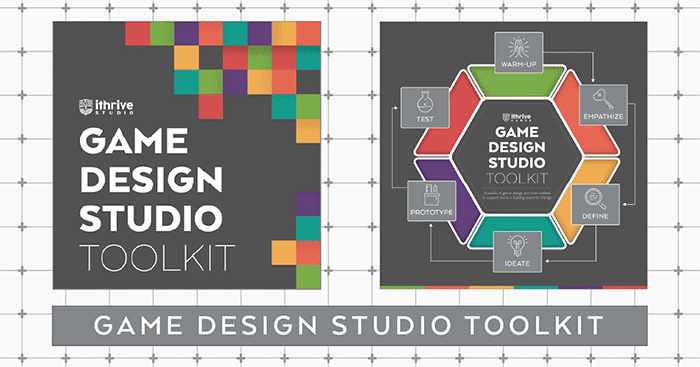Teen Co-Design is Teen Learning: The Story of The Porcelain Child
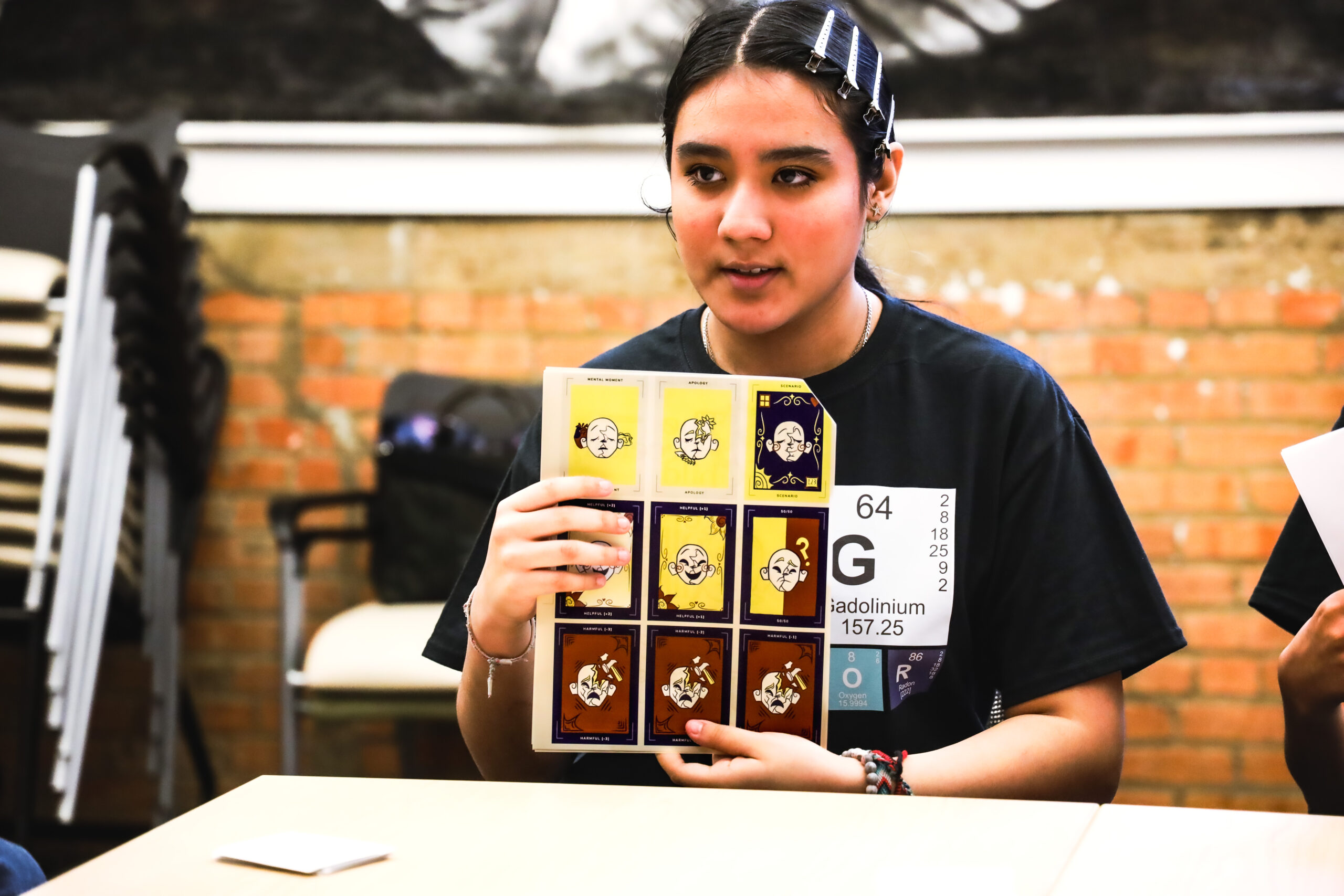
What happens when teens are invited not just to play—but to design, decide, and disrupt?
In a workshop room in Dallas, Texas, a group of teenagers gathered around a table and began to share their wishes for how they wanted adults to show up for them. One talked about the way their teacher dismissed them. Another reflected on the echo of a parent's words. "It's like being made of porcelain," one teen said. "Every time it happens, you crack a little." Together they asked, what if adults knew how much their words can hurt us?
From that conversation, a game was born to help adults learn. It was called The Porcelain Child—and like the teens who made it, it doesn't flinch from the truth.
A GAME DESIGNED TO BE HEARD
The Porcelain Child is a teen-designed tabletop game about the impact of adult words and actions on young people. Through collaborative gameplay, players consider scenarios, choose reactions, and see—in real time—how words can hurt or heal. It's a mirror, a conversation starter, and a call to action.
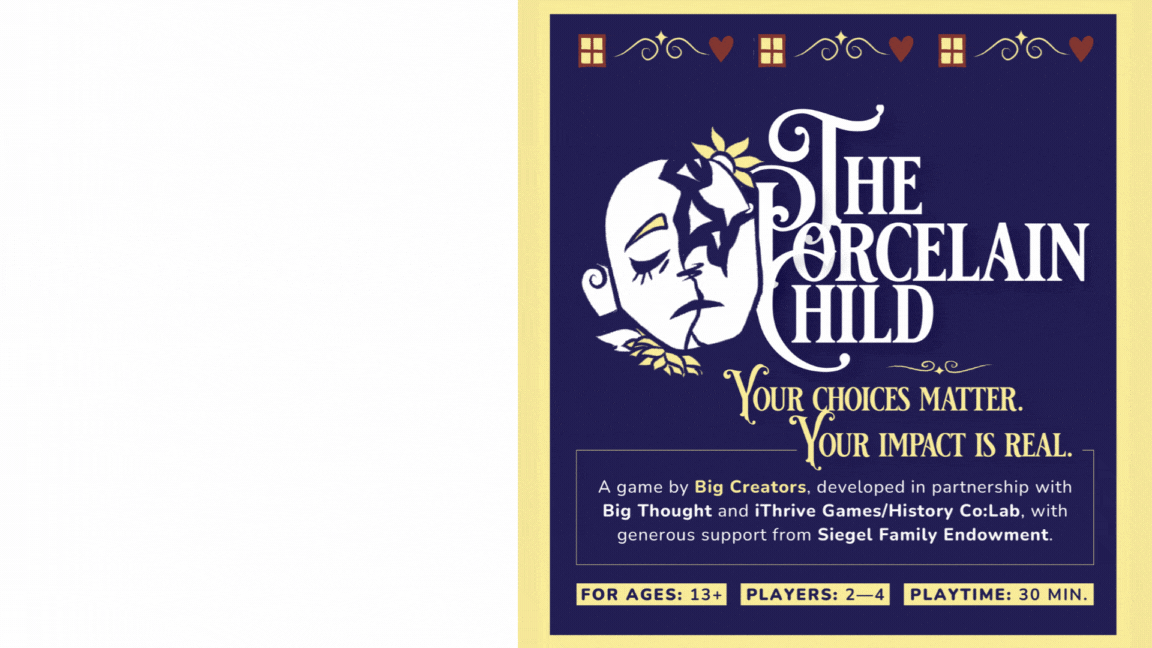

Pictured are the teen-designed game materials from the tabletop game The Porcelain Child, including the body board (left) and card options (right).
Created by 25 teen designers in a Game Design Studio (GDS) co-hosted by iThrive Games at the History Co:Lab—in partnership with Big Thought and Fit and Faithful Living, and with generous support from the Siegel Family Endowment—The Porcelain Child was designed entirely by youth. From early brainstorms to the final prototype, the teens—who later named themselves Big Creators—led every step of the process.
What emerged was not just a game, but a powerful learning experience supportive of collaborative growth and the social-emotional skills needed to thrive as contributions in a connected world. "I usually do everything solo," one Big Creator shared. "But this made me realize how powerful it is to create with other people—and be heard."
LEARNING IN LAYERS
The Game Design Studio model is more than a method for making games—it's a process for making meaning. Rooted in learning science, adolescent development as well as systems and design thinking, Game Design Studio supports youth in analyzing real-world challenges, envisioning change, and expressing their truth through game design.
"Co-design in the Game Design Studio experience is about teens learning and playing together," shared Susan Rivers, Chief Scientist at iThrive Games, co-lead at the History Co:Lab and co-architect of the Game Design Studio model. "They learn best as they make something meaningful together. Through the creative collaboration process, they build trust, grapple with understanding the systems surrounding them, and express themselves. The process invites teens to use their voice and their lived experiences to contribute to important conversations and imagine what's possible. The game is an artifact of their learning and an invitation for others to engage with them."
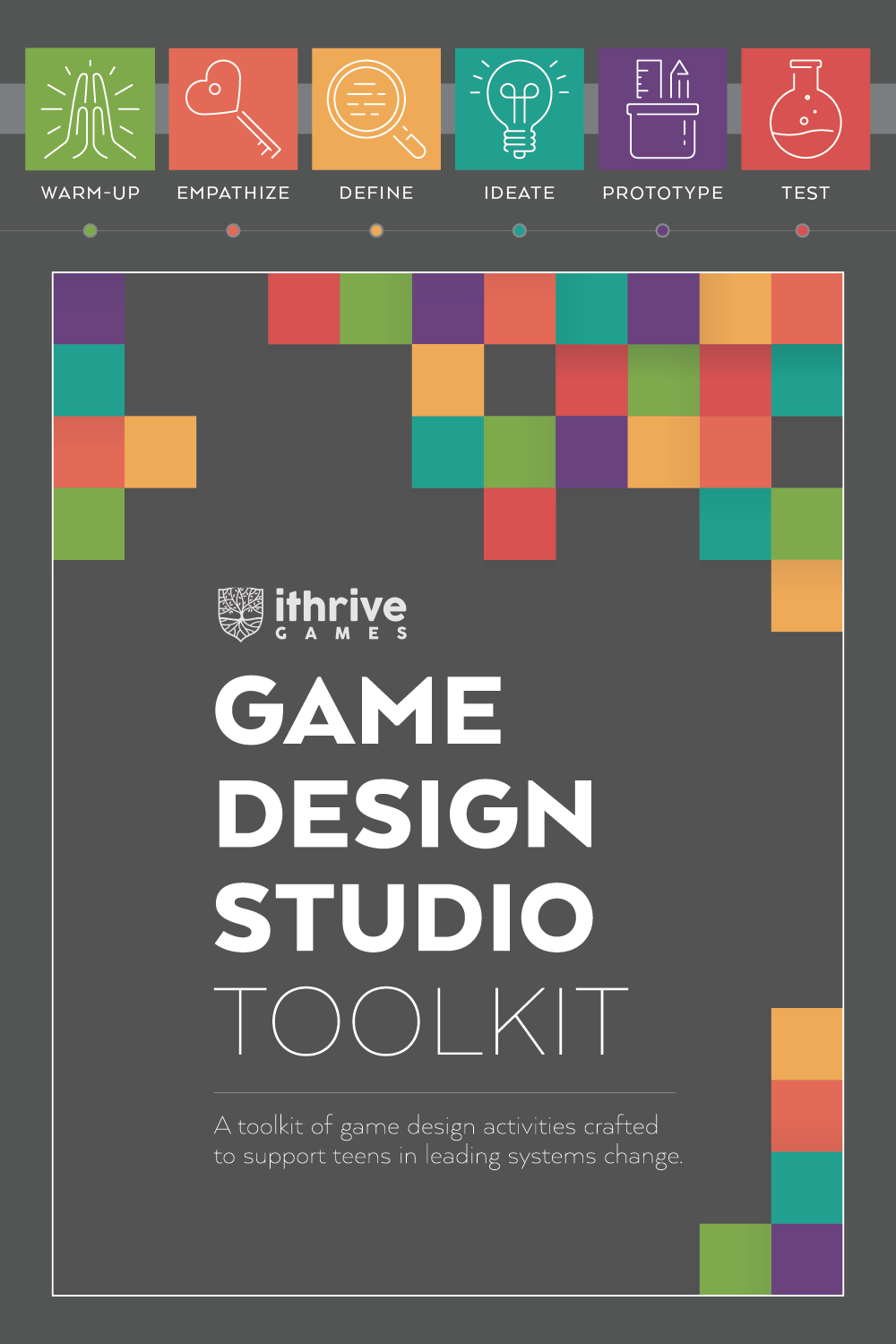
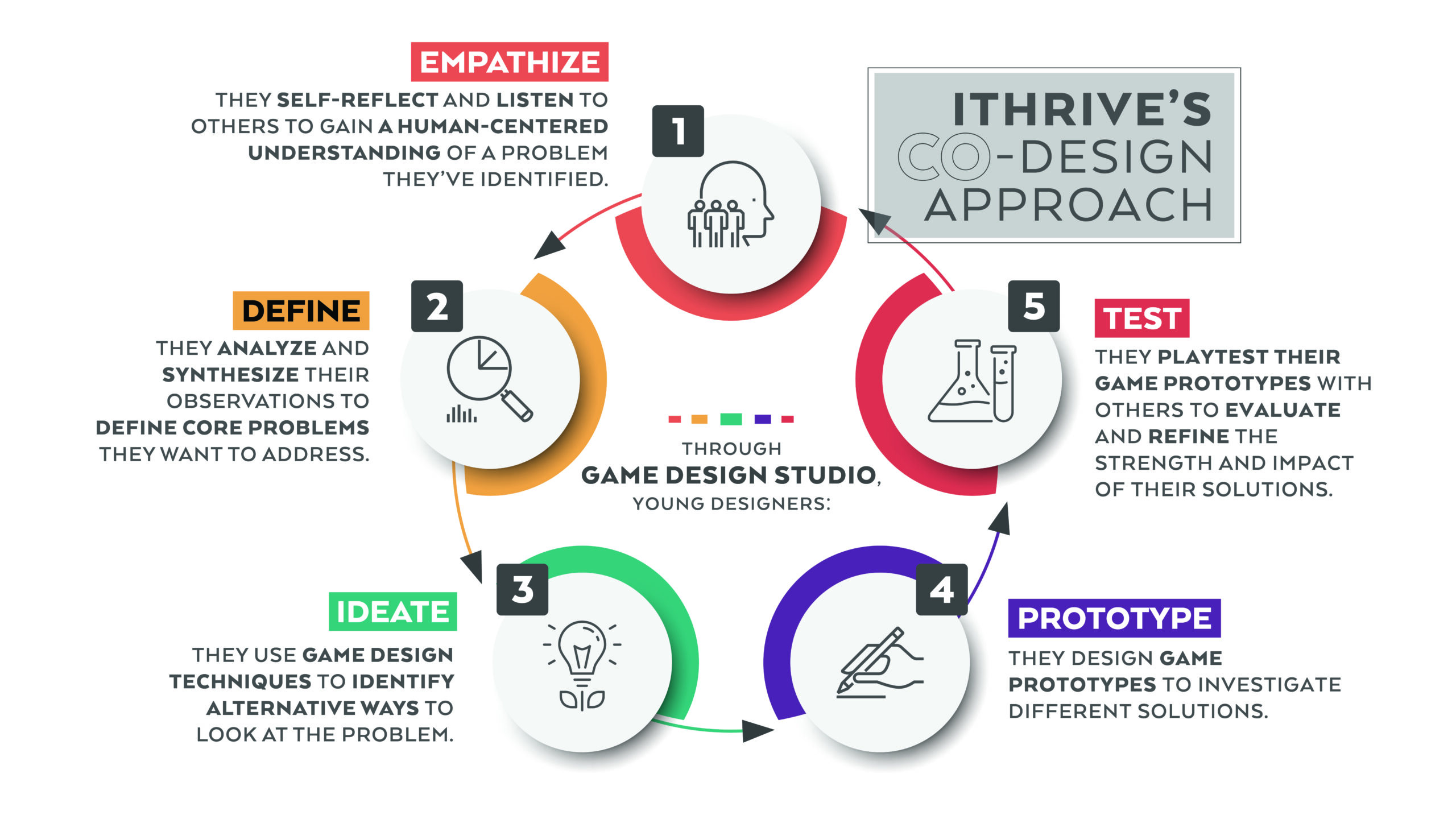
Game Design Studio (GDS) is a teen-led and teen-centered learning experience that invites youth to turn their lens and lived experience into games that spark dialogue, connection, and change. Download and explore the GDS toolkit.
Game Design Studio offers a different way to learn-one centered on teens and where they are developmentally.
"It just taught us how to communicate with each other and learn from each other," shared one Big Creator. "We all built off of each other to end up with this amazing game." Another added, "To be able to listen to other people's ideas and take it in and mix it together to get a final product—that's a big thing we are going to have to use."
RESONANCE BEYOND THE ROOM
In March 2025, the Big Creators debuted The Porcelain Child at SXSW EDU in Austin, Texas. Invited by the Siegel Family Endowment, the team of teen designers facilitated playtesting sessions and shared their stories with funders, educators, and attendees from across the country.
The feedback was personal and profound:
"This game made me realize I've got work to do," said Gregg Behr, Executive Director of The Grable Foundation. "It felt personal."
"The relationship between play and learning is incredibly strong," said Bo Stjerne Thomsen, Head of Impact at LEGO Education. "It provided an invitation to speak about issues in the family that are really difficult to uncover without play."
"It's a game I wish my parents had access to when I was a teen," shared Alicia Cagle, Youth Programming Manager at the World Affairs Council of Pittsburgh. "..It's a great tool to prompt valuable conversations."
"It's a powerful conversation starter," said Jason Swanson, Senior Director of Strategic Foresight at KnowledgeWorks.
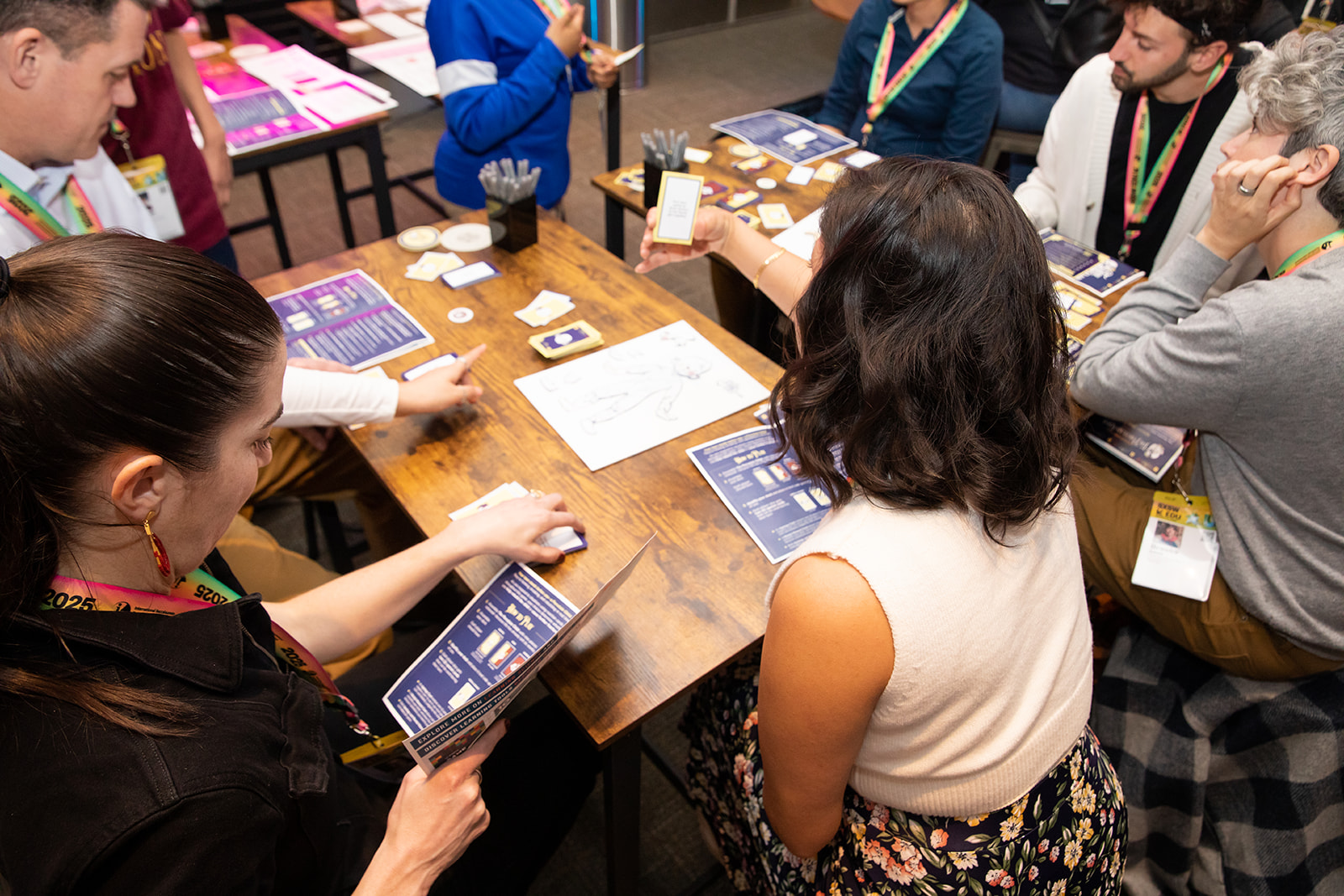
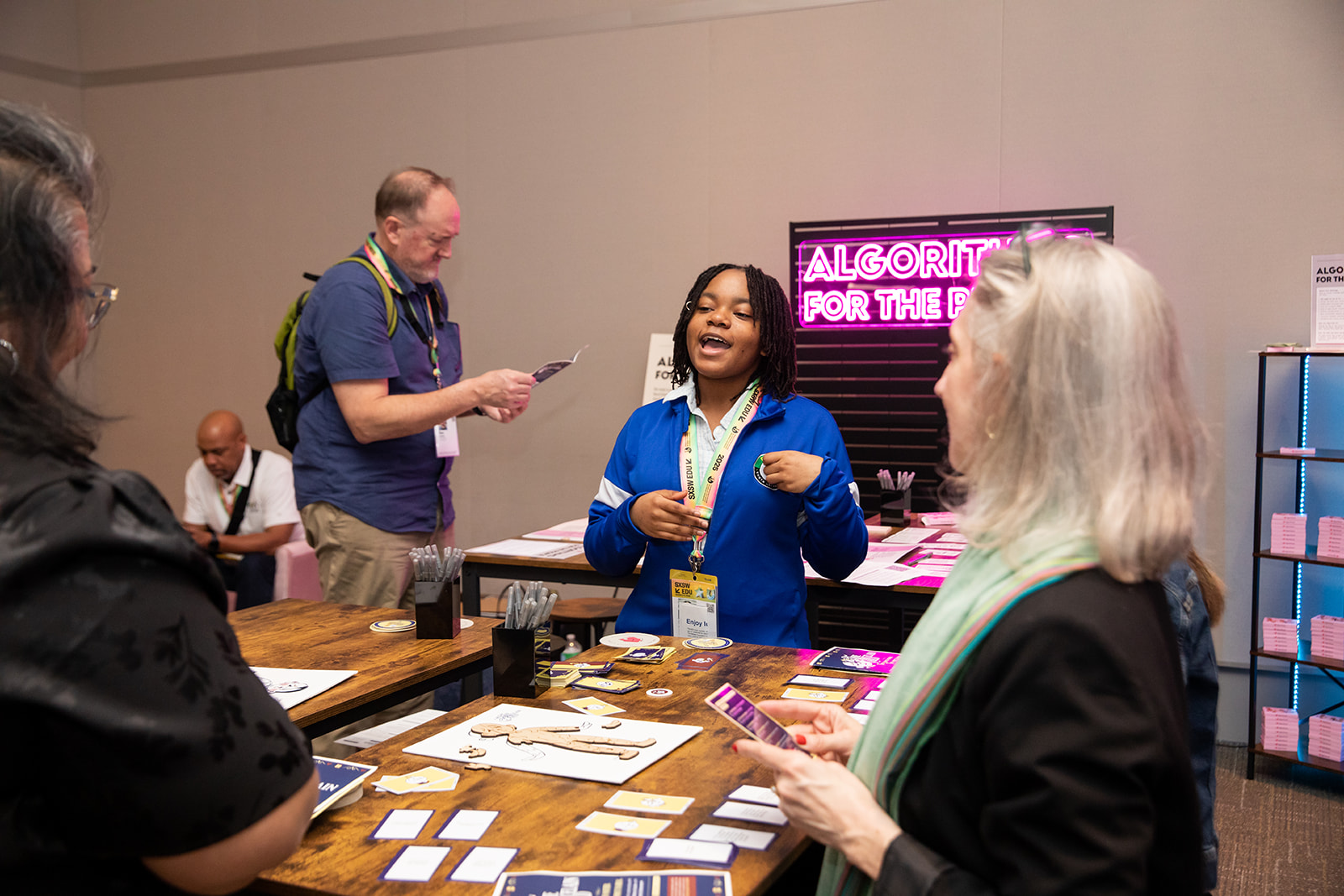
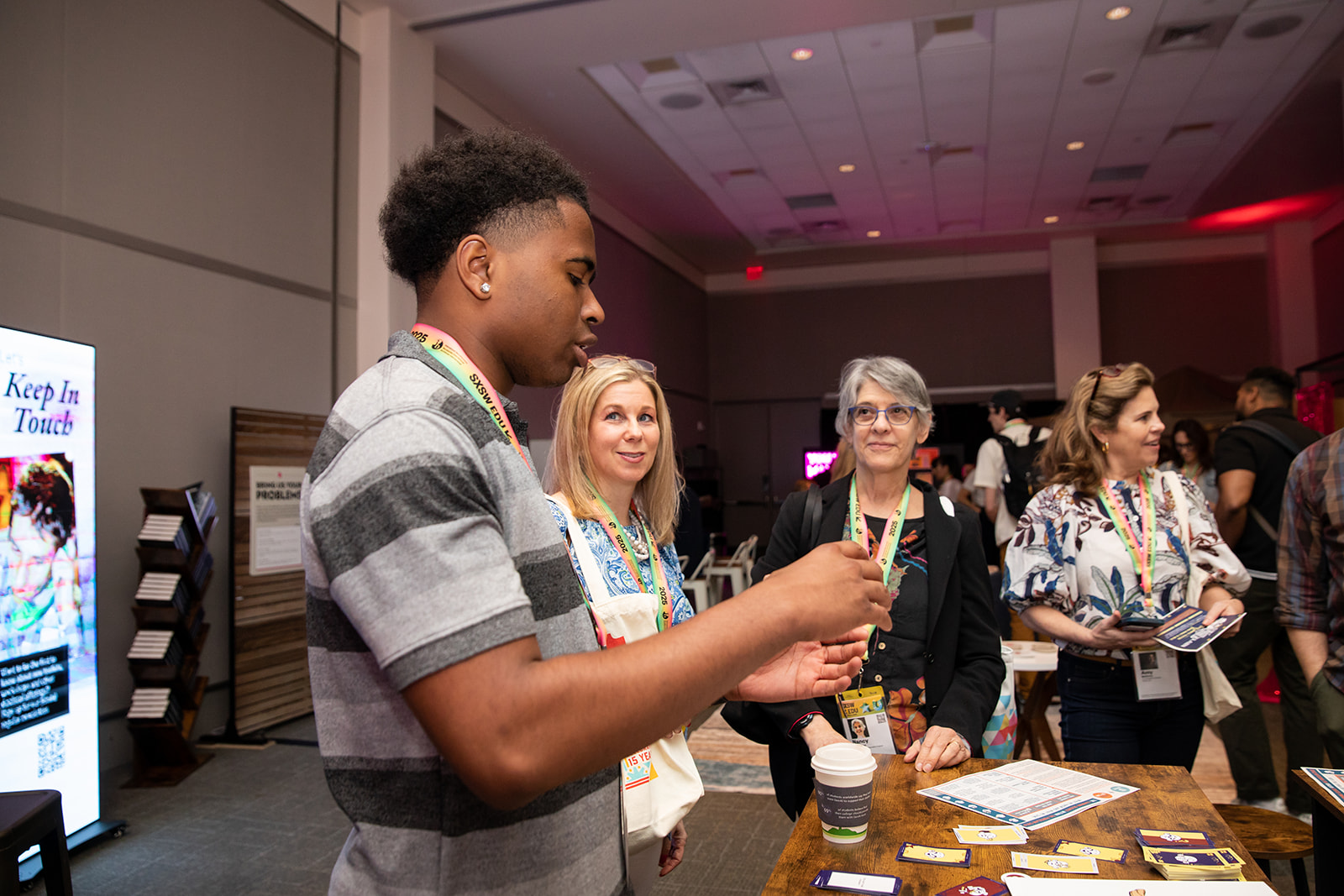
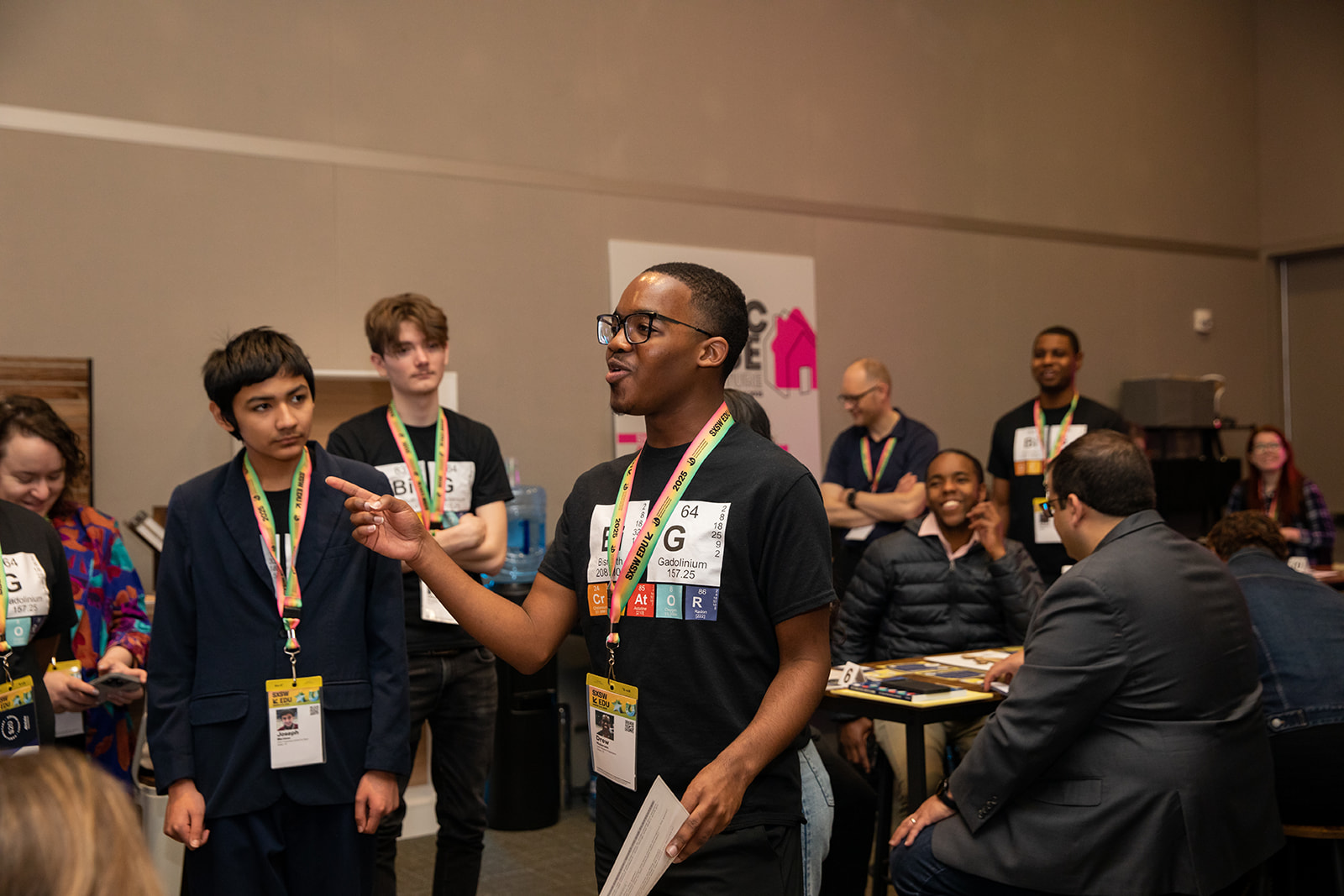
The teen design team behind The Porcelain Child was invited by the Siegel Family Endowment to present and playtest their game at the Stanford d.school lounge at SXSW EDU 2025 where adults engaged, reflected and offered feedback.
The Big Creators noticed the impact of their co-designed message, too. "Watching adults play the game, it gave me a different perspective," one said. "The parents who already had children were like, 'I could've done this differently.'"
Some youth took away an even more lasting message: "Being part of the art team gave me a great idea of what I'd be getting into if I was to do work like this professionally," shared one Big Creator.
Through co-design, they weren't just crafting gameplay—they were shaping a message. One that carried their truth, their experiences, and their hopes about disrupting adultism into places far beyond their original design table. In doing so, they discovered their strengths, clarified their values and realized their message—rooted in care, courage, and truth-could move people, shift conversation, and ripple far beyond the room.
COMMUNITY GROWN, RELATIONSHIP-DRIVEN
The Game Design Studio experience is designed to deepen relationships between teens and adults—showing what's possible when adults listen, support and step back to let teens lead. Nearly every Big Creator spoke to the impact of how adult facilitators show up during their co-design journey. "They gave us an open space," one teen shared. "They stepped back—but when we needed them, they stepped forward for us. So that really helped us grow."
That balance of support and respect was intentional. "When I say 'greatness,' we just want kids to get the best," shared Reggie Dupard, co-founder of Fit & Faithful Living. "We want our young people to know that if you need somebody in your life, we're here for you and we'll be that person that advocates for you."
Teen designers credited their team of adult collaborators-including our design team at iThrive Games/History Co:Lab, Big Thought's Armando Banchs, Evan Cleveland, Rachel Hull, and Denesha Ogunsegha; Art by Martell's Martell Holloway; and Fit & Faithful Living's LaChanda and Reggie Dupard, and the iThrive / History Co:Lab team—for creating space to explore, reflect and lead. The adults offered guidance when needed and consistently affirmed the genius and brilliance of the youth they worked alongside.
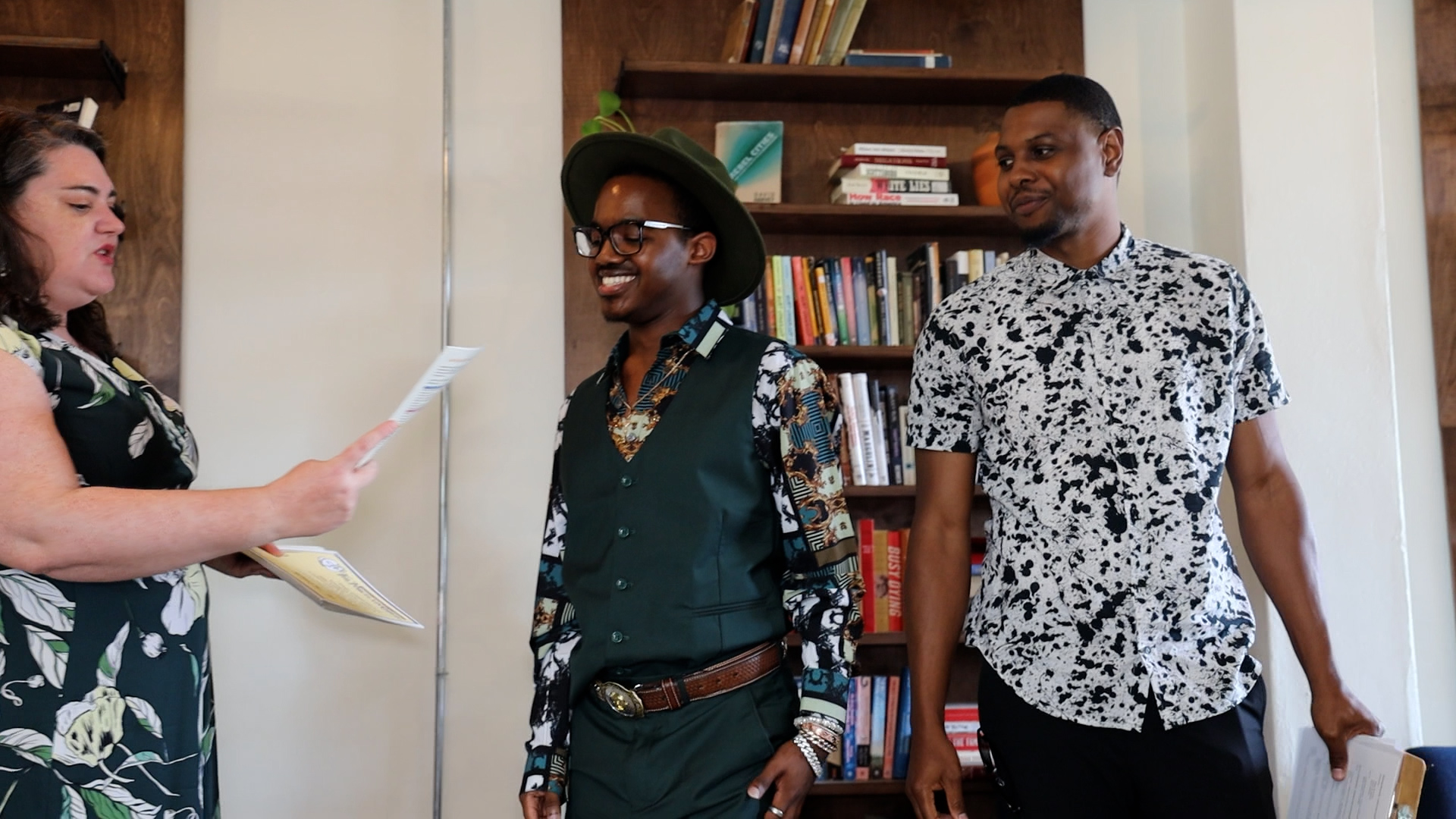
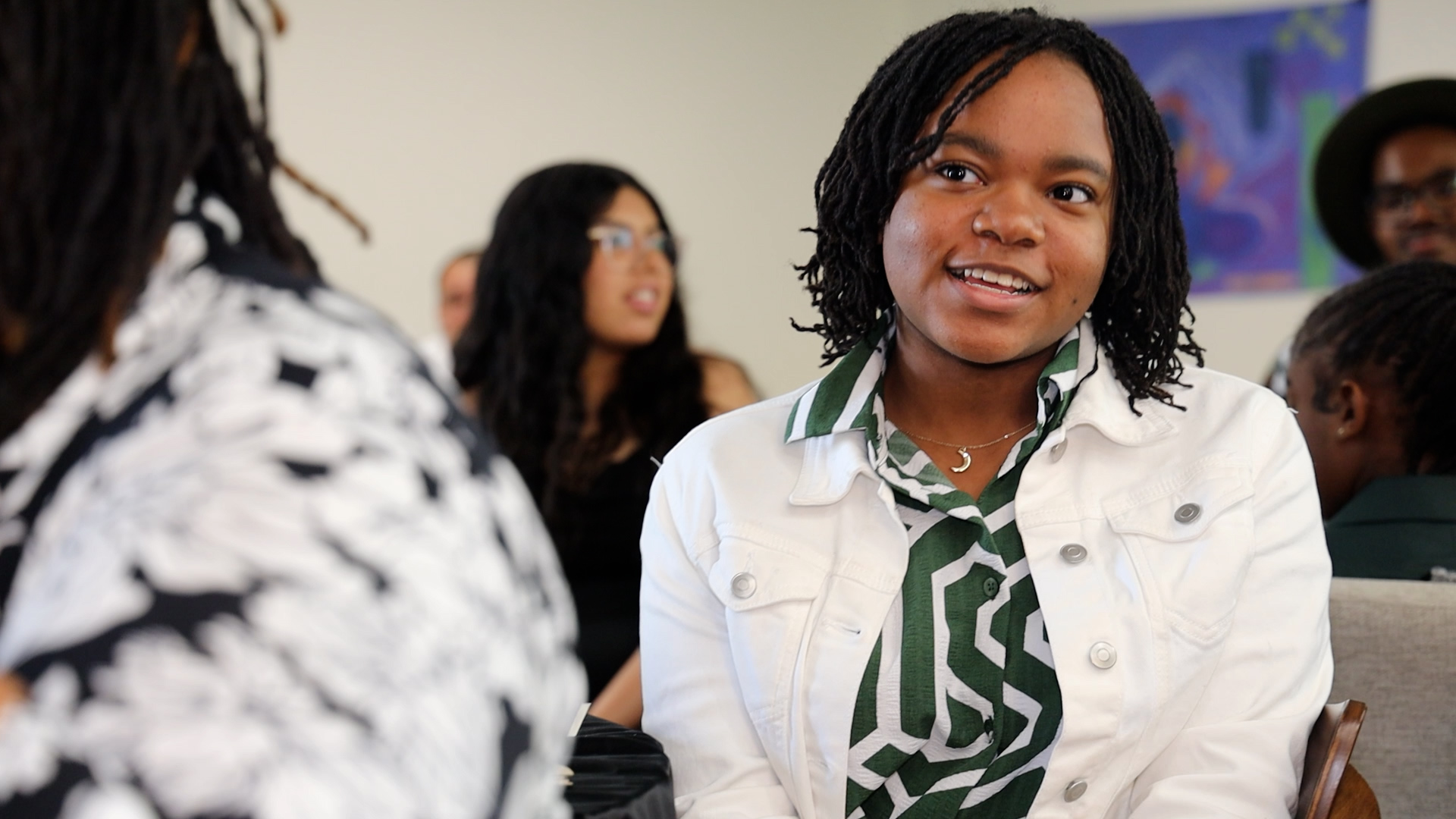
On Celebration Day, the teen designers behind The Porcelain Child celebrated their growth, reflected on their game and honored the intergenerational community that made it possible.
Big Thought's commitment to youth creativity through its Creator Archetype framework and direct-to-youth programming helped make this co-design experience possible. Their environment empowered teens to lead, explore, and shape meaningful artifacts of change. As Amarando Banchs, Sr. Manager, Creative Archetype, shared during the intergenerational team's Celebration Day, "These are the skills—grit, rigor, muddiness, storming and norming—that youth need to step into a world that's constantly shifting." He reminded the parents, guardians, friends of designers, and all listening that the most powerful artifact of this learning experience wasn't just the game—it was the teens themselves. "This work is about the heart. Look at the youth in the space that worked on this... because they're really the artifact."
On the culminating Celebration Day hosted at Big Thought's HQ, youth, families and collaborators gathered to honor what they built together. "This wasn't just a project," shared Fernande Raine, founder of and co-lead at History Co:Lab. "It was a coalition rooted in belief: belief in youth brilliance, and in the power of making meaning together."
MORE THAN A GAME
The Big Creators designed The Porcelain Child to do more than entertain—they designed it to invite adults into conversation, reflection, and change.
"This experience taught me how my voice can change situations I believe are unfair," shared one teen designer. "My hope is that adults reflect and realize how their actions impact a teen's mind," added another. "This game shows them," emphasized a third.
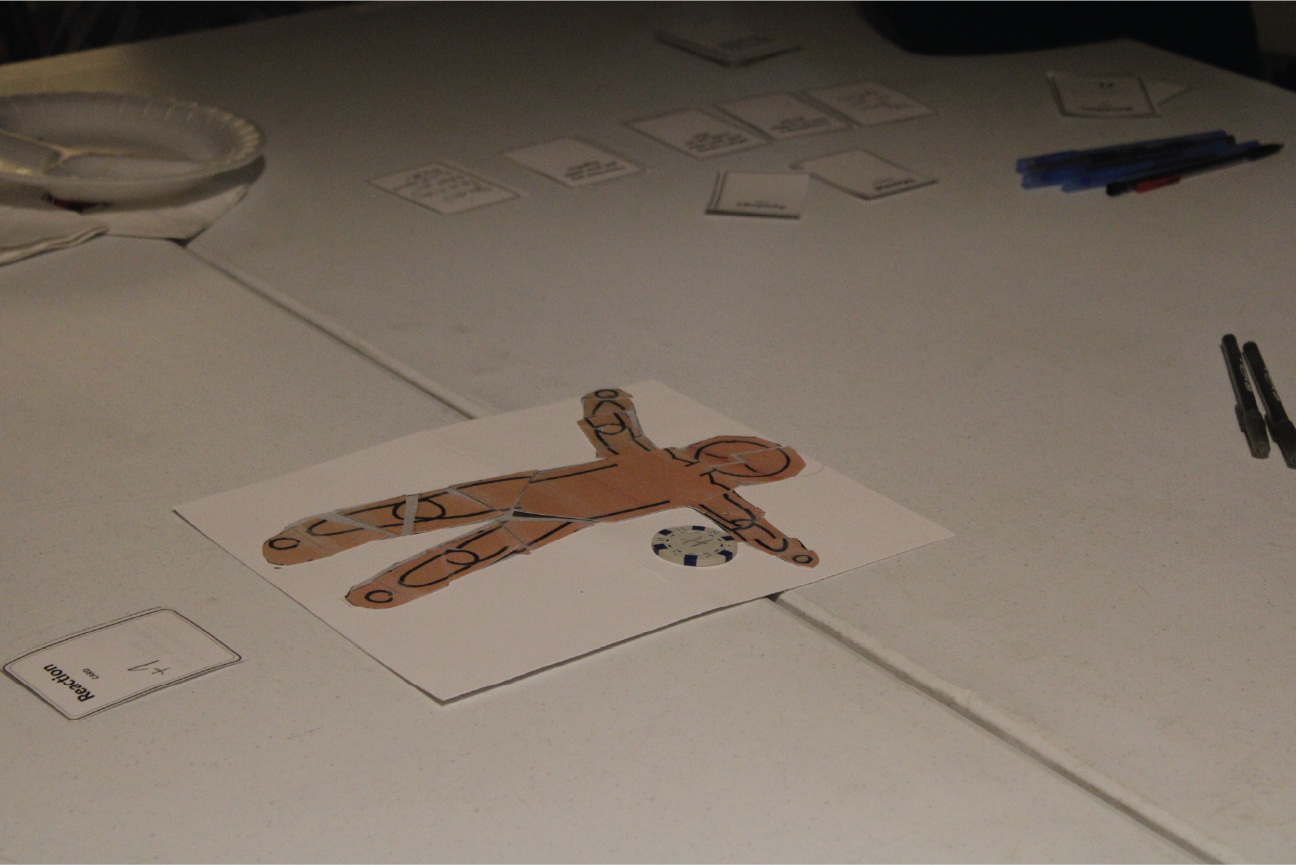
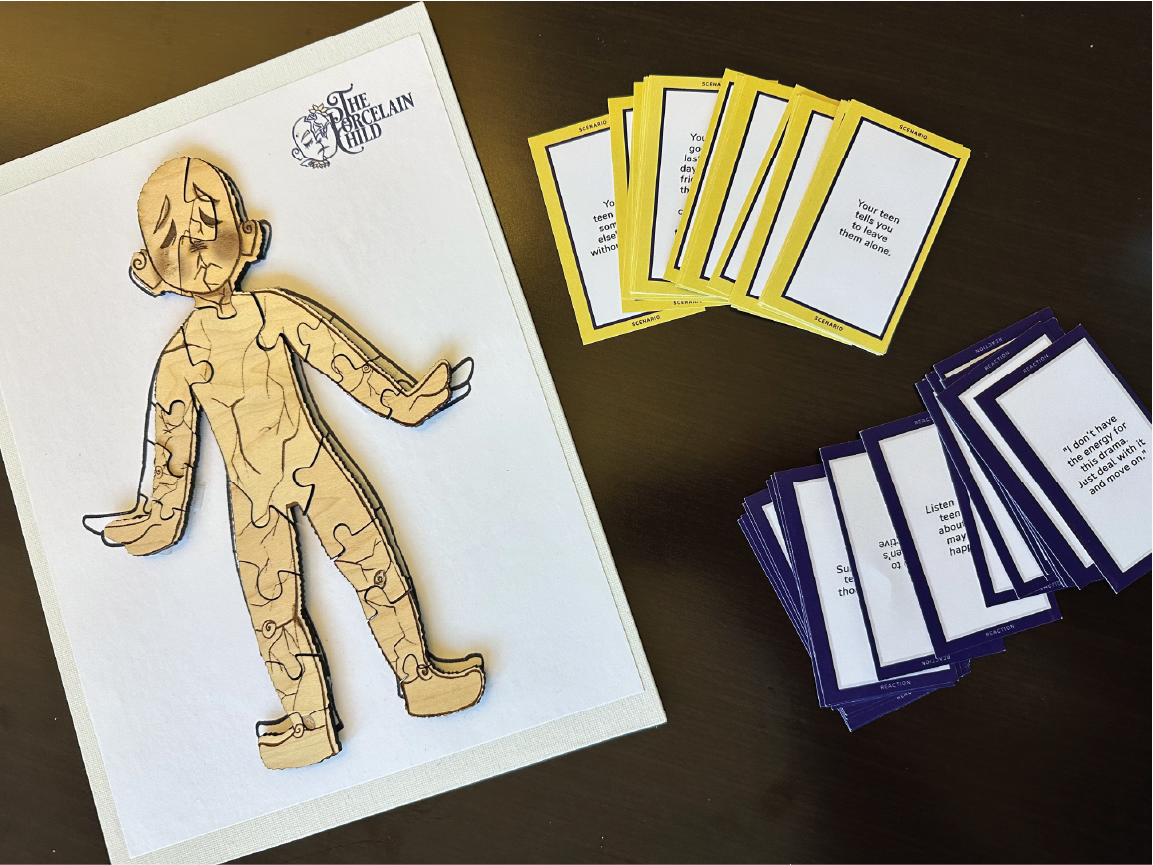
Early ideation vs. prototype phases of The Porcelain Child.
Through co-design, the youth behind the game transformed lived experiences into a critique of the systems that impact them. They deliberately designed mechanics, narratives, and choices to reveal how words and actions ripple through a young person's life. The result is an empathy-building, intergenerational dialogue tool that invites players to pause, reflect, and connect. As of May 2025, The Porcelain Child is being playtested across Dallas—on kitchen tables, in school gyms, and at community events—sparking conversations about listening, care, and the small moments that build or break trust between adults and youth. Each card played is a spark. Each round, a reflection. Each conversation, a step toward healing and change.
This game is just one example of what's possible through Game Design Studio—a model and toolkit used by educators and youth-serving institutions who believe in the power of young people to make meaningful change. Across schools, community programs, and even international settings, GDS invites teens to design tabletop games, digital stories, and immersive simulations that center their lived experiences and civic imagination.
Game Design Studio meets teens where they are—and offers them the tools to imagine, build, and lead us somewhere better.
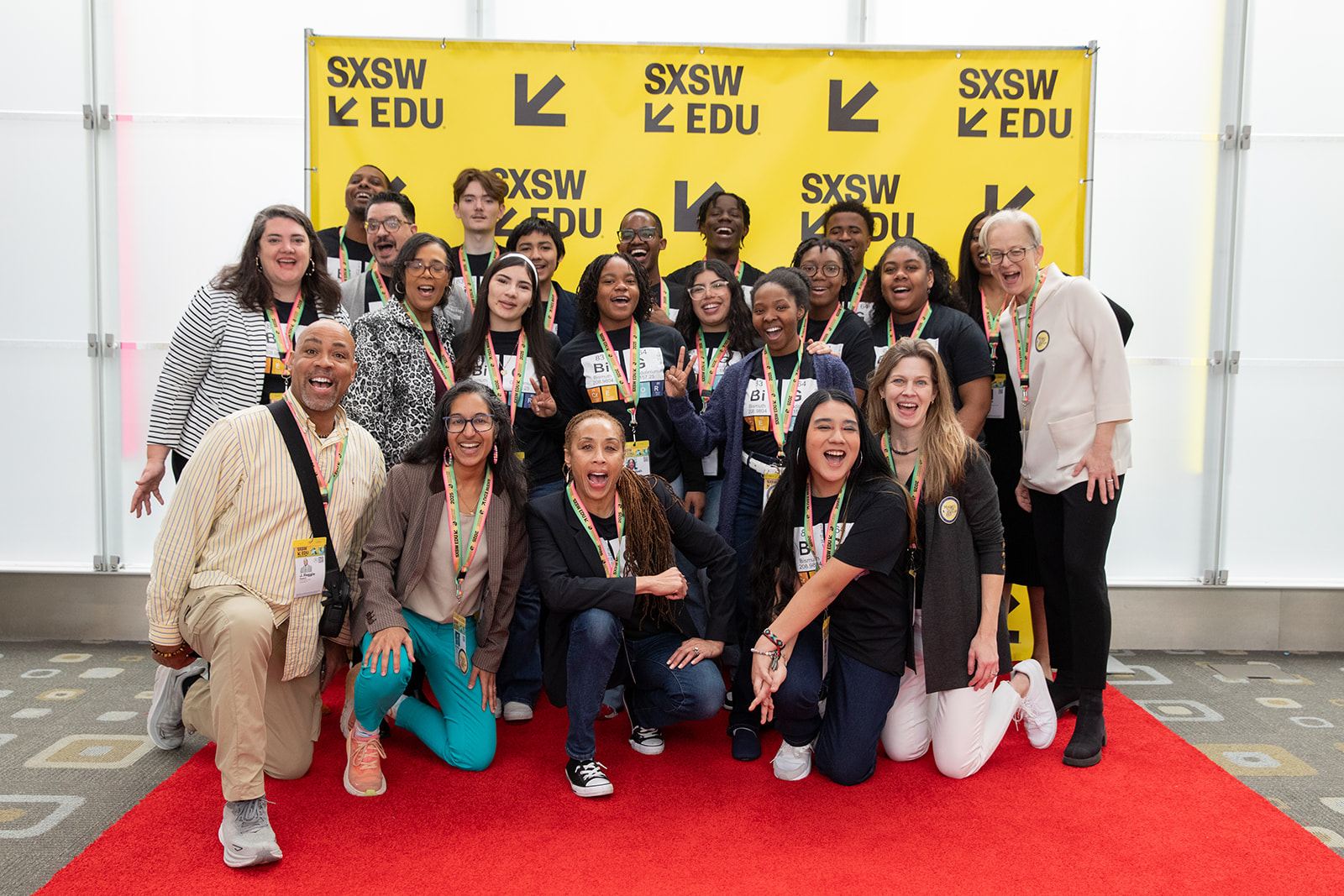
After leading their workshop at SXSW EDU 2025, the Big Creators stop for a candid, celebratory moment.
If you're a partner (i.e., educator, funder or youth-serving organization) ready to center teen voice in a transformational way—we invite you to connect.
Our Year of Knowledge-Building, Knowledge-Sharing & Play
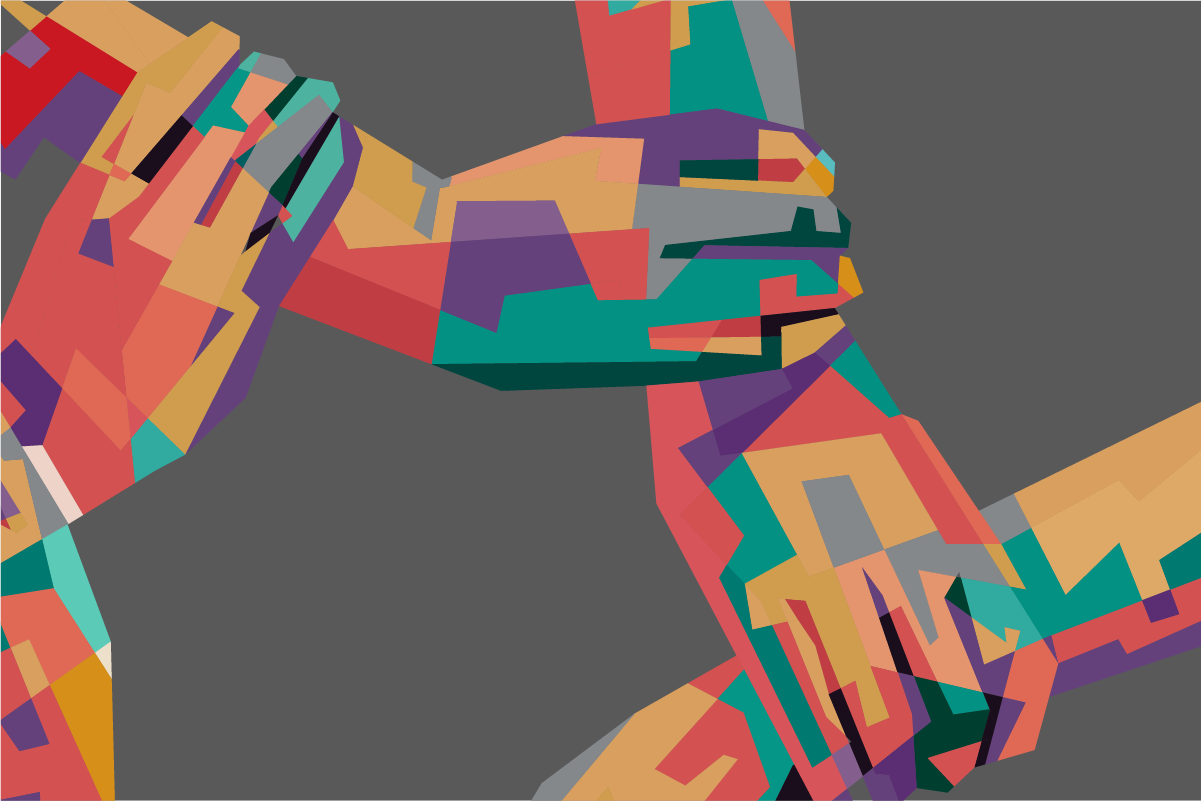
Joy enriches. As a connector, joy helps realize the 'we' and nourishes the 'us' that directs how we gather, steers how we imagine, and inspires what we create.
This year, joy guided our work alongside young people, nonprofits, government agencies, school communities, research institutions, game developers, subject matter experts, and learning experience designers. With teens and our partners, we built knowledge, shared knowledge, and co-designed transformative experiences for teens supportive of their learning, mental health, and thriving.
Throughout 2023, partnership propelled impact and possibility, helping us and those we collaborated with expand it in places where teens learn and play. Collaboration and community-building were consistently parts of all we did this year— from our co-design sessions that led to co-created games and learning experiences to the conferences and panels we were part of. In togetherness, we pooled strengths with teens and others. We leveraged the diversity of our experience and expertise and those we merged genius with to accelerate progress toward the world we each yearn—one where young people have the tools to live full, safe, healthy, and purposeful lives. It was amazing.
In celebration of what the year has been and all that is to come, here is a look back on eight joy-filled memories in no particular order, as well as our favorite collaborative moments, and unforgettable highlights from 2023:
#8. PLAYTESTING CADENCE FORD AT PLAY NYC
At Playcrafting's Play NYC this year, an event that magnified the power of play and brought hundreds of game industry professionals, indie game developers, and game designers together to exhibit their games to players and peers, we shared an iteration of Cadence Ford, the single-player, text-based strategy game we created with the One Love Foundation and Playmatics, LLC.
 |
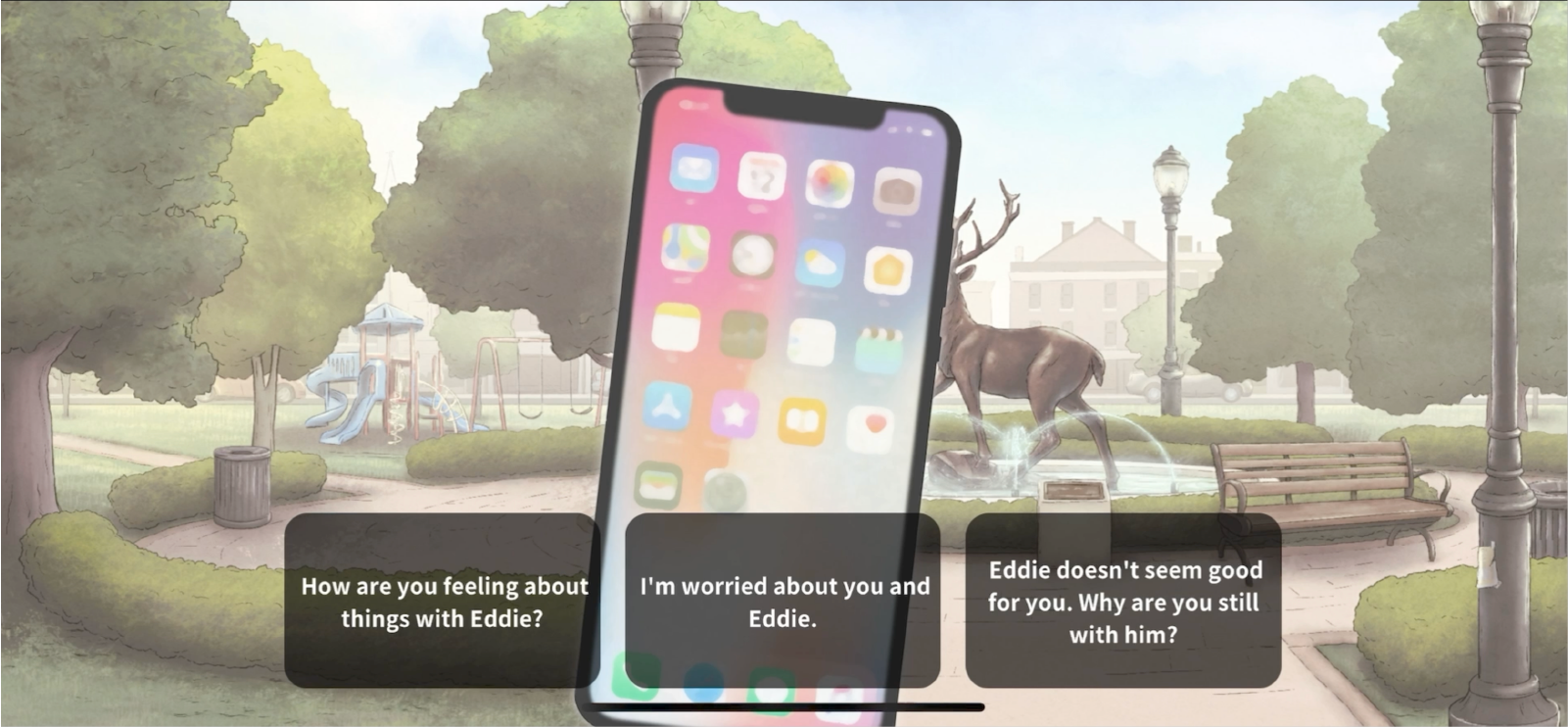 |
Building on One Love's mission to empower young people with the life-saving prevention education, tools, and resources they need to see the signs of healthy and unhealthy relationships, Cadence Ford supports young people in learning to love better, in being with partners who practice healthy Love and communicating with loved ones who are in unhealthy relationships. While New Yorkers of all ages played the game demo and shared feedback, teens, many of whom went on to become members of our Teen Hub, were particularly moved by the game's storyline, mechanics, and captivating 2D art. Read about Cadence Ford's co-design process and the forum for listening to and learning from young people we created at Play NYC.
#7. OUR CO-DESIGN WITH TEENS AT THE NEW YORK HISTORICAL SOCIETY
For the students from Thomas A. Edison High School who gathered at the New York Historical Society with us, History Co: Lab, a graphic notetaker, and others in Educating for American Democracy (EAD)'s network in November 2023, the co-design workshop presented an opportunity rare in their worlds—a chance to share how they envision democracy and impact civic learning that supports the future of it.
Our Game Design Studio model at the center of the co-design experience engaged them not just as students at the end of learning experiences but also as thought partners in co-designing them, setting the stage for meaningful co-creation. The teens, who ended up devising and developing a prototype for a new interactive EAD-inspired card game created to inspire high-quality civic learning experiences by the end of the workshop, called it "promising," "progressive," "unique," "revitalizing," and "relief." Read how the model brought many across the civic education ecosystem together and what came of the teens' collaborative experience.
#6. THE LAUNCH OF OUR DESIGNING FOR TEEN THRIVING MAILING LIST
Impact-driven nonprofits, youth-serving programs, and government agencies trust us to preserve their commitment to teen wellness and thriving.
This year, we launched Designing for Teen Thriving, a mailing list that gives people like them access to the resources and insight of iThrive's game designers, learning experience designers, and teen social and emotional development experts. Subscribing to the list helps individuals looking to create developmentally nourishing experiences and wellness-supporting games for teens (with us or on their own) ensure what they create meets young people where they are and supports their thriving.
Join the Designing for Teen Thriving mailing list today!
#5. THE SOFT LAUNCH OF DISASTER MIND, AN ITHRIVE SIM GAME MADE WITH FEMA
The work of disaster preparedness, response, and recovery is as emotional as it is manual. Disaster Mind, the single-player simulation game built on the iThrive Sim platform with Federal Emergency Management Agency (FEMA) Region 8, supports young people's understanding of it.
This year, the FEMA Region 8 team soft-launched the game after one and a half years of development.
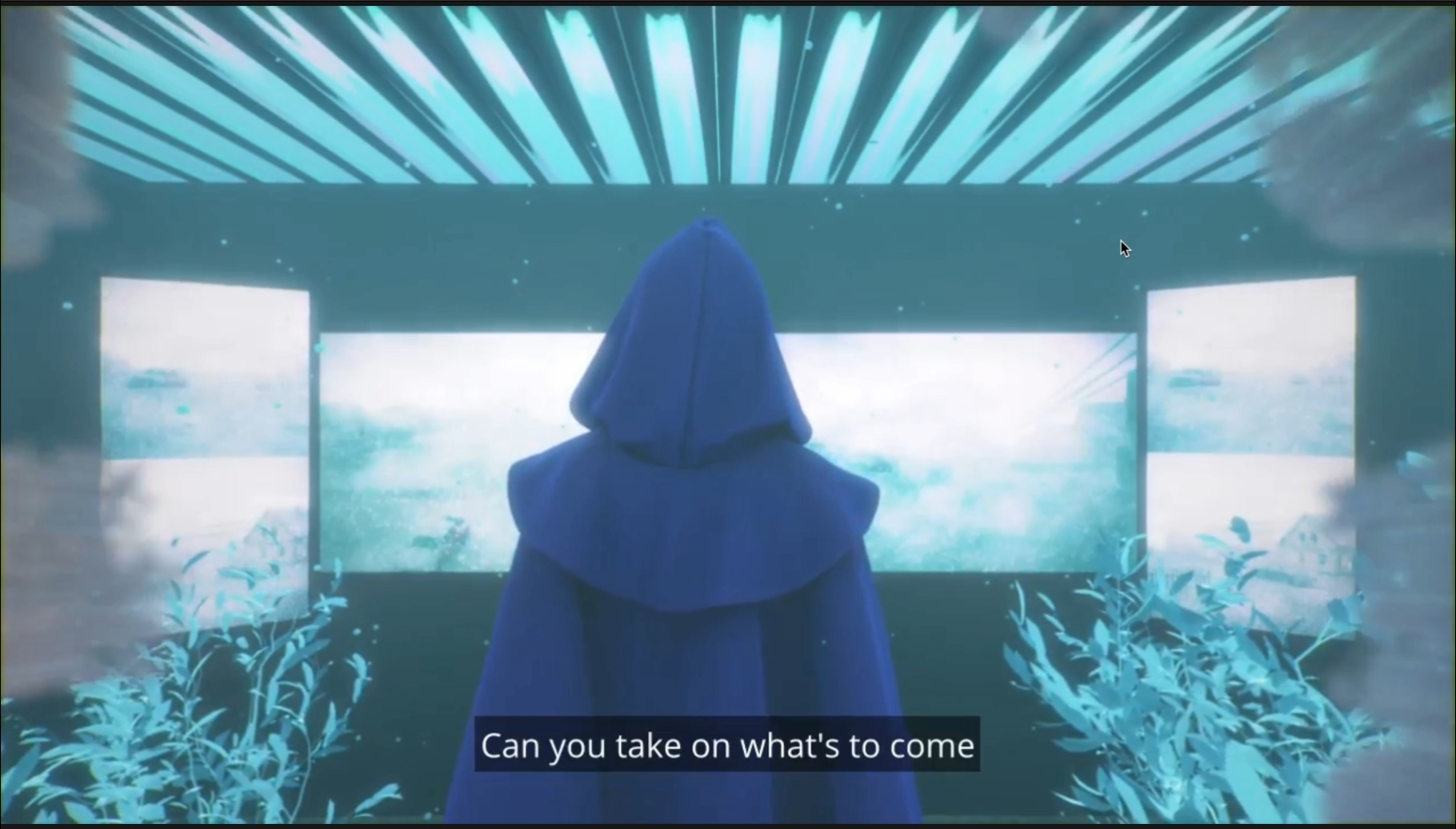 |
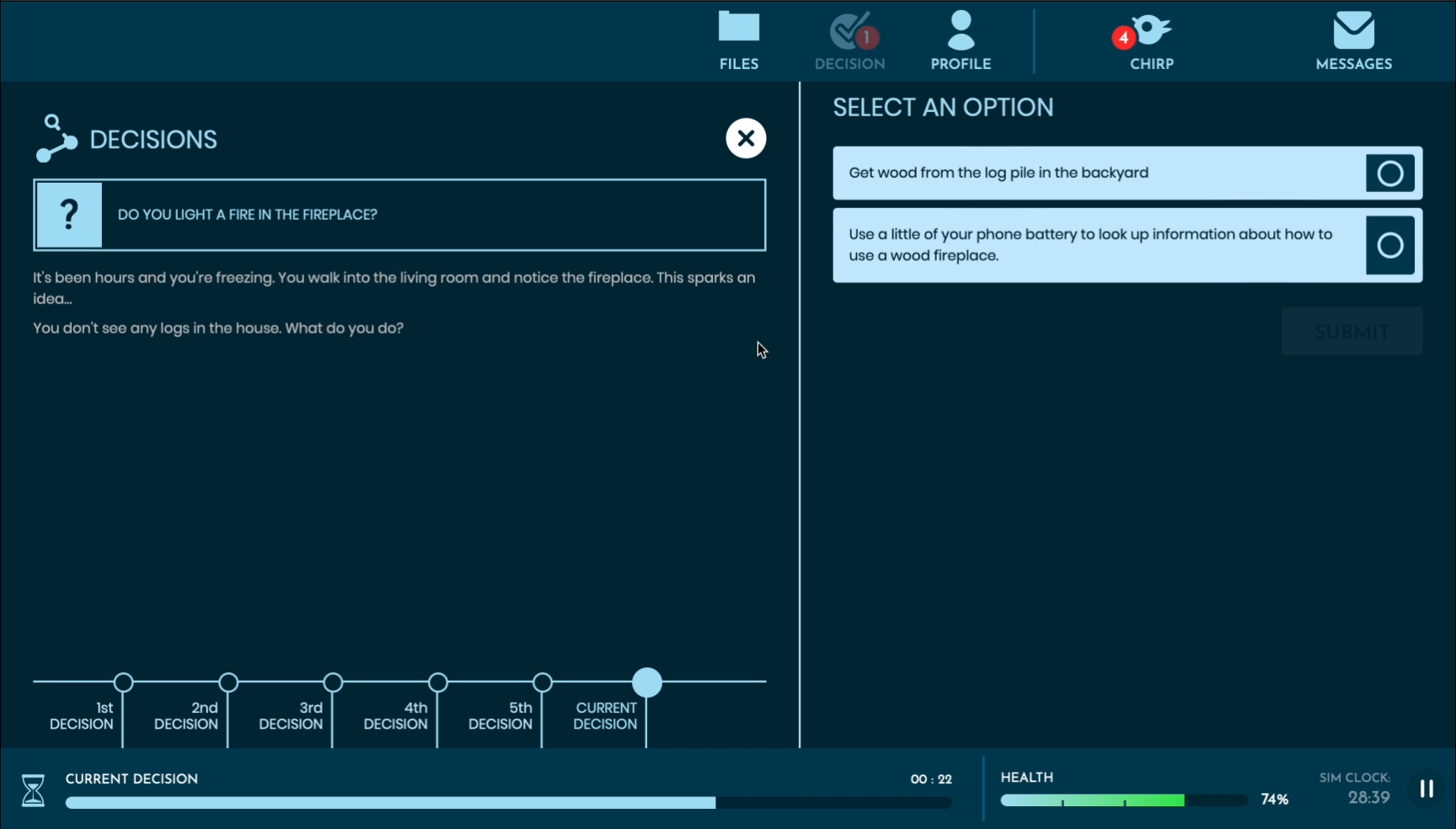 |
Young people who've playtested the game have reported feeling more confident in preparing for an emergency, managing the associated stress, and understanding the intentional mindset that underpins disaster preparedness. Many also have relayed plans to turn their awareness into action, mentioning specific disasters and sharing plans to talk to their families about exit plans, emergency kits, and meeting locations. Dive into the Disaster Mind's co-design process and explore what teens had to say about its readiness and resilience-building play experience.
#4. OUR CO-DESIGN WITH H.S. STUDENTS FROM THE GLOBAL NOMADS GROUP
Also this year, as part of an exciting learning experience design project currently underway with History Co: Lab and the XQ Institute, members of the iThrive Games team had the opportunity to gather virtually with high school students from the Global Nomads Group across two co-design sessions.
True to our norm of iterating for impact, the young people, hailing from several countries across the world, met with us to go over parts of the game-based, social and emotional skill-building experience we're creating, lending their ideas, feedback, and expertise to make it as engaging, accessible, inclusive, and resonant as possible. The play-filled meetings featured icebreakers, stretches, constructive questions, and Jamboards. It was an honor to learn from them while supporting their design thinking in the connective experience.
#3. ITHRIVE SIM NAMED A LEARNING ENGINEERING TOOLS COMPETITION WINNER
This year, the iThrive Games team was named one of the 32 winners of this year's Learning Engineering Tools Competition, selected from over 1,000 edtech innovation proposals submitted worldwide.
The win and accompanying $100,000 Growth Phase award in the Transforming Assessments track enables our team to expand iThrive Sim, our playful engine that hosts, powers, and evaluates immersive and interactive role-playing simulation games, with new ways to measure and assess the teen social and emotional learning fostered in them while developing alongside others in the growing learning engineering discipline. We are honored to share this win with our software development partners at Affordance Studio and EdTech Recharge's Kripa Sundar. Learn more about the Tools Competition and the expanded iThrive Sim to come.
#2. THE CONFERENCE CONNECTIONS
Attending game-filled, educational, and ed-tech conferences was an absolute favorite for us this year.
At Games for Change, we learned tons from designers, researchers, and changemakers, and at ED TECH WEEK NYC, we explore how tech innovation continues to support access, learning, and workforce development.
Members of our team also had the opportunity to showcase our co-designed games at ED Games Expo and PLAY NYC and lead discussions elsewhere too. In March, as part of MA Civic Learning Week, we shared on iThrive Sim's transformative civic learning games for high school classrooms. At ASU+GSV Summit in April, our Executive Director and Chief Scientist Susan Rivers talked about the necessity of social and emotional skills in today and tomorrow's careers on an American Student Assistance panel alongside others invested in the thriving of this generation's learners. At NSLA's Summer Learning Summit in October, she joined the Education Innovation Stage with other thoughtful experts to discuss learning and youth development that can inspire, challenge and deepen summer learning.
Each space we shared with others was carried by joy and animated by an eagerness to connect and collaborate with others eager to merge genius and create better systems of care and learning.
#1. OUR CREATIVE COMMONS-LICENSED, GAME-BASED LEARNING LIBRARY
Access enables impact. This year, we opened access to our game-based, social and emotional learning educational resources by licensing them under Creative Commons. Educators and teen-serving adults who care deeply about young people's thriving can merge it with their work and expertise.
Each iThrive Curriculum unit, iThrive Sim curricular surround, iThrive Game Design Kit, iThrive Game Guide, and iThrive-authored PDF resource can be remixed, redistributed, and built upon. Dive into them!
Whether you're a teen who co-designed or playtested with us, a partner or collaborator who co-created with us, an educator who brought our resources to your students, a game designer who used our game-making resources, or a supporter who read our blogs and cheered us on, we appreciate each of you for the many ways you engaged with us this year. A heartfelt thank you for sharing in our vision of teen learning and thriving, and happy new year to you and yours!
Five Game Design Skills You’ll Build as a Teen Playtester or Co-Designer

Game design
Behind the games we know and love are teams of dedicated individuals committed to creating play experiences that transform and connect us. At iThrive Games, we embrace the same spirit of collaboration in the wellness games we envision, test, and co-design with and for teens.
Our paid co-design and playtesting sessions invite teens to apply their wisdom and genius to the development of games that engage and support them and their peers meaningfully. In our shared engineering of impactful and interactive experiences, teens, often gamers themselves, build skills foundational to game design. Here are five ways the knowledge and familiarity teens acquire from co-designing and playtesting support their pursuit of careers in those fields:
- Playtesting and co-design strengthen analytical skills. Having an analytical frame of mind supports game designers in poking, prying, and evaluating their way through problems and to new solutions and ideas. When teens playtest or co-design with us, they nurture their analytical skills as they assess play experiences and note pain points, opportunities for improvement, and ideas for expansion.
- Co-designers and playtesters deepen their understanding of core game design components, like scripting and concept art, and game development themes, like agility and iteration. By the end of a co-design or playtesting session with iThrive, teens who've participated are exposed to the many cogs involved in the creative process, building familiarity with the language used to describe its parts and the activities it takes to get to launch.
- Great playtesters and co-designers are great communicators. Core to the work of a game designer is communicating and coordinating with artists, programmers, and other stakeholders. Providing clear feedback to team members, technical and non-technical, is vital to supporting their work toward a compelling end product. Teens who co-design and playtest games at iThrive are prompted to practice effective communication when evaluating play experiences and share critique that fosters actionable insights.
- Playtesting and co-designing sharpen creativity and conceptual thinking. Creativity powers innovation in game design and beyond. Playtesters who offer feedback on games they get to exclusively preview are adding their genius to the well of creativity that makes our play experiences memorable and meaningful to young people. Joining in the creative collaboration, teens who work with us often conceptualize new ideas and share them with our team, spurring add-ons that enrich the playful experiences iThrive creates.
- To co-design or playtest is to be adaptable. The task of co-designing and playtesting insists on an openness to new experiences, practices, and techniques. This openness is common to game designers who often and actively seek out new ways of doing things and embed their learnings in the play experiences they create.
Teens who playtest and co-design with iThrive have remarked that the experience "allowed me to meet new people who were also interested in the same things I was" and "add my ideas to a project that will someday become a reality." Invite the teens you know to join in on the game design process and take part in the development of our new, exciting collaborations by joining THE HUB!
Teens Know What They Need to Be Healthy and Thrive. It’s Time We Listen.

What does it mean for teens to thrive?
At iThrive, we use games and game design to support teen thriving. In our 2017 white paper, we defined teen thriving as teens' "accumulating intrapersonal and interpersonal assets while progressing forward through adolescence." This is true, but it's not sufficient.
We see and hear firsthand that teens are uniquely positioned to see injustices and hold society to a clear and higher standard. Over the past 5 years, we have asked hundreds of teens what thriving means to them, and what they most want and need to thrive. We have listened deeply as we've worked side-by-side with them to envision and design elements of a more just, supportive world.
Our revised definition reflects the heart, admiration, and dedication we see and feel when we do this youth-centered work. They come away from it saying things like, "I realize now the change I can have on the world" and "This process ... has given me the empowerment not only to make decisions in my daily life but also to learn about how the systems that have already been created work and how to disrupt them through games. I feel very happy to be part of this and help promote social change."
Our revised definition also incorporates the latest scientific advancements in the teen brain and evidence about what works in positive youth development, social and emotional learning, and mental health.
The world and our perceptions of it have undergone seismic shifts in the years since iThrive was formed, and the ways we define and aim to support teen thriving have adapted in kind. The work of adolescence has always been social and emotional, but it is uniquely demanding for teens today who are navigating unprecedented social issues, all of which require action and accountability. At the forefront of movements demanding both are young people who are imagining what a just, supportive world could be and who are diligently and inventively pushing for new possibilities in the world they'll inherit. But their vital engagement in the world is being threatened by a youth mental health crisis that has been deemed a national emergency, so there is great urgency for adults and society at large to do more to support teens' mental health and well-being.
A NEW DEFINITION
Teens thrive when they, and the settings that serve them, take full advantage of the unique magnificence of the teen brain to optimize personal growth and well-being, establish healthy interdependence in supportive and affirming communities, and propel progress toward a more just world and a healthier planet.
"THE UNIQUE MAGNIFICENCE OF THE TEEN BRAIN."
What's uniquely magnificent about the teen brain? Research in the last two decades has revealed that the teen brain changes at an astonishing rate and is more "plastic" than it will ever be again. When teens have supportive relationships, experiences, and settings, the brain changes they're undergoing result in young people who, compared to adults, are generally more zestful and vibrant, more willing to take healthy risks, better positioned to think creatively about innovative solutions to problems, and more driven to engage and connect socially. In a world in which teens are thriving, both teens and the settings that serve them are aware of and supporting the development and healthy channeling of these amazing superpowers.
Of course, a magnificent teen brain exists within an individual self, nested within a community of people and resources, further nested within the world at large. Teen thriving needs to consider and encompass what is happening in each of these domains.
SELF: "OPTIMIZE PERSONAL GROWTH AND WELL-BEING."
Teens who are thriving in the domain of "SELF" feel physically and emotionally healthy and "alive" and are engaged in regulating their behavior and pursuing and accomplishing things that matter to them. OR, they have the internal awareness and tools they need to notice when something feels "off" and to skillfully manage difficult emotions or advocate for extra help. Settings that support teens to thrive in the domain of "SELF" meet their physical and emotional needs (including the need to build social and emotional skills) and provide meaningful opportunities to learn, achieve, and grow on each teen's unique path.
In teens' words: Thriving is "passion," "feeling confident in themselves," "being happy with where you are mentally, physically, and socially," "having goals and working towards those goals," and "being organized" and "able to deal with pressure."
COMMUNITY: "ESTABLISH HEALTHY INTERDEPENDENCE IN SUPPORTIVE AND AFFIRMING COMMUNITIES."
Teens who are thriving in the domain of "COMMUNITY" can make meaningful contributions to social settings where they experience caring and connection with people who affirm their evolving identities by offering them freedom and time to be themselves. They are also learning and using the skills of interdependence, balancing trust and reliance with satisfying levels of autonomy. OR, they are noticing a mismatch between their needs and available resources and are learning the skills to identify and advocate for how their communities could better support them. Settings that are supporting teens' thriving in communities see and affirm all teens for who they are, connect them with services and resources they need, and set high expectations for teens accompanied by the guidance and opportunities to meet those expectations.
In teens' words: "Teens thriving means that they are in an environment where they can be completely themselves," and "where their needs, both mental and physical, are heard, understood, and met." Thriving means having "a space of love" and "sharing your ideas with each other and helping people in need," like through "volunteering, cleaning up places, or advocating for small-scale reform." It also means "having a healthy balance between home and school life," "time for activities one enjoys as well as opportunities to recharge," and "time to process and explore our identities."

At the PLAY (Policy, Leadership, and Advocacy by Youth) Program last month, high school students from across the Piedmont region of Virginia gathered with staff from iThrive Games and UVA Batten for a week-long program. There, they used game design activities from our Game Design Studio Toolkit to explore policy issues that impact them and today's teens along with potential solutions. In response to one of our world-building activities, teens shared and illustrated their visions of thriving (pictured above).
WORLD: "PROPEL PROGRESS TOWARD A MORE JUST WORLD AND HEALTHIER PLANET."
Finally, teens who are thriving in the domain of "WORLD" show a curiosity and striving towards understanding the "bigger picture" and having an impact beyond their immediate lives and surroundings. OR, they can notice a desire for greater meaning and purpose and seek guidance on healthy ways to establish that meaning. Settings can support teens' thriving in the "WORLD" domain when the adults within them model ethical and effective leadership and informed and prosocial cross-cultural engagement, and when they remain open to the innovative and out-of-the-box solutions to global problems that teens are uniquely positioned to try.
In teens' words: Teens who are thriving are "going out of their comfort zone to give their input and effort to a situation or problem that needs help" and "advocating for change where we can and when we can." Some teens said, "My friends and family and getting to learn and experience new things gives my life purpose or meaning" and "I derive meaning out of my everyday life, I have goals that I would like to achieve..., I have friends and family I care for, and I have things I enjoy doing....I'm just alive so I might as well find purpose in the things that come my way every day."
The question of 'how do we support teens?' cannot be answered unless we are in community with teens and commit to actively listening to them. Their perceptiveness and ingenuity inspire us and guide the programming, resources, and partnerships we put into the world in support of their thriving.
Stay tuned to learn more about how our work is supporting this vision of teen thriving and sign up for our newsletter to receive updates on ways to get involved.
HS Students Learn How to Be Conscious Consumers of Media Through Play

How are we preparing teens to thrive in the world they'll inherit?
At iThrive Games, this question has guided us since the start, shaped our values, and prompted the co-design approach we take with young people, which magnifies, nurtures, and builds on their brilliance. We believe teen thriving goes hand-in-hand with teen genius, and to a significant degree, the latter informs the former. Recognizing the magnificence of the teen brain has led us to co-create with young people experiences that meet them where they are, nourish them socially and emotionally, strengthen their 21st-century skills, and deepen their understanding of themselves, others, and the world. iThrive Sim: Follow the Facts, a tech-supported role-playing simulation game hosted on the iThrive Sim platform, is a byproduct of the collaborative work we, along with our partners at the Situation Room Experience, did with teen co-designers and playtesters across the nation whose ideas and feedback continue to inform the iterative design process behind the game. The result of our ongoing partnership with young people is an engaging media literacy skill-building simulation game for teens that brings civic learning to life in a meaningful, relevant, and memorable way for them through play.
Recently, high school students from Collegiate School in Richmond, VA, playtested a beta version of iThrive Sim: Follow the Facts. Making use of iThrive Sim's flexible tech, which works in any space with access to a Wi-Fi connection and 1:1 devices, students, both virtually and in person, stepped into their roles as journalists and news editors tasked with reporting on a breaking story with accuracy and without bias. Working in editorial teams of five, students contended with information shared via social media chirps, direct messages, and updates from government institutions and members of the public that they received through the iThrive Sim platform. In doing so, teens practiced how to source information and identify and respond to bias, using what they deduced to inform the content of the story they shared by the end of the game.
In playing iThrive Sim: Follow the Facts, teens learn by doing. After playing through the two-episode, 60-minute simulation game together, students at Collegiate School shared that the game helped them see firsthand how the media shapes public opinion and informs civic behavior, and that they felt the responsibility of that role. "It was fast-paced, which made the game fun and intense," shared one student. "Our team had to communicate to maintain a high trust level with the public, so it was good to form connections." Another remarked, "The best part was seeing the public's responses to decisions we made."
iThrive Sim: Follow the Facts mirrors the stressors members of the media navigate, providing a meaningful social and emotional skill-building opportunity for teens through embodied learning. Students navigate some of the pressures that accompany the 24-hour news cycle together and self-manage while under stress. From this, Collegiate School students deepened their understanding of the dynamics in the digital space and their impact on the institutions we all navigate. "The experience felt very real," shares one teen. "I learned that even random, anonymous people on the internet can cause public riots and outrage."
As with all things that come with doing hard work with others, students at Collegiate School shared the following about the new friendships and connections they built with their peers as they worked through the decisions that led to the story they broke together:
- "It was fun to make decisions as a team and think through the best course of action."
- "We sat at the same table and talked about it all with our group. It was really fun to investigate."
- "It was really fun to interact with my teammates. This brought us closer, and we had a lot of laughs."
- "I enjoyed collaborating with some of the students I hadn't talked to."
- "I enjoyed the experience and how it helped me get closer with my teammates and learn about a career I wouldn't have thought about doing."
Teens navigate a digital world marked by a never-ending stream of information. We see the ability to access, evaluate, analyze, act on, and communicate information as core skills that support teens in meaningfully contributing to the world they'll inherit and steer change in together. In iThrive Sim: Follow the Facts, teens practice how to effectively source information and learn how to evaluate the quality and truth of what they encounter. Co-creating this role-playing simulation game with teens like the students at the Collegiate School has enabled us to put forth into the world an immersive civic learning experience that helps teens build an awareness of bias and its impact on reporting and interpreting information. We invite you to bring the beta version of iThrive Sim: Follow the Facts to your youth group this summer or to students this fall at no cost and use play to support teen thriving.
New PLAY Program Invites Teens to Design Games That Explore Policy Issues
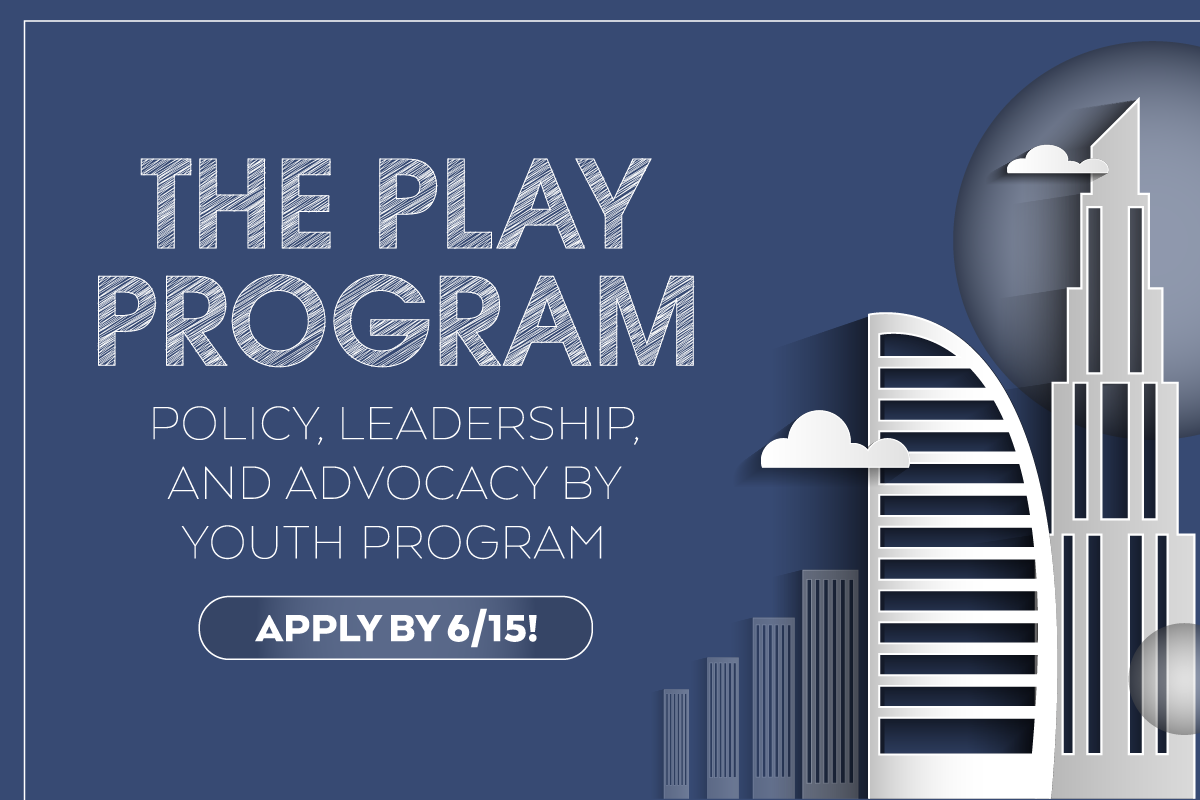
As agents of change, teens have the curiosity to ask the big questions, the tenacity to unpack social issues, the brilliance to dream up solutions that respond to them, and the willpower to make those solutions real. At iThrive Games, we work with and for teens, creating learning experiences that center play and game design to meet them where they are, engage them in their genius, and nurture their change-making abilities and social and emotional skills.
This summer, we're excited to join forces with the Frank Batten School of Leadership and Public Policy and build on our library of teen-centered learning experiences with the PLAY (Policy, Leadership, and Advocacy by Youth) Program. The PLAY Program will bring 40 high school students from across the Piedmont, VA area together for an all-expense-paid, week-long program at the University of Virginia. Students will use game design activities from our Game Design Studio Toolkit to explore policy issues and potential solutions that impact them and today's teens.
From policies around mental health to education to homelessness to gun control, teens will also connect with real-world policy leaders and gain exposure to the practical "toolkits" they use in their own impactful careers. Professional development opportunities like resume- and college essay-writing workshops will complement other interactive activities like a field trip to the Moton Museum—the birthplace of the U.S. student civil rights movement-and a graduation luncheon.
Thanks to a generous donation from the Jefferson Trust, all expenses, including meals and transportation, will be covered. The program will run from Monday to Friday, July 18 to 22, from 9 a.m. - 4 p.m. daily (ending at 1 p.m. on July 22). Participants should be high school students committed to engaging with other teens throughout the program and making a positive impact in their communities at its conclusion. Invite the teens you know to apply by Wednesday, June 15th!
APPLY TO JOIN THE PLAY PROGRAM
SEED Designers Bring Games & Experiences to The Heller School at Brandeis
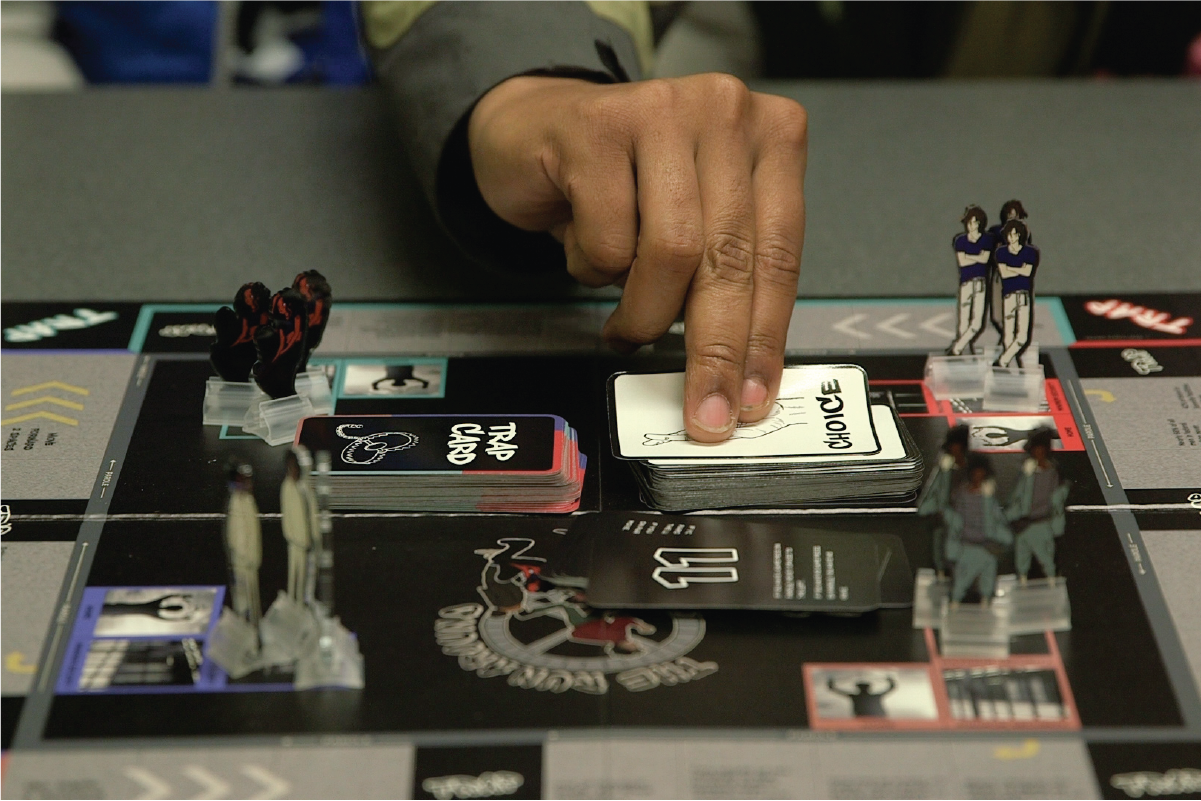
This summer, youth designers at the SEED Institute are bringing their expertise (and games) about the harmful systems they've navigated to graduate students at The Heller School for Social Policy and Management at Brandeis University.
Those who are most impacted by systemic harm know what's needed to disrupt it.
This belief is a foundational one at the SEED Institute, a collaborative effort between Transition HOPE, iThrive Games, and the Black Ministerial Alliance-Ten Point Coalition. At the Institute, young people are SEEDs—System Educated Expert Disruptors. Synthesizing their lived experiences navigating systems of oppression into structured games, SEED Designers use play to advocate for meaningful change in youth-serving institutions. They then bring the games to sessions with community stakeholders throughout Boston, where the designers facilitate play-based conversations to share knowledge, identify and unpack inequities, and imagine possibilities for systems that truly nurture youth. The work of the Institute so far has been powered by SEED Designers' inventiveness and their commitment to building relationships and facilitating conversations that ignite and inspire action.
For a few designers at the SEED Institute, advocacy began with Transition HOPE's Summer of HOPE 2018, an initiative that paired them with graduate students and faculty at The Heller School for Social Policy and Management at Brandeis University. Working as research assistants over seven weeks, the SEED Designers had the opportunity to learn more about how structural violence impacts day-to-day life. Meanwhile, the graduate students and faculty learned more about how to best support young people.
This year, the SEED Institute will continue this vital work with The Heller School's newly launched Racial Justice and Tech Policy Initiative (RJxTP). Through this initiative, SEED Designers will engage in research and develop a game as part of the Hidden Bias Research Prize. RJxTP aims to create more opportunities for knowledge-building and knowledge-sharing between and among youth designers, graduate students, researchers, and policymakers. SEED Designers will use their stories, wisdom, understandings, and ideas to contribute to the dismantling of systems of injustice. Check out the video below for a glimpse of the collaborative work ahead:
Stay in the loop! To quote one of the designers at the SEED Institute, "awareness is like a fire—and that's what we're here for; to spread that fire and spark change in somebody's mind." Keep up with the SEED Institute's design team as they develop and launch new games, and press forward with their advocacy and awareness-building through play, by signing up for our mailing list today.
In Times of Stress, I Turn to Cooking Games. Here’s How They Help Me Cope.

The Power of Play blog series invites teens across the nation to share stories and reflections that highlight the ways games have helped them learn more about themselves, create new bonds, and better understand others. We're excited to continue the series with a reflection written and submitted by Ashley, a high school student based in Philadelphia, PA, on the ways cooking games have helped her destress and connect with herself in crucial moments.
Many people play games to pass the time and because they enjoy the effect games have on them. They have a relieving effect, and they are a way for people to forget about their problems temporarily.
Typically, I am a person who relies on other people to help me cope with whatever crisis I'm in to help get me through it. I also rely on games to help get me through it. Games are a one-stop type of thing that will never leave you. Games are there for you whenever, any time of the day. I am such an overthinker and struggle with self-confidence. When something devastating happens in my life, all I can think about is all the negative consequences that it will bring. That's it. Nothing. No one else. But having games, something to go to at any time of the day, has been really helpful. Playing them helps me forget about my problems in that moment.
I enjoy baking and cooking and the excitement that comes as I savor every second, minute, and hour before the food is ready. Cooking has always been a way for me to be and feel productive. I love the feeling that comes with making good food. You are so busy thinking about how good you want the food to be or how you do not want to mess up a recipe that you just feel more present and focused. Nothing else matters.
I found that same feeling in cooking games. Games like Cooking Mama, Cooking Fever, and Diner Dash help me take a pause from the world. I usually play anything that involves clear goals and the use of my time management skills. Cooking games mean a lot to me. Ever since I was a little girl, I have always had a passion for cooking because my mom cooks every day. Even if we have so much food leftover from the previous night, she will still cook something new the following day because of the relief it brings. I use cooking games in the same way. They help me deal with the problems I wish to overcome. In these games, there are numerous restaurants where you have to make and serve your "customers" food and drinks, and you earn money in exchange. The higher the level, the harder the difficulty range will be. The harder you push, the more productive and focused you feel.
These games are close to my heart not only because it brings me joy to serve others but also because, even if only for a little bit, it makes me forget about unpleasant things I can't control. These games also allow me to express my creativity through food. And what's not to love about that?
We are always looking to amplify teens' voices and share their stories that attest to how games help us understand ourselves, each other, and the world around us. Have something to share? Send us your thoughts, stories, ideas, and reflections at contact@ithrivegames.org with a brief blurb about yourself to see it on our blog this year!
What Playing Video Games Taught Me about the World and the People in It

This post is the next in the Power of Play blog series, which shares posts from teens reflecting on the many ways games have helped them connect with others, find community, explore new perspectives, and discover new possibilities for themselves. We're excited to continue the series with a reflection written and submitted by Tony, a high school student based in Philadelphia, PA, who shares some of the ways video games have mirrored, enriched, and influenced his world.
Video games have played an important role in my life and shaping how I perceive things. Although they may not be real, some video games portray the real world and make you ponder on things you normally wouldn't. Video games have been a gateway to great things for me. I have met some of my best friends and have gotten through hardships with games as they shape who I am and my life. Three video games specifically have altered my way of thinking, those games being Detroit: Become Human, Life is Strange 2, and Batman: The Telltale Series.
In the game Detroit: Become Human, we are taken into a futuristic period, one in which humans have created cybernetic androids to perform tasks and labor for them. This takes a turn when the androids become conscious and want to be treated as equal and not merely property. This game was one of the first in which I thought about ethics and what the morally correct thing to do would be. This game developed my critical thinking due to its really creative way of displaying discrimination. Although they're not human, the androids still have a consciousness and make choices. This game helped shape some of my thought processes.
Life is Strange 2 is another one that comes to mind when I think of games that are a key element of who I am. This game follows the story of two boys who are living in an ordinary life until an instance occurs that immediately resonated with me. The boys, who are Mexican, have an altercation with a white male and the police arrive. The policeman immediately points his gun at the Mexican boys. This happens all of the time in real life in black and brown communities and I'm glad the game showed this. Police often see people of color as a threat when that's not the case. Things like this being mentioned in video games are another reason why video games are so great to me.
In another game, Batman: The Telltale Series, one of the most important themes and takeaways is how people around you and events can alter you and your perception of life. Batman witnessed his parents die. Joker becomes the Joker due to the manipulations of others and things of that nature. Recently, I had an event which altered the entire way I perceive life and how I go about it. Batman: The Telltale Series showcased to me how environments and circumstances shape who we are and how we live our lives.
Overall, I feel that although video games have this negative stigma associated with them, for me, and most likely others, video games are meaningful. They help me not only better understand myself but also the world and environment around me. They highlight questions about ethics and showcase real-world issues that need to be discussed like police discrimination against people of color. In my life, video games have been an escape from all the craziness and helped calm me. They are a key element in making me who I am.
We are always looking to amplify teen voice and share their stories that attest to how games help us understand ourselves, each other, and the world around us. Have something to share? Send us your thoughts, stories, ideas, and reflections at contact@ithrivegames.org with a brief blurb about yourself to see it on our blog this year!
How Are We Teaching Teens to Prepare for and Respond to Natural Disasters?

2021 saw a record number of catastrophic natural disasters and weather emergencies throughout the United States. Wildfires ravaged the West Coast, destructive flooding engulfed the East, extreme temperatures enveloped the South and Pacific Northwest, and the Atlantic hurricane season—the third-most active one in history—produced 21 storms.
The intensity and frequency of these natural disasters prompt important questions about disaster preparedness—what can we do to ensure our safety and the wellbeing of our communities in times of crisis? We think the answer must enlist the creativity and perspectives of young people, and the Federal Emergency Management Agency (FEMA) agrees. They view young people as "positive influencers" uniquely capable of bringing the message of preparedness home to their families. Like FEMA, we believe that equipping young people with emergency management skills is a crucial part of engaging whole communities. Together, we're creating a new iThrive Sim scenario that strengthens teens' emergency preparedness through play.
The new hands-on learning experience, designed in partnership with Federal Emergency Management Agency Region VIII, will be hosted on the award-winning iThrive Sim platform, which uniquely merges tech, role-play, social and emotional learning, and online gameplay to deeply engage teens with rich storylines and with core content. The resulting role-playing simulation scenario will help FEMA increase access to training opportunities and better reach young people living in underserved and rural communities.
"While nothing highlights the importance of emergency preparedness quite as well as the visceral experience of a natural disaster, we don't want it to come to that," share Daniel Nyquist and Stephanie Poore from FEMA Region VIII. "An engaging simulation is a fantastic tool for laying down the mental pathways we need to activate in times of crisis. That's why we are thrilled to be designing a disaster preparedness simulation with the iThrive team. iThrive's unique co-design approach is illuminating how to mobilize young people's creativity and distinct strengths in service of building mindsets and skills needed for resiliency across disaster preparedness, response, and recovery."
A core principle of iThrive's co-design process is involving teens in the development of products, programs, and services that seek to engage them. As we work with FEMA to create this new tool for Region VIII, which serves 29 Tribal Nations, Colorado, Montana, North Dakota, South Dakota, Utah, and Wyoming, we've been in community with teens from those states to gauge their needs and weave their input into each step of the game design process. An initial co-design workshop with 15- and 16-year old teens surfaced themes that were top-of-mind for them, including ensuring the safety of pets, coordinating resources, trusting experts, and cultivating the emotional ability to cope with disasters. These themes are actionable insights that will inform the game's content and ensure what we create is relevant, memorable, and meaningful for teens.
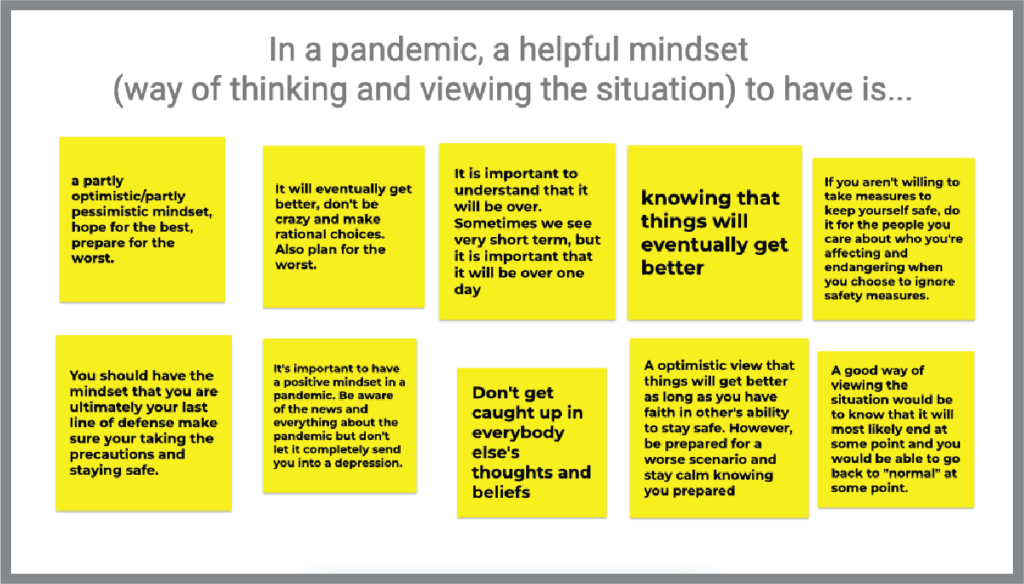
A snapshot of a Google Jamboard from a recent brainstorming session with teens featuring their responses.
As we work through the game development process, the wisdom of the teens we're working with continues to be both instructive and inspirational. "Teens never cease to impress me with their generosity, openness, and vulnerability when sharing about difficult topics—they get right to the heart of the issue with self-awareness and a solution-focused drive," shares Jane Lee, Senior Director of Operations and Mental Health at iThrive Games. "These teens have been through a remarkably challenging time, and it's only strengthened their resolve to build the skills and relationships they need to grow in their resilience."
The iThrive Sim scenario, launching in late 2023, will support teens and their families in knowing what to do in an emergency situation, covering disaster preparedness and response. To stay updated with its launch, be sure to join our mailing list today.
Refugee Students Use Game Design to Support Schools Welcoming Refugees
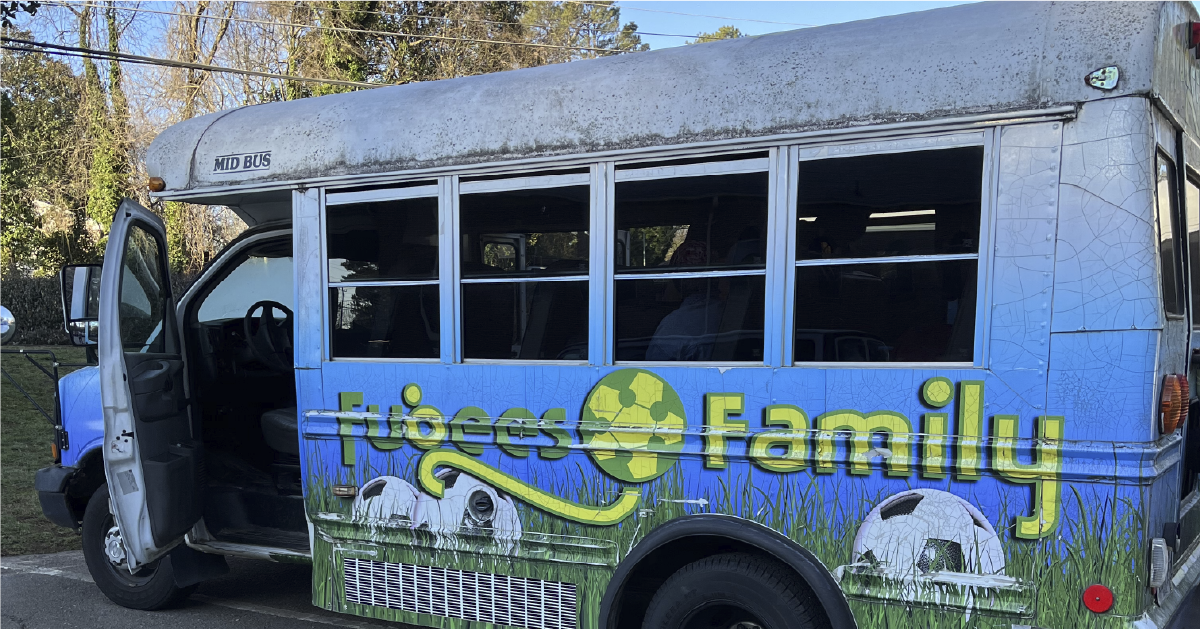
"What do you want teachers and other students to know, feel, say, and do when they connect with refugee students?"
On the morning of Wednesday, February 10th, members of the iThrive team posed this question to a group of experts—22 high school students from Fugees Family, a community-based school designed to meet the unique academic, social, and emotional needs of refugee students acclimating to life in the United States. What followed was two and a half days of deliberation expressed in story-sharing, collaborative thinking, imaginative drawing, and play, the insights from which will inform the creation of tabletop games that communicate an answer.
In December, Luma Mufleh, founder of the Fugees Family, approached iThrive and shared her desire to co-create with Fugees Family students resources that would highlight their expertise, communicate their experiences, build empathy, and ultimately, support schools across the nation who are accepting incoming communities of refugee youth. We knew then that game design, and the cognitive process it entails, was the way to go.
"Games are a safe way to learn about something," shares Luma. "We want to create empathy, so the games' content needs to come from those with lived experience. The games have to be through the lens of those who've experienced what it's like to be a refugee and enter a new country, school system, community, and lifestyle. And that's why it is super important to bring refugee students into the design."
iThrive's Game Design Studio program offers schools and youth-serving organizations a unique design thinking and social and emotional learning experience where teens play, analyze, reflect, connect, and design games that express their ideas and prompt change in those who play them. In bringing the Game Design Studio to Fugees students, our objective was to join the Fugees Family in their commitment to amplifying the voices of refugee youth. We committed to using what their students shared to develop games that center and highlight their courage, creativity, and resilience, and humanity.
Here's a snapshot of what was surfaced, shared, and dreamt up in our time together:
DAY 1: PLAY, IDEATION, AND MOOD BOARDS
The first day of the Game Design Studio began with play. Introductions were made during an icebreaker activity where each student and staff member shared their name and a dance move that everyone else in the group repeated and mirrored. The icebreaker was followed by an opening design activity that added new layers and variations to Rock-Paper-Scissors and invited students to name and explore mechanics that can be added and taken away to games to make the play experience more collaborative and comprehensive. Reflections on the 'Rockstar' and 'Giants-Wizards-Elves' versions of the classic game led to even more ideation as students played an array of board and card games, noting each game's components and reflecting on whether or not they'd like to incorporate them in the ones they were co-creating.
In the second part of the day, students explored how design can evoke emotions that enrich a game experience with depth and intention. After being assigned an emotion card that they were asked not to show to their peers, students grabbed a piece of paper and sketched out a scene reflective of the word on the card. Once done, students posted what they created on a board and did a gallery walk, making predictions about what mood each board communicated and noting how certain colors, imagery, patterns, and dialogue spurred visceral emotional reactions.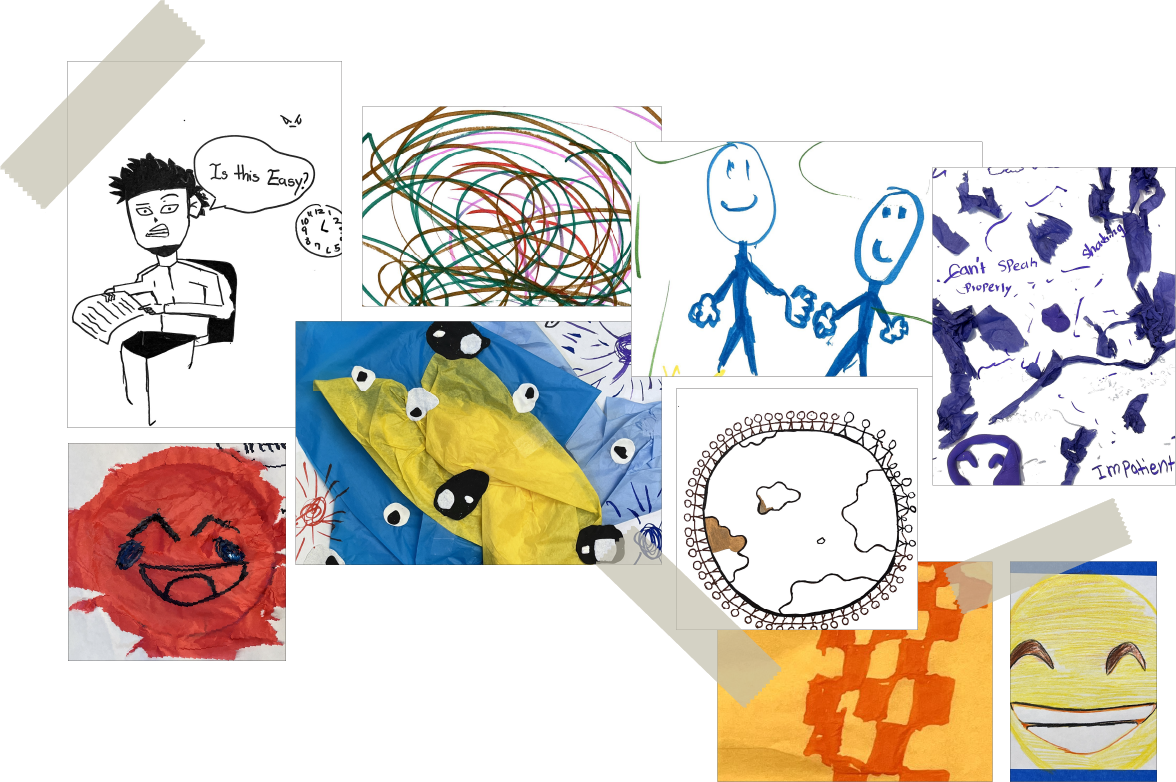
Mood boards created by students from Fugees Family.
DAY 2: CHARACTER DESIGN, WORLD-BUILDING, AND PAPER PROTOTYPES
"What does your refugee superhero look like?"
The second day of the Fugees Family Game Design Studio kicked off with this prompt and an invitation to dream up game characters. Students thought critically about the parts of every superhero's story—their origin, transformations, life shifts, weaknesses, superpowers, and strengths—conceptualizing characters reflective of the students' own personal stories and brilliance. After drawing and documenting these characters, students were asked to draw the world that surrounds their character, one that encourages them to step into and stay in their full power.
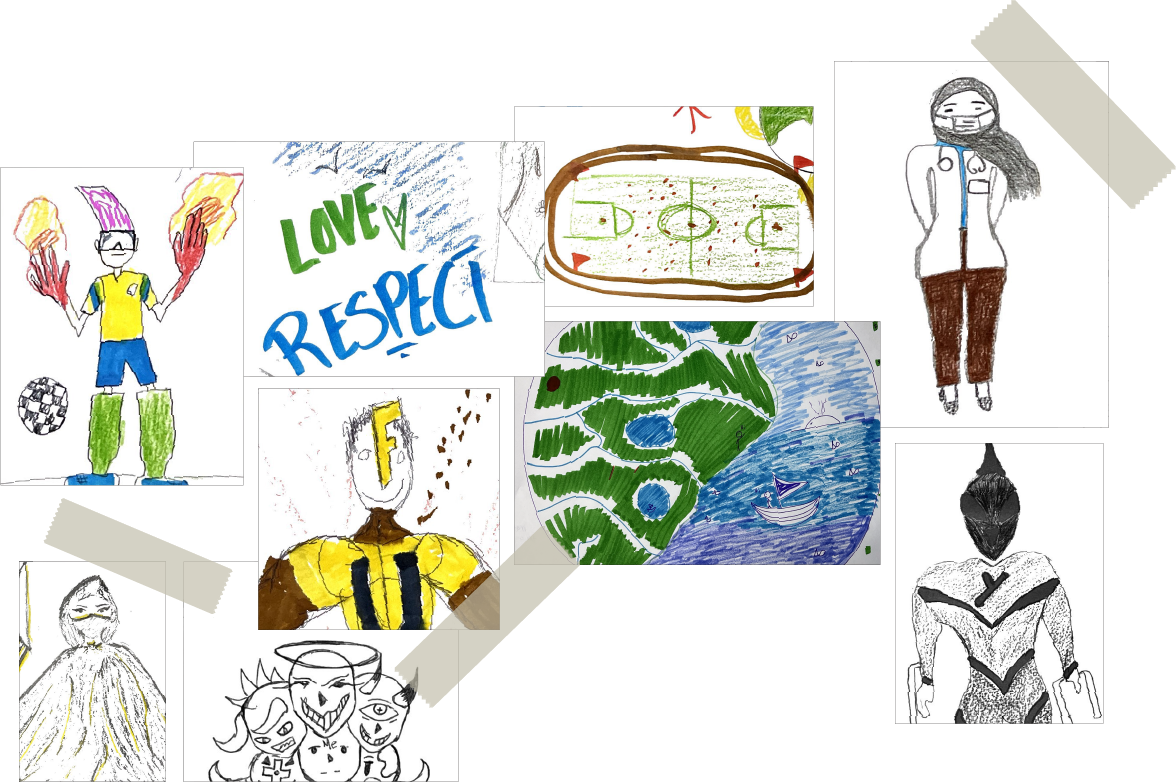
Worlds and characters designed by students from Fugees Family.
With worlds and characters in hand, students reflected on a critical question: "If your superhero was stripped of their superpowers and taken from the world that supports their thriving and special abilities, what could empower them? What could discourage them?" Pulling from both their lived experiences and imaginations, students, working in groups, began to map out the attitudes, actions, and behaviors they associate with a genuinely welcoming environment along with the ones they see as othering and isolating. By the end of the first part of the day, together, students had created 100+ cards with insights that will be incorporated into future games and learning tools to support the work of Fugees Family.
The remainder of the day was dedicated to paper prototyping and playtesting. On a game board template, students worked in groups to assemble games that centered and used the cards they made and behaviors they mapped. In brainstorming together, students laid out their game's learning objectives, mechanics, rules, and win and loss states. The iterative process of playtesting their games with others and then fine-tuning them based on observations and feedback led to the development of five paper prototypes with components that will be incorporated into the final games.
DAY 3: PLAYTESTING, STORY-SHARING, AND LIFE MAPS
A common thread in each of the five prototypes developed by the designers on Day 2 was a desire to create a gameplay experience that helped teachers and students—refugee and non-refugee students—learn more about each other. On the morning of the last day of the Game Design Studio, students built on this throughline. Working in pairs, they drafted questions and conversation starters on index cards. Once done, they swapped decks with another team of student designers and playtested their questions, ensuring they were all accessible, welcoming, and connection-centered questions. By noon, students had compiled over 200 conversation starters that will be shared in a future game.
The last few hours at Camp Twin Lakes were full of personal stories and reflections on what refugees leave behind, what they encounter on their way to refuge, and what life is like when they arrive. After Luma shared her grandparents' story of fleeing Syria during the Assad regime, students, gathered in a circle, used it as a springboard to dig deep into their own stories and note the similarities in their experiences.
For the last design activity, students spent time outdoors sketching out a life map that outlined the emotional journey of their lives so far. These maps, along with the creations and ideas generated up until then, will inspire a suite of games for teachers and non-refugee students that will support the welcoming of refugee youth who, as one student shared, "just want to be treated as human beings." As students and staff loaded onto the Fugees Family buses and left the camp, we were all reminded of what can come from co-creation and the role it plays in imagining new solutions.
"When we desire to imagine what a better future can be and needs to be, there's no one better to imagine and co-create with than teens," shared Susan E. Rivers, Executive Director and Chief Scientist at iThrive Games. "The teens from Fugees Family are the experts and the ultimate design partners in designing the tools schools and communities need to welcome families who have been forced to flee their countries. These teen designers bravely and candidly brought their lived experiences and expertise to Game Design Studio with the goal of helping schools offer safe and supportive and empowering environments for all students, including refugees. The schools they imagine are ones where all students—refugees and non-refugees—feel cared for and respected, where shared humanity is the connective tissue."
The Fugees Family model, centered in soccer, encourages every student to work as a team member to support collective thriving and well-being on and off the field. We see the tabletop games that will be generated from this Game Design Studio session with Fugees Family students as an extension of that model. The students' genius and honesty will lead the way for better support of refugee students and help schools get better at togetherness. Sign up for our mailing list today to be one of the first people notified when the games launch.
To learn more about the Fugees Family and their mission to advance educational justice for refugee and immigrant youth, visit their website at www.fugeesfamily.org.
Teen Mental Health: Five Tips for Making the Most of Your Social Media Use
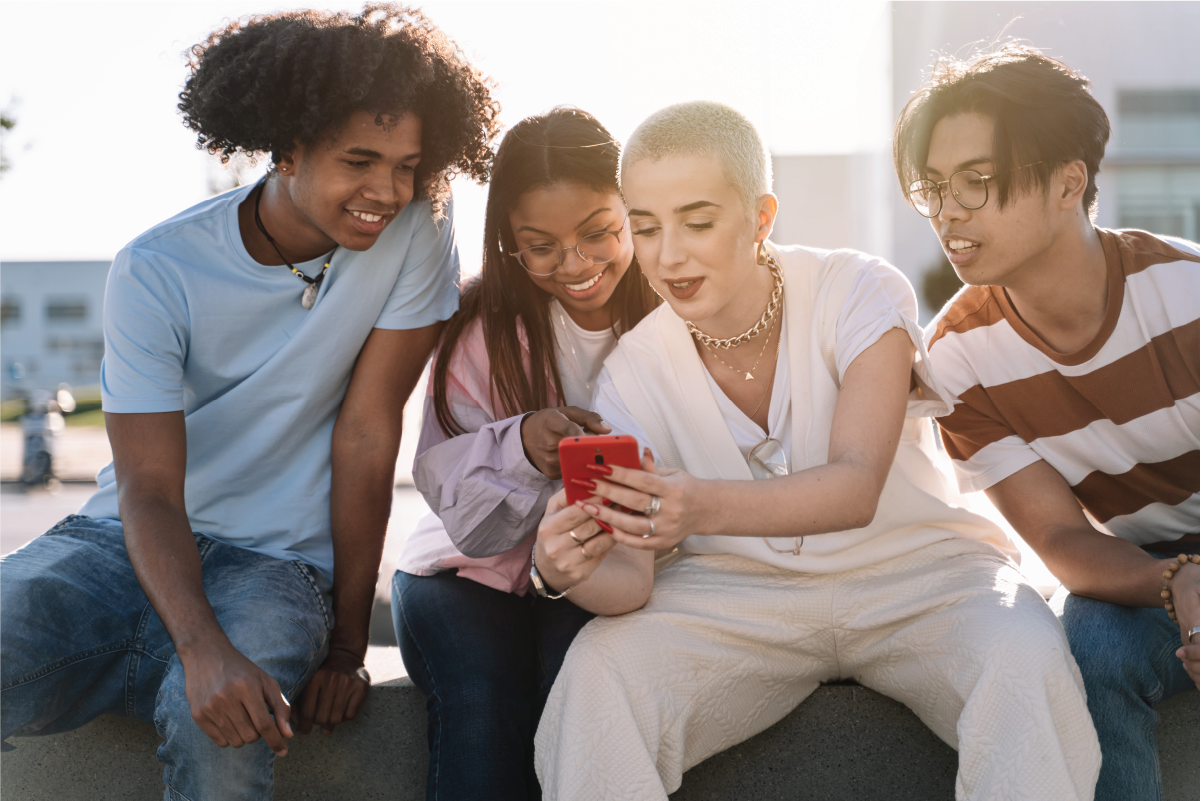
This post is the next in our series, Supporting Teen Mental Health, which shares tools and insights that support youth-serving adults in showing up for teens in this moment of need. Click here to read the first post in the series about mindfully managing difficult emotions.
Social media use gets a bad rap, and there are certainly reasons for caution. As shared in the U.S. Surgeon General Advisory's recent report on teen mental health, in 2020, 81% of 14- to 22-year-olds said they used social media either "daily" or "almost constantly" and in some circumstances social media use has been linked to poor mental health outcomes.
These findings may be alarming to adults who care about young people and want to protect them online, but as one teen shared with us, "To a high schooler, representation on social media is a huge deal...they don't want authority stepping into their fun zone." Even though guidance and support can be helpful, adults often lead with fear and hammer on the dangers of social media without identifying the opportunities. Yes, we all can strive to be intentional in our use of social media. Adults can model that intentionality. Adults also can reframe social media as one important tool young people and adults can use to support things that matter to them.
ACTIVE SOCIAL MEDIA USE VS. PASSIVE SOCIAL MEDIA USE
How well social media connects or isolates us depends partly on the behaviors we embody while using it. The Advisory reports on an important distinction between passive and active social media use, highlighting how healthier the latter is.
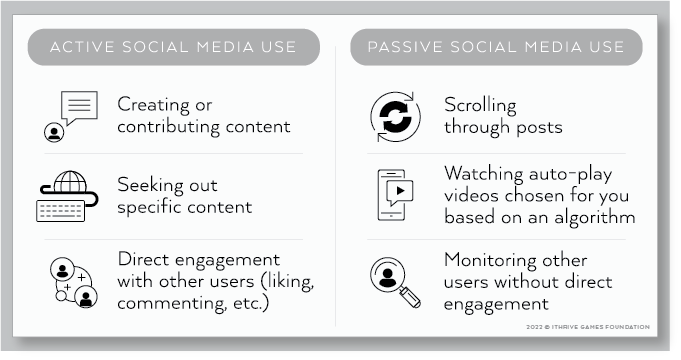
An active social media user uses its platforms to enrich and simulate real life. They use social media to connect, share and talk to the people they know, and actively engage with communities that offer new perspectives or that share their interests and hobbies. On the other hand, a passive user does not directly engage with others on social media platforms. Instead of actively interacting with others, they wait for content to come to them. Research shows that passive use of social media induces feelings of isolation, sadness, and depression often spurred by viewing the lives of others. If we're all aware of the behaviors that support more positive and healthier experiences on social media, we know which usage patterns to strive for whenever we're online.
HOW TO USE SOCIAL MEDIA ACTIVELY AND MAKE THE MOST OF IT
We spoke to a few of the teens we've worked with to co-create learning experiences for high school classrooms and asked about how they engage with and on social media. Their answers point to how social media, when reframed as a relevant tool for teens and when used actively, supports self-regulation and social connection along with the exploration of self, emotions, thoughts, and interests. Whether you're a teen or an adult, these five tips can help you make the most of social media use so you can post and peruse with purpose:

1. SET YOUR INTENTION.
Why are you going on this social media platform right now? What are you looking for or hoping to feel? If it's simply to escape and avoid anything heavy for a little while, that's valid! Since these platforms are designed to pull you in and keep you on as long as possible, just notice without judgment when your use is drifting from your initial intention and take a pause to bring yourself back to it.
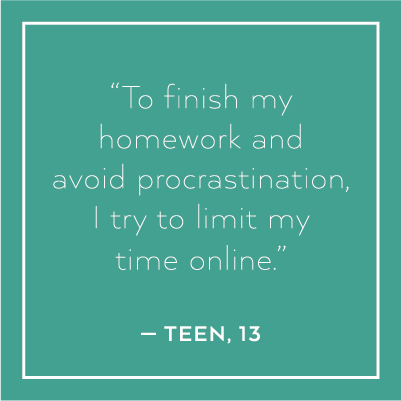
2. CONSIDER SOCIAL MEDIA USE AS ONE PART OF A HEALTHY MENTAL DIET.
Social media use can promote connection and contribute to mental and emotional health when used mindfully and in balance with other healthy behaviors like sleeping enough (7-9 hours for adults, 8-10 for teens), keeping your body moving, spending time with others in person, taking time to reflect on who you are and what you want, and more. Over a few days or weeks, notice what portion of your mental health "plate" social media takes up, and look for opportunities to continue to fine-tune your best balance.
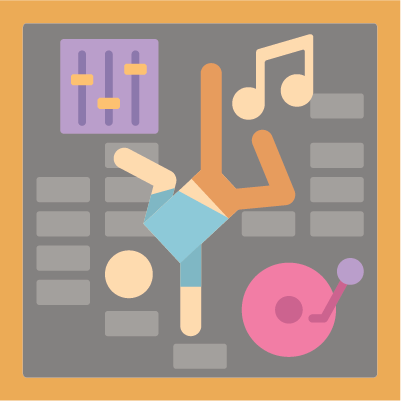
3. CREATE AND EXPRESS.
Especially for teens, social media is a great place to make content and express the many aspects of a dynamic personal identity. Try your hand at making up a dance, sharing artwork, or narrating an experience that reflects who you are and what you care about. You can also make it a point to actively appreciate content you love that others create, like by adding your comments and reactions. This can be a good first step if you typically spend your time online consuming others' content without deeper engagement.
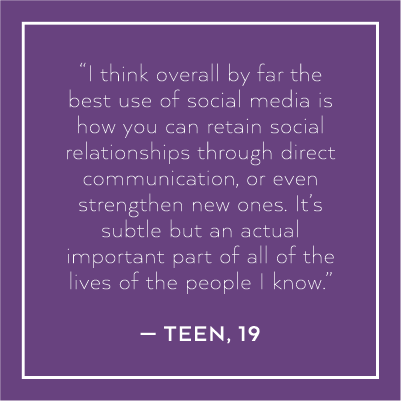
4. FIND YOUR PEOPLE.
Social media platforms connect us to the wider world. What a fantastic opportunity to both expand our perspectives and find others who help us to feel a sense of belonging. For teens, especially those struggling to find acceptance at home or in school for various reasons, reaching out for support on social media can be a lifeline. Search for (or create!) a group around a special interest. Request to join if the group is private, and then introduce yourself to get a conversation and connection started.
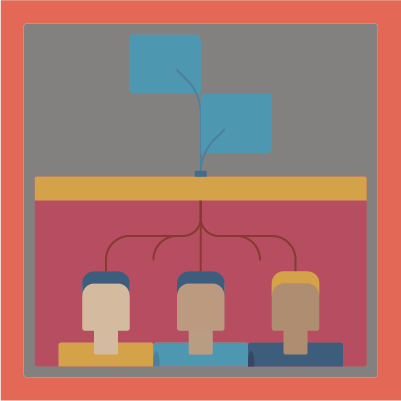
5. MAKE A DIFFERENCE.
Now more than ever, social media is a platform that can ignite support for causes that better the world. Teens are so often at the forefront of changes like these. To really level-up your social media use, start an online petition or relief fund and share it with your friends and followers, or look for opportunities others have initiated where you can lend your voice, time, and talents.
Social media offers meaningful opportunities and can be a sacred "fun zone" for teens. If you're an adult who cares about teens, reinforce those meaningful opportunities by highlighting them when you notice them. If you're a teen, consider sharing with the adults in your life about what social media allows you to do for your mental health and what intentional use looks and feels like to you.
At iThrive, we are building engaging learning experiences where teens can experiment without judgment with different ways to express themselves and connect empathically with others. To stay up-to-date on our offerings and the latest posts in the Supporting Teen Mental Health series, sign up for our mailing list today.
Join iThrive’s Teen Advisory Council and Co-Design Exciting Gaming Experiences
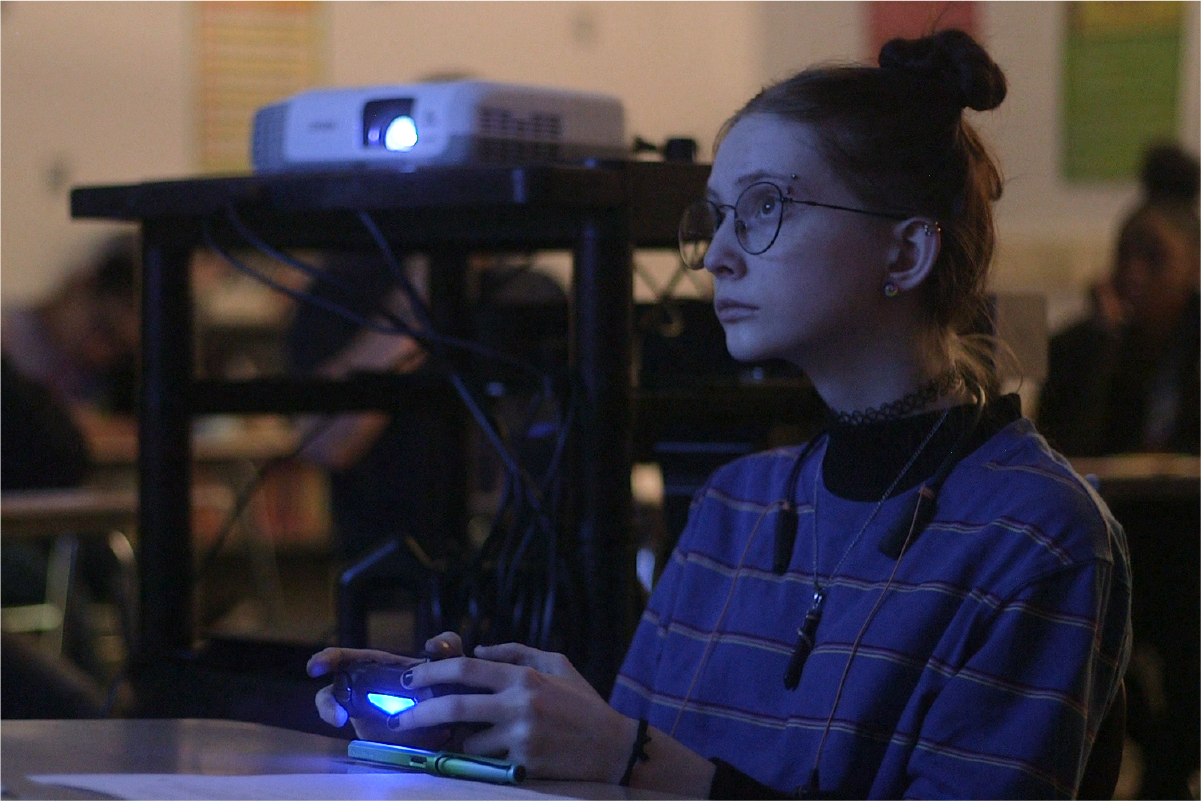
Do you love playing games? Have you dreamt of creating a few? If you said yes, then we need you on iThrive Games' Teen Advisory Council.
Teens tell us all the time how games help them connect with friends, de-stress, strategize take-overs of new worlds, feel a sense of belonging, inspire new ways to learn, and so much more. At iThrive, we love games for all these reasons too, and our mission is to use them to make the world a better place.
We have found that our game designs are better when we design them with teens. Teens challenge us, inspire us, and offer world views and perspectives that we admire and appreciate.
We are launching a Teen Advisory Council and are looking for teens who love games and believe that game design and gameplay can make the world a better place. Members of iThrive Games' Teen Advisory Council are high school students—ages 13-17— who want to:
- Brainstorm, co-design, and test new games and share feedback with game writers, game designers, and our game development team
- Brainstorm new game designs and meaningful, immersive game-based learning experiences with us
- Use their voice in writings, recordings, or designs to share their point of view and experiences about what teens need most right now on topics that may range from game reviews, new game designs, learning, wellness, and more
All members must be between the ages of 13 and 17. Members will serve for a one-year term (February 24, 2022 to February 24, 2023) with an option to renew and will receive a monthly stipend ($150/month). Each month, we will ask you to engage with us on different activities which may include:
- Co-designing and testing new games or courses
- Providing feedback on design or content ideas for our games or courses
- Completing brief surveys to share your ideas and opinions
- Attending a virtual meeting with members of the Teen Advisory Council
We expect that monthly activities will take no more than 6-8 hours.
Applications to join the iThrive Games' Teen Advisory Council have been closed. Follow us on Facebook or Twitter for future updates and opportunities to beta test and consult on games.
Leveling Up: How Playing Video Games Helped Me Find Passion and Purpose
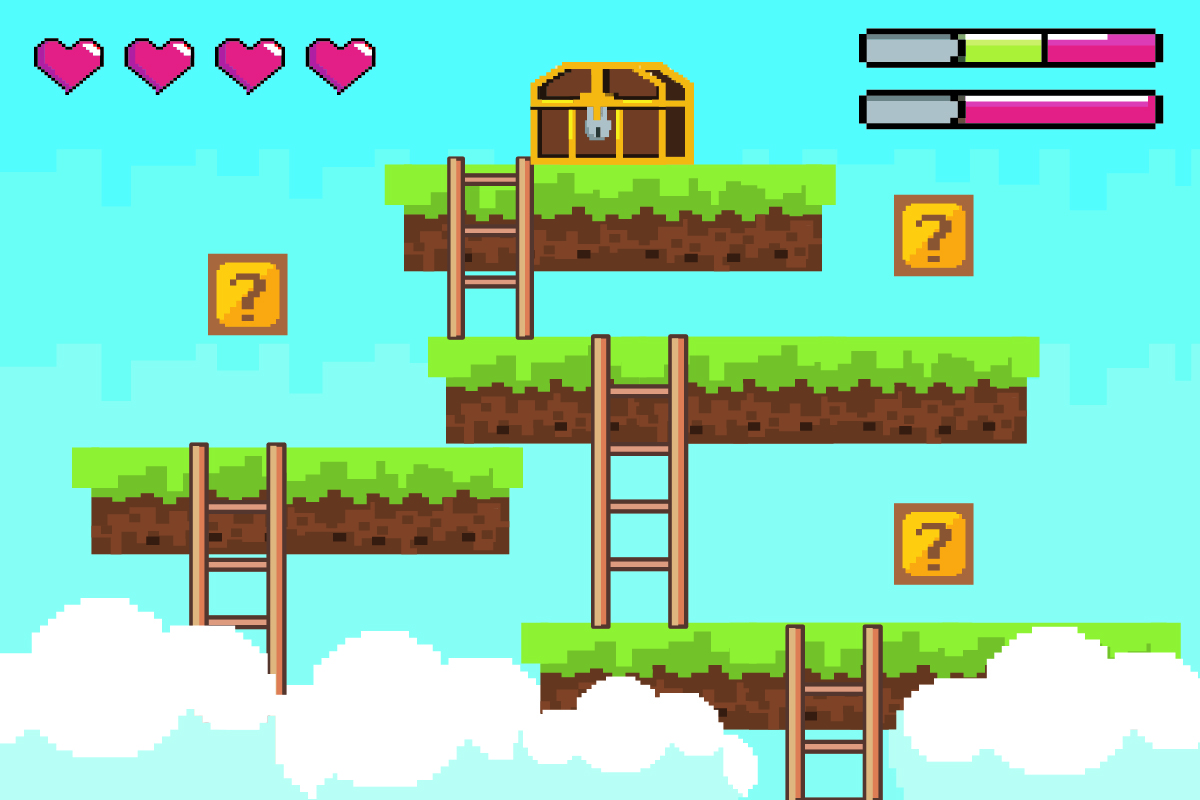
Games have the power to transport us to new worlds where we can safely explore new possibilities and perspectives. They delight us, challenge us, calm us, frustrate us, connect us, excite us, and invite us to uncover new ways of doing and being. Anyone who's played a game, be it digital or tabletop, knows this firsthand.
At iThrive Games, we see springboards for transformation in play's social and emotional value. We believe that when the emotions games evoke are recruited for learning, the learning that happens goes deeper and lasts longer. We champion play as a constructive avenue for academic, social, and emotional growth, co-designing game-based learning experiences with high school students and teachers that leverage the power of play and support teen thriving.
Last year, we launched the Power of Play, a blog series that shared posts from teens reflecting on the many ways games have helped them deal with life, discover possibility and purpose, and question the way things are in the world. We're excited to resume the series this year with the following post from avid gamer Jacob Rivers, an incoming college freshman, who shares a heartfelt story about how video games supported his self-discovery and becoming, preparing him for his next level in life.
"Jake, enough with the video games and get your work done," a phrase I have heard over and over again since elementary school. Being diagnosed with ADD at a young age, school never came easy to me. However, when I opened my Nintendo DS for Christmas, instantly, I was fascinated playing just about any game I could get my hands on, and it helped me become more focused. Once the bus had dropped me off from school, I would run up to my room and immediately play video games. As school got harder and I was about to enter middle school, video games became a sense of escapism for me.
Middle school can be difficult, especially for me who had just moved to a new town and started a new school. Coming from a large city to a small town where I only knew three people was daunting. Although joining a baseball league in sixth grade alleviated the apprehension, I continued to rely on video games. It was around this time that I began to watch Youtubers to learn more and improve my skills. Once I noticed myself getting better, I started to explore the platform of multiplayer. As I transitioned into high school, I became more competitive, and my passion for video games increased.
I was fortunate enough to sign up for an elective as a freshman called App Inventor. It was this class that sparked my interest to one day make my own video game. Knowing what kids enjoy as entertainment and creating something on my own felt like an achievement I could accomplish, and it motivated me even more. Every chance I had, I would take classes to improve my knowledge in the field I wanted to pursue. During sophomore year, one of my friends built his own computer, and this intrigued me. After I had turned sixteen, I got a job to save up the money to make this project happen. It took a lot of time and research to learn how to build a computer and have all the necessary parts. When I completed it, I felt proud, and I knew this was only the beginning of my abilities with computers. As the pandemic hit, I took a leave of absence from work; this caused me to isolate myself from society, and I became more involved with the gaming aspect. When junior year rolled around, I returned back to work. A month later, I was hit by a car, and fortunately enough, I only broke my wrist. Even with this setback, I maintained good grades, and the gaming continued to keep me in check.
As I finish my senior year, I will have the opportunity to take an online coding class where I will learn how to use Python, Java, and C++. This will add to my expertise and give me a head start for what I wish to pursue in college. Looking back at my younger self coping with ADD, I've realized how much I have grown. With gaming, my struggles of focusing in school lessened. With my wish to major in Game Design, I hope one day to make a game not just for amusement but to help kids who have fought with similar learning disabilities like me. I have finally completed this "level" in my life. Now, it's time to start the next one.
We are always looking to amplify teen voice and share their stories that attest to how games help us understand ourselves, each other, and the world around us. Have something to share? Send us your thoughts, stories, ideas, and reflections at contact@ithrivegames.org with a brief blurb about yourself to see it on our blog this year!
The Power of Play: Finding Hope and Community in World of Warcraft
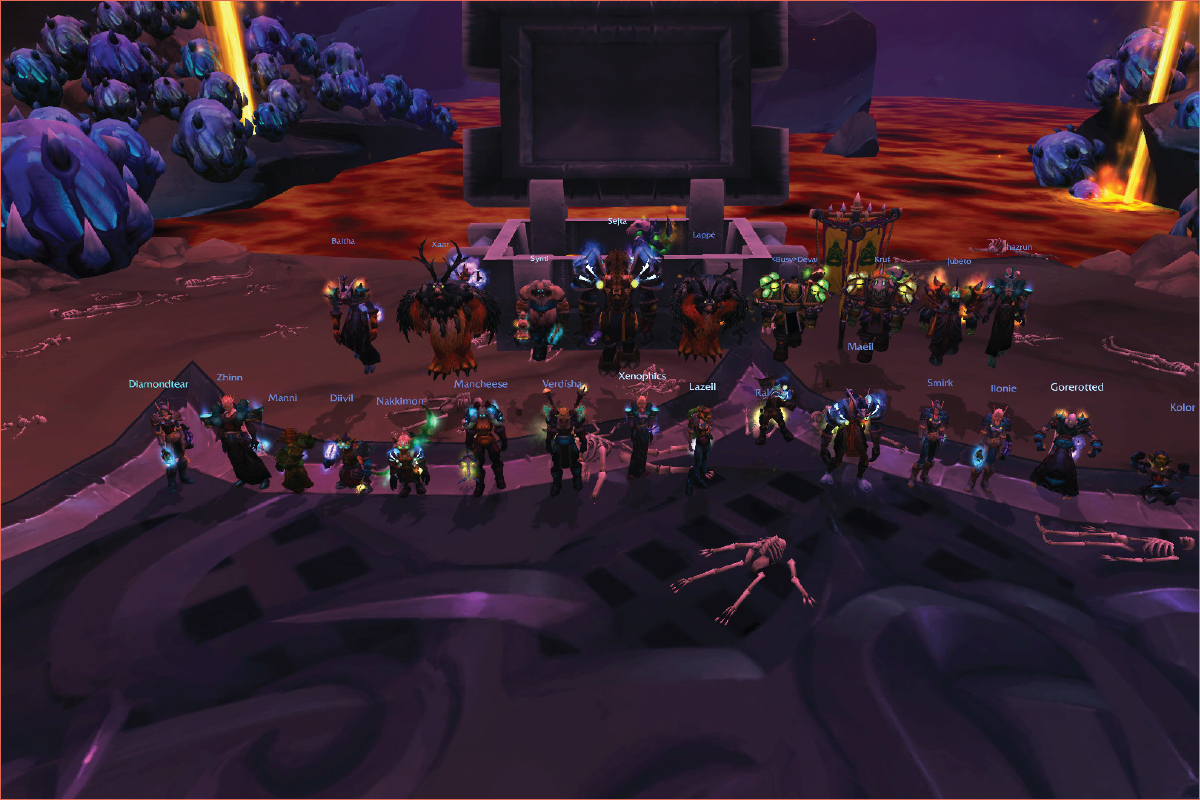
For many young people, games like World of Warcraft are more than play. Games provide a place to connect, a place to explore, and a place to learn. At iThrive Games Foundation, we have seen firsthand how game play can support teens in thriving, whether it's in the classroom or amongst friends playing together online.
Earlier this year, we asked teens from a high school in Philadelphia to share a bit about their experiences with games. For extra credit in their sophomore English class, a few students shared their thoughts on questions such as, "How do games help you deal with life? What games are meaningful to you and how do they help you better understand yourself or the world? How do games help you question the way things are in the world?"
As part of the Power of Play series, we'll be sharing their insights on play, from video games to card and board games. To protect their privacy, their reflections will be shared with initials rather than full names. We hope these stories illuminate the power of game play as seen through the eyes of these young people.
Finding Hope Through World of Warcraft
B.P., High School Student from Philadelphia, PA
"Video games are a waste of time for men who have nothing else to do. Real brains don't do that." These words were by Ray Bradbury, a famous writer and a pioneer of the science-fiction genre in the 20th century. Fahrenheit 451, one of his most well-known stories, foretold a dystopian society with remarkable technological advances similar to our modern world, and people were addicted to and disconnected by it. Bradbury regretted his accurate predictions, and hoped such a world did not occur. As a consequence, he despised gaming and believed that it was a meaningless hobby. His mentality is not unique and it is still popular, among many, to shun video games for being childish and a waste of time. However, I greatly disagree. From my experience, gaming is a worthwhile pastime, tremendously connective, and offers as many insights into life as books.
I was raised in a complicated and toxic household. When my parents divorced and my childhood best friend committed suicide, I was in a grim and lamentable place. Since I was an only child, I did not have anyone to consult about my problems. Often, I would hide in the bathroom and silently cry alone. On one Thanksgiving night, my older cousin found me sobbing in the dark. After he calmed me down, he proceeded to nonchalantly play a game on his laptop.
"World of Warcraft," I said out loud, curiously, since it was my first encounter with the world of gaming. He noticed my interest and offered me a chance to play it. Completely ecstatic, I picked one of his coolest-looking heroes—an undead warlock. After staying up all night playing the game with my cousin, I fell in love with World of Warcraft. Later, he allowed me to use his account and introduced me to his guild (in the game, players can join guilds and play the game together). From the guild, I have met amazing people who are unbelievably nice. One of the members of the guild that I interacted with was a therapist from Europe who plays the game in his free time. We would often farm monsters for drops, and talk about personal issues or life lessons while playing the game together. He helped me learn about the importance of mental health, and building healthy coping habits to deal with stress.
Although we both no longer play the game together or keep in touch with one another, he has made a considerable impact in my life through the amazing connectivity gaming enables. Furthermore, gaming allowed me to understand the importance of companionship and strategization in a way that no other form of entertainment could teach. In essence, gaming is not just a simple time waster. It has the power to connect people like no other media can. I wish more people could understand that gaming is so much more than ten year olds playing Angry Birds or sweaty thirty year olds in their mother's basement.
Power of Play: Finding New Friends and Perspectives in Destiny

For many young people, video games like Bungie's Destiny 2 are more than just play. Games provide a place to connect, a place to explore, and a place to learn. At iThrive Games Foundation, we have seen firsthand how game play can support teens in thriving, whether it's in the classroom or amongst friends playing together online.
Earlier this year, we asked teens from a high school in Philadelphia to share a bit about their experiences with games. For extra credit in their sophomore English class, a few students shared their thoughts on questions such as, "How do games help you deal with life? What games are meaningful to you and how do they help you better understand yourself or the world? How do games help you question the way things are in the world?"
Below, one teen shares their insights on play and the video game, Destiny in their own words. To protect their privacy, their reflections will be shared with initials rather than full names. We hope these stories illuminate the power of game play as seen through the eyes of these young people.
Finding New Friends and Perspectives in Destiny
A.C., High School Sophomore, Philadelphia, PA
Gaming has been a great tool in my life for learning lessons about people and life. They allow you to expand your perspective on a multitude of things while having fun. Gaming has brought many friendships to my life and I am happy about it. One game in particular I would like to talk about is Destiny.
To begin, Destiny is an open world game where you choose between three classes: Warlock, Hunter, and Titan. You wake up from death with the help of a ghost, a little exodroid that can restore your life force. He has been searching for you for thousands of years. You wake up earth but many years later where aliens have conquered the planet and humans have moved to a safe haven named the tower. This is where your journey begins.
Once you make it to the tower, they begin telling you all of the stuff you can do to power up your character and the lore behind what's going on. The main protectors of the tower are the vanguard that are made up of the three classes mentioned above—Zavala, Ikora, and Cayde-6. You can go through most of Destiny as a solo player but they allow you to be in a group up to six.
Destiny provides so much never-ending content you can play multiple hours a day and still have a plethora of stuff to do. This helped me a lot because I was able to talk to my cousin Jalen more often while playing, since I couldn't see him as often as I wanted to. We stayed up countless nights trying to get better than each other.
We ran into other people who wanted to do the same and just had so much fun. You can join a clan in this game where it allows you to become a group of friends so you can do encounters together. We joined one about a year ago and we have run into so many good people in the world. They are just regular people trying to have fun. We roast each other on who is the best in the clan or if you can hold your own weight. They just try to make you better at the game. It also made me a better person.
Destiny was a gateway for me to play other games and get to know people I have not met in person. Games, in my opinion, are crucial so you can see how people work and the lessons you will learn in life. I'm glad I was able to expand my perspective on the world while having fun in a never-ending game.
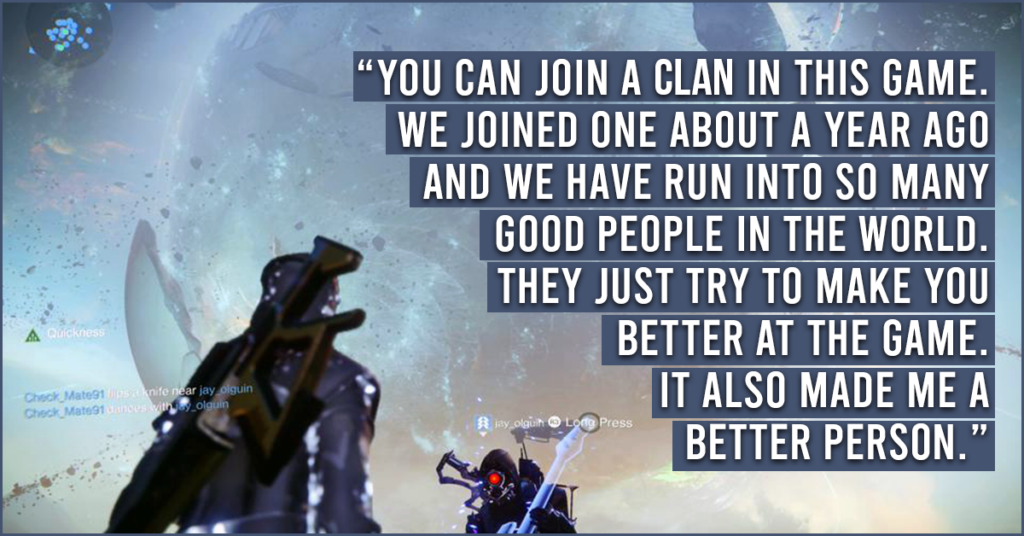
Check out our Game Guide for Destiny 2 for SEL-inspired themes in the game and discussion prompts crafted to invite depth to gameplay.
iThrive’s Juvenile Justice System Project Fosters New Partnerships
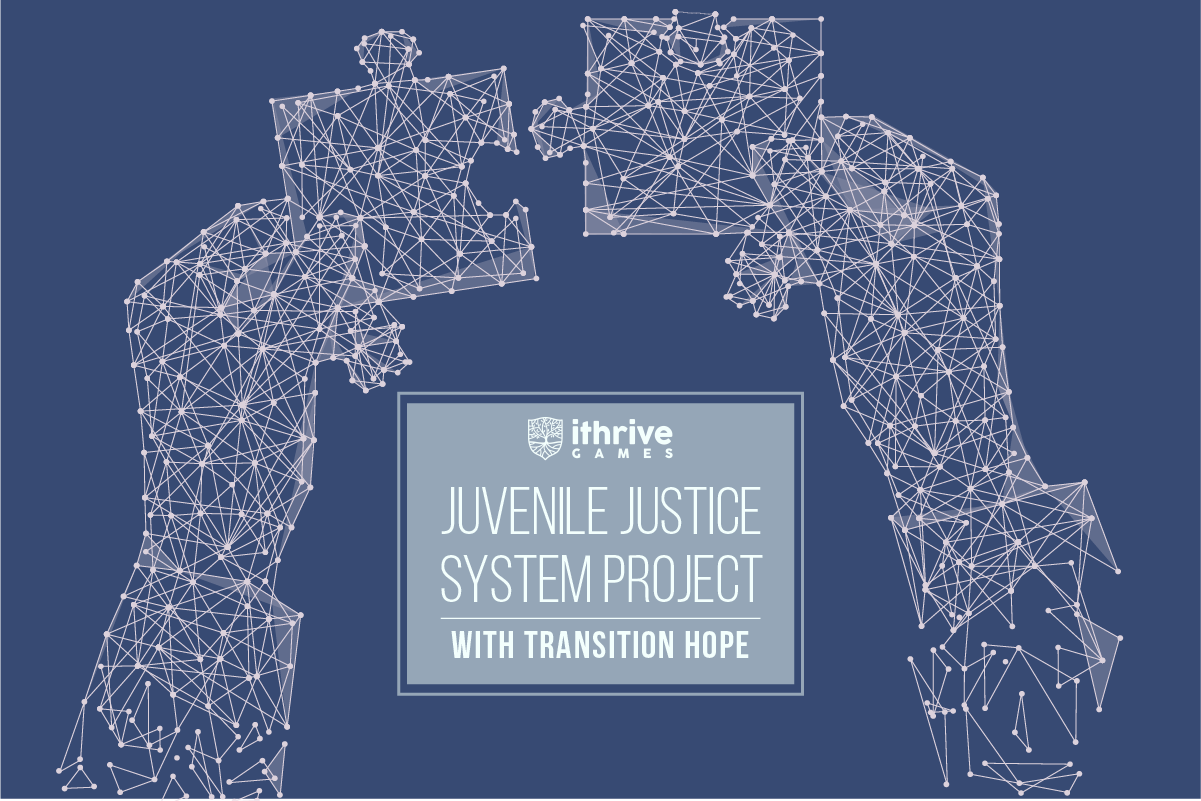
Racial disparities in the juvenile justice system continue to grow even as youth arrest rates decline overall, and black youth face particularly egregious disparities. Inequity in the provision of mental health services on the basis of race before, during, and after incarceration negatively impacts the health, well-being, employment opportunities, educational attainment, and relationships of individuals of color who are or were system-involved.
Last year, with a grant from William T. Grant Foundation, iThrive began setting the groundwork for a project to increase understanding of the lived experiences of youth of color within juvenile detention centers. The project was set to use iThrive's co-design approach, Game Design Studio, to authentically engage with youth and explore opportunities and barriers to supporting their mental health.
The COVID-19 pandemic hit just before the project was set to launch, disrupting the planned work. We could no longer work in-person with the youth; the detention centers were closed to all visitors indefinitely and travel restrictions were in place across the country. Staff explored and tested options for working with the young people at the chosen site in Georgia remotely, but the lack of reliable remote access and the nature of the work prohibited a distance approach.
After a few months of exploring other potential partners, staff found an excellent collaborator in Janelle Ridley. Bringing over 15 years of expertise to the project, Ms. Ridley currently sits on the Governor's Juvenile Justice Advisory Board and was previously a District Coordinator for System-Involved Youth for the Boston Public Schools where she worked with youth most impacted by the school-to-prison pipeline and sought to intentionally foster educational equity while actively working to dismantle the school-to-prison pipeline. Ms. Ridley is founder of Transition HOPE, a program intentionally designed for youth who are system-involved. Transition HOPE has been able to assist and bridge the needed resources for youth to continue moving forward. HOPE is an acronym for holding High Expectations for each and every young person; providing Opportunities that are realistic and within their perspective; helping the youth envision Pathways to Success by taking ownership of decisions for desired long-term outcomes; and providing Encouragement to help youth acknowledge that success is theirs to claim and define irrespective of the past.
In this new iteration of the project, iThrive staff will work closely with Ms. Ridley and a group of youth who will serve as Peer Leaders using our game design studio workshop model. Within the game design studio, peer leaders design games that draw from their lived experiences to think about the impacts of systems on their lives, and to imagine re-designed systems that would better support their well-being and mental health. In addition to designing games, peer leaders will build their facilitation skills and will lead meetings across the year with stakeholders, including other youth, city officials, educators, among others. In those meetings, peer leaders will use the games they design to launch discussions and explorations around systemic change, with particular focus on their lived experiences and on their well-being and mental health.
The peer leaders will work with youth stakeholders across multiple sessions using the game design studio approach, where the youth stakeholders will be invited to share their experiences in the system, iterate on the game designs to better reflect their needs and experiences, and then engage in conversations and game-play sessions with stakeholders.
"My goal is for those in positions of power and change to recognize that those with the lived experience are the experts, and they need to be at the forefront of change," said Ms. Ridley. "My hope is that these youth will see the value they are able to bring forth and although their journey has been those of trials, tribulations, and oppression, their journey is not over yet."
iThrive staff are grateful to Ms. Ridley and the youth for their partnership and also look forward to collaborating with AGNCY, a Boston-based nonprofit design firm that engages user-centered design to work with stakeholders toward systems change; and Beverley Evans, associate professor at the Graduate School of Education at Lesley University, who focuses much of her teacher training on building empathy amongst her students for young people and families most impacted by the school-to-prison pipeline.
"We are thrilled to have found partnerships to advance this important work," said Susan E. Rivers, PhD, Executive Director and Chief Scientist at iThrive Games. "We look forward to engaging with this group of young people in service of supporting youth-initiated systemic changes, changes that are long overdue."
Reflecting on the Power of Play: The Game of Life is Not a Game at All
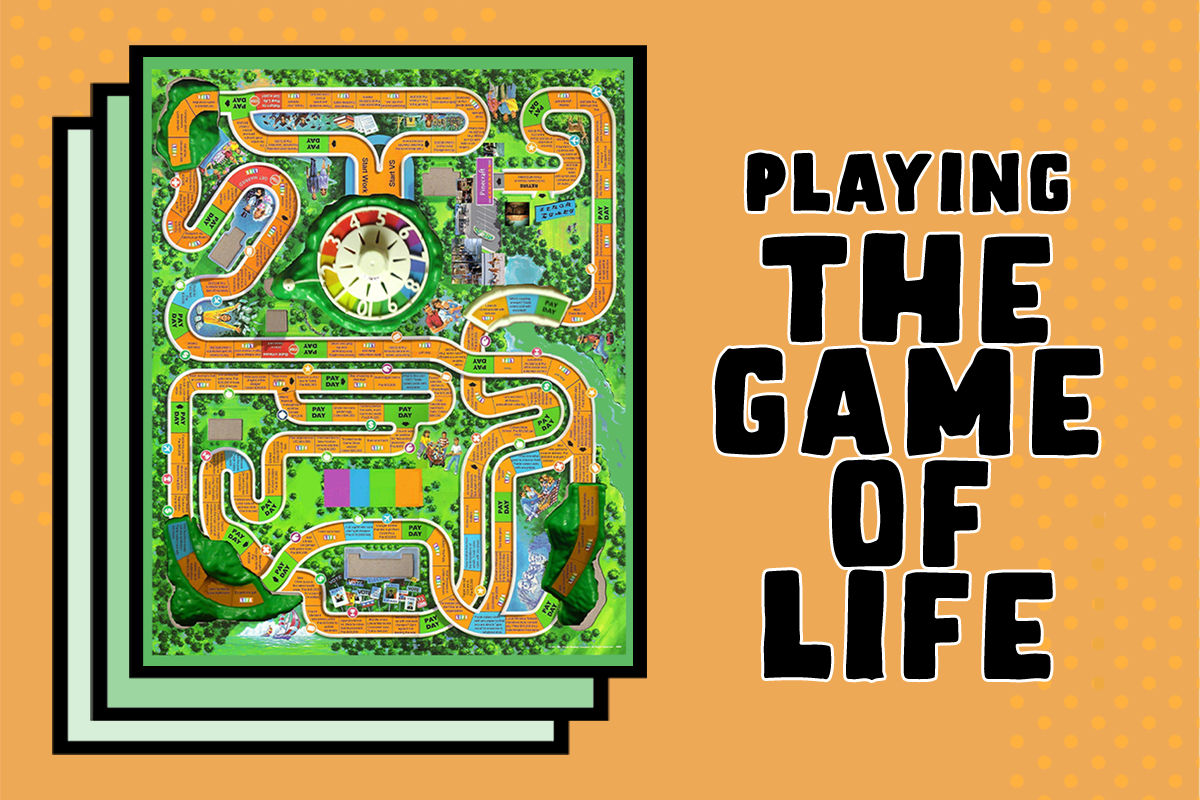
This is the third in our 'Power of Play' series of reflections by students from a Philadelphia-area high school. For extra credit in their sophomore English class, a few students shared their thoughts on questions such as, "How do games help you deal with life? What games are meaningful to you and how do they help you better understand yourself or the world? How do games help you question the way things are in the world?" To protect their privacy, their reflections are shared with initials rather than full names.
The Game of Life is Not a Game at All
E.S., High School Student, Philadelphia, PA
My name is E.S. I am a 16-year-old male from Philadelphia. Games changed my life. Growing up, all I did was play games with my friends and family, whether it was video games, board games, or even a card game. There was one game that I played that really did change my life. It was called The Game of Life.
This was always my favorite game to play because I always thought that life would be as easy as it was in that game. Spin a wheel, move forward, get a car, get cash, and have a family. But I learned it is not that easy. I learned I cannot just spin a wheel and move forward in life. I cannot just keep on moving forward space after space because that is not reality. I cannot land on a space and earn cash or choose the career path or the college path because life is not that simple.
I learned that if I want a career I have to work hard to get it. If I want to go to college I have to go through all of the stages that come before it in order to get there. If I want to make money I have to work hard for it. This game taught me that nothing in life is ever just handed down to you. It has to be earned through hard work and dedication.
Another thing is family. In this game, there are spaces you can land on that allow you to get married and have children. What this game doesn't show us are the struggles many people face. What this game doesn't show us is how hard it can be to find real love in the world. It doesn't show us how hard raising a kid can be. Another space on the board is to buy a house, but again, this game doesn't show us the struggles many people face when it comes to moving out or finding your own home.
In reality, you cannot just spin the wheel and hope to get the highest number. "The Game of Life" is a representation of a false reality, a utopia, and all the good things in life, but it doesn't show us all the struggles you have to go through to get to those coveted spaces. It doesn't show us how the more we try to move forward, the more we get held back. It doesn't show us all the pain and suffering that comes with life. It does not show us how life is not a game.
Happiness is hard to find in the real world and I learned that the hard way. "The Game of Life" was the life I grew up always wanting, but I realized that what I want in life is to succeed the right way. No loopholes, no handouts. I want to make it through life knowing I earned it. This game changed my life but it changed it for the better.
Urban Assembly Students Create COVID-19 Choose-Your-Own-Adventure Story
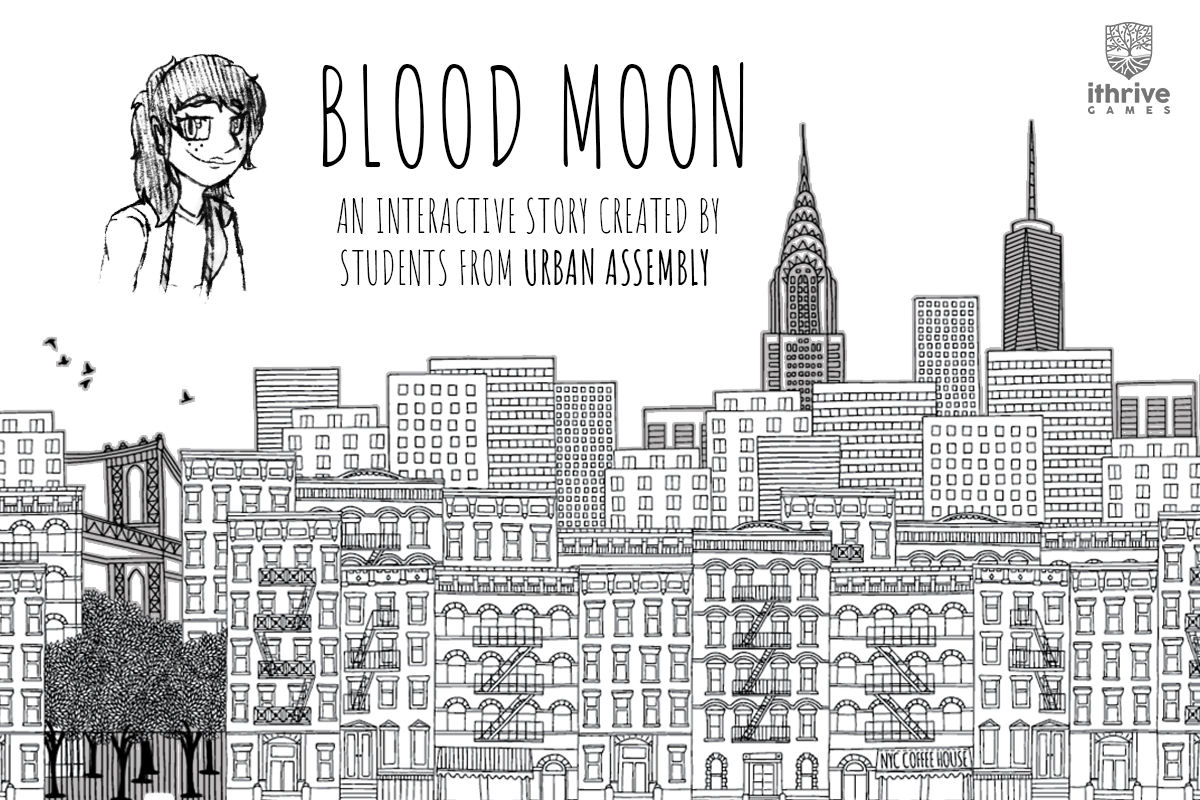
This spring, a cohort of high school students from Urban Assembly joined iThrive staff online for a design thinking and social and emotional learning co-design experience. The virtual Game Design Studio engaged teens in self-reflection, creativity, and systems thinking using the framework of game design. Over the course of six sessions, the students brainstormed ideas for a game that would share the perspective of teens living through the COVID-19 pandemic.
The end result was an interactive story game called Blood Moon. Choose your own adventure and play the game here. The main character is Brooklyn teen Artemis, who wakes up from a long nap during the COVID-19 shelter-in-place orders. Her parents, hospital workers across town in Manhattan, should have returned from their shift by now. Where are they? Artemis must strike out of quarantine and into the streets of New York in search of her parents. Along the way she encounters helpers on her journey, runs into trouble both with the law and the locals, and even meets a super-sleuth delivery dog named Issac who won't leave her side until she is safely reunited with her family.
In order to track down her missing parents she will have to use all the tools in her social and emotional toolbox—she'll need self-management and self-awareness to keep herself strong, while her social awareness, relationship skills, and responsible decision-making will help her make connections and collaborate to solve the mystery.
Art Imitates Life
Early on in the development of this interactive story, the students wanted to create characters that reflected their world. There's Artemis, Ari for short, brave, and bold like the hunter for which she is named. This young Latinx powerhouse has a huge heart and the power of empathy, turning connections into relationships when she can, and setting healthy boundaries when she needs to.
Ari meets Issac, a dog just as scrappy as she is. As a delivery dog for DoggoPrime, Issac knows how to get around the city, and he has a few tricks—and treats—tucked away in his knapsack to keep himself and Artemis on the trail of finding a family. He might just find a new family, too.
There's also Apollo, Ari's brother, who is the leader of the pack in their neighborhood and is just as bold as his sister. But while Ari looks for Mom and Dad, Apollo has a different journey to keep the city safe. He'll just have to keep everyone from thinking he is on the wrong side, including his sister Ari and that little mutt following her everywhere.
Other characters featured in the interactive story include Frank, the owner of a hot dog kiosk near the train station, who has seen it all, and knows Ari and Apollo are in more trouble than they know; Laura, Frank's sister, who is a master procurer who may or may not be able to help Ari find her parents but doesn't intend to stop trying; Captain Max, an officer who is here to make sure everyone shelters in place, but is starting to wonder if he is on the right side, or if he is quarantined from the truth; and Timmy, who lost his mind to COVID, is looking for family, and believes that helping Ari find her parents can help him back to himself.
Game Mechanics
Blood Moon is a branching narrative Twine game that can be played alone or with a group. The Urban Assembly students, who met via Zoom, wanted to create a game that teens could play by reading the interactive story together in Twine and then talking through the best ways for Artemis to make her way across the city by drawing on her social and emotional skills.
Students can debate Artemis' choices, and think about the ways that they use social and emotional skills in their own lives with friends and family. Blood Moon is text based and includes prompts for discussion, asking young people to talk about each of the social and emotional skills and learning.
Social and Emotional Learning
The interactive story applies social and emotional skills to the troubles teens face maintaining relationships during COVID, navigating family ties in stressful times, and managing the social upheaval of this year. Talking together provides teens with space to learn together and to practice the tools that will help save Artemis. In practicing those tools, the social and emotional skills are there for them when the game is over.
Visit the For Teens, By Teens page of our website to check out this interactive story game and other games created during iThrive's game design sessions with teens.
This work was supported through generous funding from the William T. Grant Foundation and the D.N. Batten Foundation.
Power of Play: Tackling First-Day Jitters With a Game of CNUNO
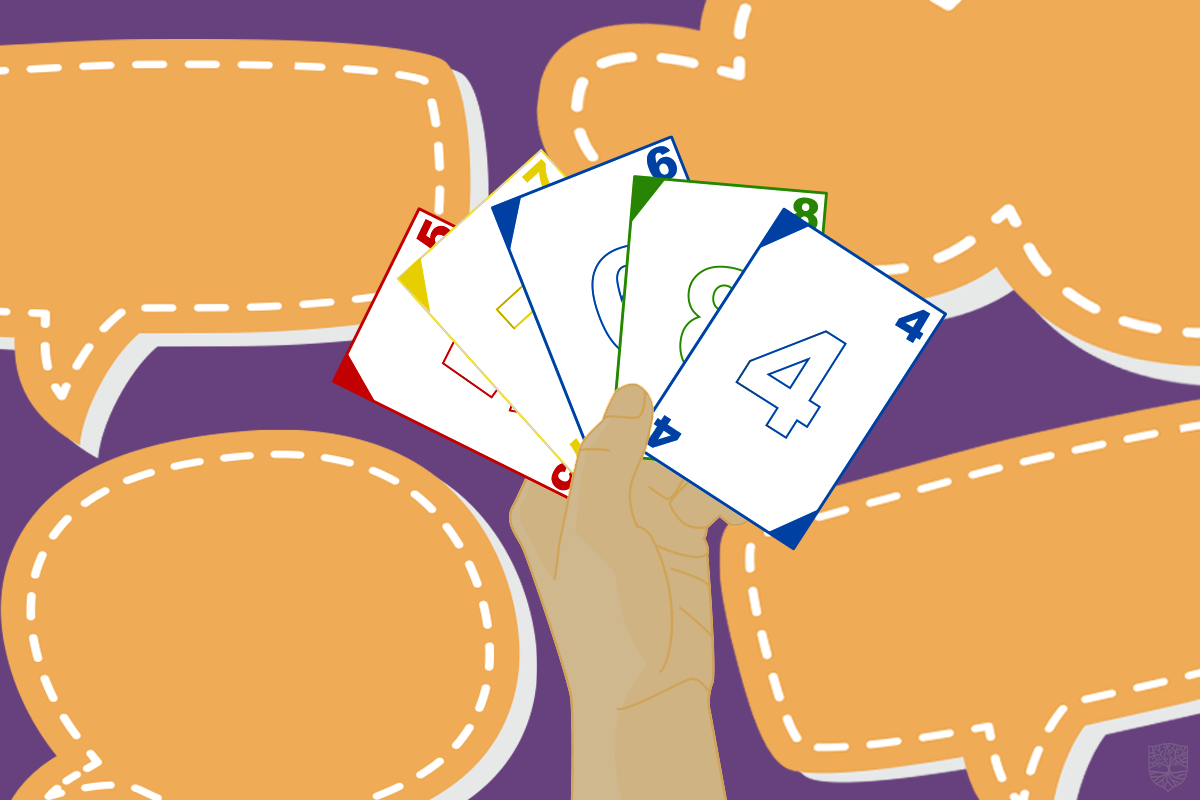
For many young people, games are more than play. Games provide a place to connect, a place to explore, and a place to learn. At iThrive Games Foundation, we have seen firsthand how gameplay can support teens in thriving, whether it's in the classroom or amongst friends playing together online.
We asked teens from a high school in Philadelphia to share a bit about their experiences with games. For extra credit in their sophomore English class, a few students shared their thoughts on questions such as, "How do games help you deal with life? What games are meaningful to you and how do they help you better understand yourself or the world? How do games help you question the way things are in the world?"
Over the next few weeks, we'll share their insights on play, from video games to card and board games. To protect their privacy, their reflections will be shared with initials rather than full names. We hope these stories illuminate the power of gameplay as seen through the eyes of these young people.
The following blog post is a submission we received from a teen sharing a story of what gameplay can do in their own words:
Gaming for Anxiety
E.M., High School Student, Philadelphia, PA
I started my first job at the beginning of sophomore year. I started working with my best friend and a girl I had never met. Our boss got us a card game called CNUNO. It is a knockoff version of UNO. We played it almost every day if there were no kids who needed homework help.
We laughed constantly and it made it easier to get to know my co-worker. It is hard to get to know people, especially for me. I deal with social anxiety and it can get really bad in new places with new people. CNUNO was our icebreaker. Since I was at work, I did not have a choice on whether I really felt comfortable or even wanted to get to know my co-worker. Luckily, she did not turn out half bad! We are good friends now.
I do not know why I get anxious about meeting new people, but it always helps if there is something to help with the awkward first few minutes. It is hard for me most times in any situation where I have to introduce myself. Icebreakers at school are a cause of panic for me. School presentations as well. When there is not a support system to lean on, it is so hard. Some people do not understand what it is like for me. When people force me to put myself in an uncomfortable position, they do not see the panic it causes.
CNUNO helped make an uncomfortable situation easy. I should never underestimate the strength that something so small has. It can help beyond belief and I am glad the game was there for me.
Have a story to share about games and what they mean to you? Share it with us here!
Power of Play: Teens Explore Connection and Meaning Through Gameplay
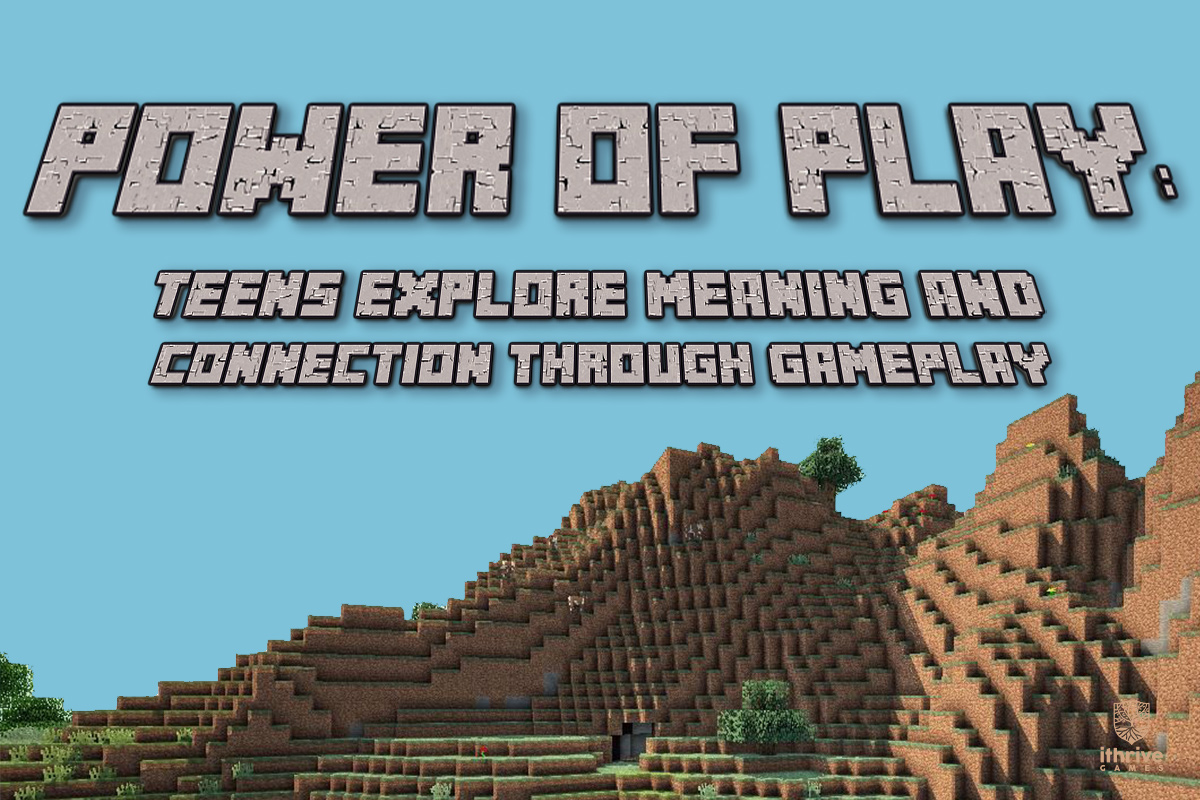
For many young people, games are more than play. Games provide a place to connect, a place to explore, and a place to learn. At iThrive Games Foundation, we have seen firsthand how gameplay can support teens in thriving, whether it's in the classroom or amongst friends playing together online.
Earlier this year, we asked teens from a high school in Philadelphia to share a bit about their experiences with games. For extra credit in their sophomore English class, a few students wrote thought pieces in response to questions such as, "How do games help you deal with life? What games are meaningful to you and how do they help you better understand yourself or the world? How do games help you question the way things are in the world?"
Over the next few months, we'll share their insights on play, from video games to card and board games. The pieces are in their own words. To protect their privacy, their reflections will be shared with initials rather than full names. We hope these stories illuminate the power of gameplay as seen through the eyes of these young people.
Minecraft: A Life of Blocks
F.T. High School Student, Philadelphia
My name is F.T. and currently, I am 16 years old. I was born in New York but raised in Puerto Rico, which means I have the privilege of being bilingual. Normally I have a difficult time communicating with my family and that leads me to play video games all of the time. Recently, I returned to playing Minecraft, which is a game that I always have in mind. It is peaceful and relaxing to play, and I don't even notice when I lose track of time. Minecraft has been with me since childhood even though back then I could not understand the concepts behind the game.
Minecraft has taught me the basic things in life. It has taught me how to survive. Who would have thought that I would be passionate about having a farm-taking care of my pigs, llamas, horses, chickens, wolves, cows, cats, donkeys, parrots, and even sheep?! This game takes me out of my reality and allows me to build my own reality where there is no cruelty. It teaches me to think about the environment and how it depends on me and how I depend on the environment. Minecraft is not just about building-it has more than that. At least for me, it forces me to take into consideration the resources, environment, and build of the house itself.
The game itself is composed of blocks that the user can mine and reuse to create new material. If certain materials are combined, the user can get a new thing to build with. My favorite part is the views of the world players can get. Since I do not travel, I do enjoy the views. It shows a little window of the massive world that is called the Universe. Another thing Minecraft helps me do is to think outside of the box and create materials with resources I never thought of using.
Minecraft helps me to cope with the bad events that occur in my days and takes my stress out.
Super Mario Maker 2: No Limits
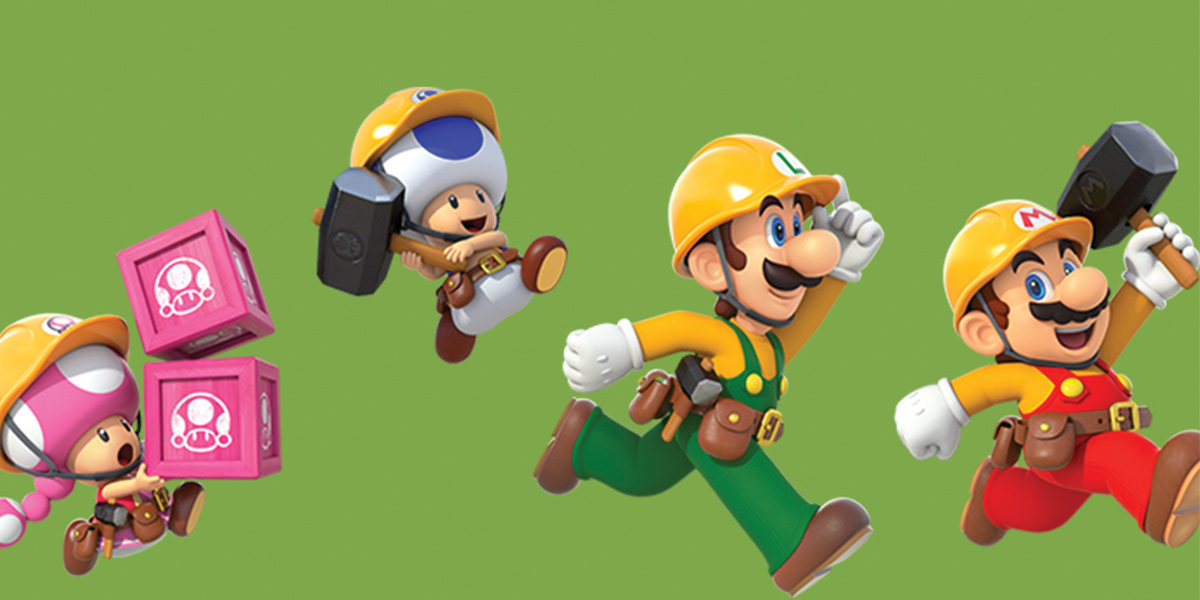
Late last June, the sequel to the beloved Super Mario Maker for the Wii U was released, bringing players back into a vast playground to fulfill their game design dreams. Taking inspiration from the story mode and other player's creations, players set their minds to crafting levels that suit their wildest dreams and astound those who would wish to participate.
While I was unable to play the first game, I was relatively familiar with the system because I spent quite some time watching playthroughs when it first came out. I was in awe of the innovating level design so when the second version came out, I wanted to play and maybe even create something myself someday. Surrounded by brilliant creations, my personal journey into this realm was preceded by a vague hope of creating levels that were just as perfect and fun as those done by the best. Soon enough, I clicked in the Super Mario Maker 2 cartridge and booted up the maker.
I was not the best.
I assumed my first levels wouldn't be the greatest, but I didn't realize just how difficult it was to grasp concepts that seemed intuitive to my peers. I was convinced that I could immediately jump in with mega cohesive levels that taught the player as they went and left them challenged but not cheated. However, all I was left with was a blank canvas, the saccharine blue sky taunting me from the other side of the screen.
After two days, all I did was erase and replace; erase and replace. How could I put anything out there if it's not the best I can do? Every choice was followed by me questioning if it was cheatable or too hard or too easy, and I couldn't bring myself to test it on others for fear of showing my work.
I was not the best at looking at the situation clearly.
After wallowing in my own perceived insufficiencies, I caught wind that one of the many Super Mario Maker 2 level creators crafted a stage based off of Touhou, a bullet hell game which while complex and hard to design, is structurally very different from a Mario game. It didn't fit the mold that I was forcing myself to conform to, but it was an incredible feat of effort. It was then that I realized I may have been missing the point.
Super Mario Maker isn't about making the best level, it's about making your best level and improving your own game design skills over time. I had lost sight of what the freedom of Super Mario Maker meant, which was to design as you pleased. No one's first level will turn out perfect, and if it's not from your own imagination, then what's the point?
Eventually, I booted up the game again, discovered you could take Lakitus off of their clouds and burnt an hour making something I enjoyed making. Messing around by flying across the screen just felt right at the time, so I tried to make something that would let me do that many times. Was it perfect? No. Was it good? Probably. But now I think I'm ready to give it to someone for comment so I can learn from my mistakes and use them to make the next level that much better.

Eleanor Mather is a 17-year-old high school senior at Horace Mann High School in Bronx, New York. She has enjoyed playing games since playing Pokémon Platinum with her brother and friends and has grown to love discussing and developing them in the past years. She is very excited to contribute her thoughts to the conversation on games as a medium and hopes to encourage others to join in.
This year at SXSW Edu in Austin, Texas, we'll be presenting a panel discussion entitled, Teens as Changemakers: SEL Through Game Design, where we'll share insights on the social and emotional learning opportunities that games and game design offer for teens. To learn more about the power of constructionist games like Super Mario Maker 2, check out this blog post written by our SXSW Edu co-presenter Matthew Farber.
Animal Crossing: An Example In and Out of Game

Last Tuesday, fans of the popular Animal Crossing series had their thirst for news of a new game quenched with the announcement of Animal Crossing: New Horizons at E3. While many were disappointed with the fact that the game would be delayed to March 2020, reactions made a shift to the positive once it was announced that this decision was made for the sake of the game developers and the lives they had outside of work.
It was extremely heartening to see fans reacting positively to the announcement, but looking back it makes perfect sense given how Animal Crossing portrays work in its gameplay. For those who are unfamiliar with the game, the Animal Crossing series is a real-time town simulator in which you take part in a small community. The more the player participates, the more your town grows. More recent installments have put the development of the town farther in the hands of the player, going as far as making them the mayor (and allowing them to directly choose where and when their town develops certain amenities through Public Works Projects) but the message has remained fundamentally the same: taking things your own way.
While this message may come across as letting the player slack off, Animal Crossing's freedom comes with constructive goals that demonstrate how you can be both productive and content with yourself. Whether it's through collecting fruit, catching bugs or fish, or interacting with fellow villagers, the player can make progress to become better at their preferred activity in the game which in turn can help the quality of life in the town. Players can contribute at their own pace towards what they want to accomplish without fear of being punished for not meeting arbitrary deadlines or completing certain tasks 'out of order'.
Speaking from personal experience, this approach to work in a game, fortunately, came to me during critical periods of my life. I briefly played Wild World, the second game in the series when I was 7, but I began to appreciate the series' structure when New Leaf came out the summer before 8th grade. My friends and I started our games around the same time, so we were able to recount our experiences opening new shops and placing new Public Works Projects - we even set up weekly Saturday visits to each other's towns to see the fruits of each other's efforts. We all had different approaches, some of us tried to pay off our home loans quickly while others carefully planned out their next landmark so their village could come closer to their personal aesthetic. We worked hard, but it was for our own progress and fun as opposed to the expectations of those around us.
When school began that year my friends and I stopped playing consistently - work and school activities (and applying to a new school in my case) taking up much of our time. Revisiting the game in high school felt completely out of the question, as adjusting to a new community and maintaining my grades became a top priority. However, this September I had the chance to settle back into the Animal Crossing routine when a group of friends who had also long abandoned the game wanted to recapture the feeling of freedom in their work. On a late evening, we all began new lives in new towns, and I don't think I ever appreciated the game more than during the following school year.
While I took great pride in all of my schoolwork during this period, Junior year meant that everyone felt the pressure of college riding on every activity. Things that were once done for personal improvement were often talked about in the hallways in terms of how they could be leveraged for applications, and I saw how those around me spoke less and less about how they enjoyed the material and more and more about how stressed they were about their next test grade. Animal Crossing was such a wonderful reminder of just how fun working towards something can be if the core motivation comes from within. Being the mayor for even 20-minute periods during times I would designate myself a break would show me what I almost missed amidst school routine. This mindset eventually leaked into my attitude about my homework and extracurriculars, and I found myself enjoying my activities more authentically than before.
Seeing the lessons I was taught by Animal Crossing being practiced by those in charge renews my faith that I can continue to find work that I take personal fulfillment from after my high school career. Progress doesn't stop at me, however, and I hope to use Animal Crossing's example and become a positive influence on my peers as well.
Check out our Curated Games Catalog for other games that feature mechanics, narratives, and other elements identified by players, professional game developers, game scholars, educators, and scientists that are supportive of teen thriving and development.

Eleanor Mather is a 17-year-old rising senior currently attending Horace Mann High School in the Bronx. She has enjoyed playing games since playing Pokémon Platinum with her brother and friends and has grown to love discussing and developing them in the past years. She is very excited to contribute her thoughts to the conversation on games as a medium and hopes to encourage others to join in.
Persona and The Unintended Influence of Game Design

Recently, I was introduced to the idea of ancient games and their purpose of training in society. In Egypt, many people played Senet in hopes that they could successfully move through the underworld, and in Greece, many soldiers played war games to ensure that their generals could practice delegating before heading into battle. While these games were also played for fun (particularly Senet, which apparently began as a more recreational game before religious themes came into it), there is a distinct societal purpose behind their creation and play. At first, the idea of games created for an explicit purpose in modern society was relatively novel to me. Then I remembered Persona.
In the spring of 6th grade, I had ventured into the world of the Persona franchise when I learned of Persona 4 Golden. At the time, it was an incredibly well-received game known for its balance between social gameplay and dungeon crawling. On some days the player could work on improving the protagonist's technical and social skills, while on others they could fight through the "Midnight Channel," saving kidnapped victims from their own repressed emotions. When I was first introduced to this game, its theme was very new to me. I was excited to look at myself differently, much like the game encouraged its own characters to and in this way, I was introduced to a more overt way that games instill behavior through example and storytelling.
After uncovering the first story arc in Persona 4 Golden, I began to look at my actions more carefully — did I do something nice for someone else's benefit or my own? Did I really need to say something hurtful to get my point across? These questions almost felt like training to become a better person - while they had often come into play during my normal life before Persona 4 Golden, seeing the characters dealing with the intentions behind their actions forced me to look at mine. I eventually realized that Persona isn't the only franchise that does this either. When I was younger I took extra care to be conscientious of pets after playing Pokémon, and much more recently the discussions old friends of mine had about Undertale brought up topics like pacifism and not going about a situation aggressively by default.
Players are affected by games in a way that is unique from other art forms given the fact that they step into the shoes of the (very often silent) protagonist and experience the world crafted by the developer. However, I hadn't often considered just how deliberate the messages could be when playing games. Of course, since developers are human, their messages are certainly not perfect. Despite still being well-received, Persona 4 has faced some criticism for its handling of certain topics that have raised questions about whether they mishandled their themes in some character interactions. Even a game that executes its themes very well can have blips in its portrayal — meaning, taking everything at face value could cause a player to adopt some of the biases the developers had when creating the game.
While creating for the sake of instilling specific behaviors can be channeled for good, even the most well-intentioned person can share their biases instead of goodwill through their art. By considering games as one of the many tools for catalyzing change, we need to take extra care to not get completely caught up in the views of the not-so-silent protagonist.
 Eleanor Mather is a 17-year-old rising senior currently attending Horace Mann High School in the Bronx. She has enjoyed playing games since playing Pokémon Platinum with her brother and friends and has grown to love discussing and developing them in the past years. She is very excited to contribute her thoughts to the conversation on games as a medium and hopes to encourage others to join in.
Eleanor Mather is a 17-year-old rising senior currently attending Horace Mann High School in the Bronx. She has enjoyed playing games since playing Pokémon Platinum with her brother and friends and has grown to love discussing and developing them in the past years. She is very excited to contribute her thoughts to the conversation on games as a medium and hopes to encourage others to join in. "
Octopath Traveler and Helping Others

In my experience playing Octopath Traveler, there is little that is more motivating than the camaraderie of a group. Games provide many examples of different team dynamics, with many RPGs telling a story in which the protagonist gathers party members to achieve a common goal. While different characters may have varied motivations to join the party, the said goal is usually (ultimately) what keeps the group together. Unfortunately, this can lead to the assumption that the common wish is the main reason the team supports each other, as opposed to having a bond.
I have been playing Octopath Traveler and noticed it subverts this trope through a format that at first I thought was only set up by necessity. The game has eight protagonists with their own story that the player can play through in any order, switching through their party of four depending on which character best suits the situation. Each character has their own individual goals with different levels of seriousness, from Tressa's desire to explore the world to Primrose's wish to avenge her father's murder. Despite their varied wishes and destinations, whenever you encounter another potential party member and hear their story, there's no other obstacle to joining them - in fact, the characters hardly acknowledge it.
To be completely honest, I was initially wary of this decision. I was very used to seeing characters become united by a common goal and was concerned that the absence of a specific reason for the characters to join each other would make the story feel flat and less worth putting time into. While at first, this came across to me like the Octopath Traveler designers not being able to fit in cohesive dialogue for every possible combination of collecting party members, it slowly began to take another form as I continued the journey.
Characters in Octopath Traveler go through major story beats that have to do with their individual journey alone (only they are present in cutscenes), but once you have more than one character in your party there's a chance that they will interact with each other through "party banter," in which they'll learn something new about the other, give advice, or simply talk about what had just occurred. These are almost always a fun read, and I found myself switching out party members during each chapter to try and "collect them all." However, this collection slowly became a legitimate investment as I began to take note of team dynamics and look forward to specific combinations - Tressa's sincerity contrasted with Therion's jaded attitude is a particular favorite of mine. The focus is fully on the relationship between the two characters and the topic at hand. At this point, I began to realize that there was an explanation for why the characters were interacting within the story. It was simple: they helped because they wanted to despite their individual goals.
This concept is also incorporated into how some of the game's side quests have characters that appear in different locations on the map as you help them, giving an idea that they are on their own journeys as well. A weave of interconnected journeys in which people who lead them lend a helping hand is made clear to the player as they find new towns and revisit old ones.
While this isn't a revolutionary concept, it was very refreshing to see it pan out. In real life, most people have very different goals in mind for their futures, even if they work together. The idealized bond between party members that Octopath Traveler fosters is a wonderful ideal that could be applied to many situations, but seeing this ideal applied to more everyday societal structures have shown me that helping someone else doesn't need to be extraordinary.

Eleanor Mather is a 17-year-old rising senior currently attending Horace Mann High School in the Bronx. She has enjoyed playing games since playing Pokémon Platinum with her brother and friends and has grown to love discussing and developing them in the past years. She is very excited to contribute her thoughts to the conversation on games as a medium and hopes to encourage others to join in.
Tabletop RPGs and Learning to Live with Failure
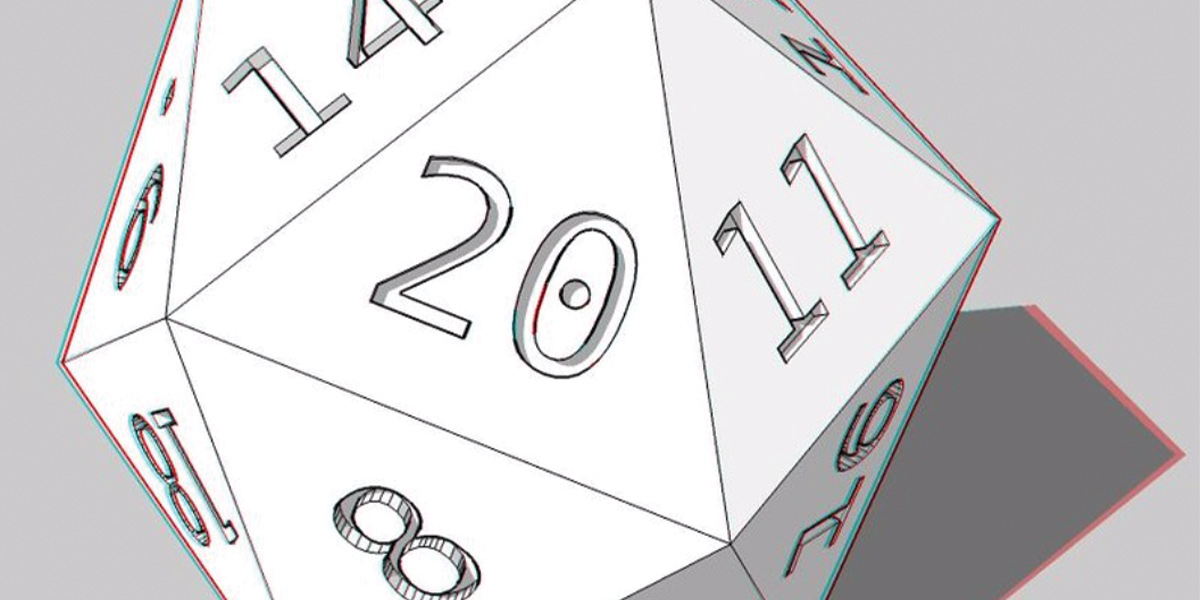
If I can be completely honest, I used to be and I still am not the best at boss fights. In platformers, I squirm at difficult timing or a misplaced jump that resets the entire fight, and in RPGs, I repeatedly forget to stock up on healing items before a difficult battle. Fortunately for me, I can avoid these pitfalls and start again rather easily by resetting my game. I can tell when a jump will land me a game over and reset to avoid the depressing trumpet and sad animations, and thanks to multiple save files I can easily go back to a shop and return to the battle thoroughly prepared. This was all through existing aspects of the game's console, so it never felt like cheating. When I was introduced to tabletop RPGs, I was looking forward to taking on an indestructible persona that I was used to in many games that I had played at the time. My first roll was a 1.

Flicker - D20, Anaglyph
The D20 has become a ubiquitous symbol of many tabletop games (namely D&D), deciding the fates of many players when making character checks to see if they can succeed to the extent that the player imagines. Unlike in many video games that I have played, the dice role is irreversible under most circumstances. In hindsight, of course, it is. The GM's goal is to create a believable world for their players to interact with, and if one's character was able to avoid challenge or failure at every turn, then there would be little to no stakes. In time, I found just how much more gratifying this format is compared to my old habits.
With the 'failure' of one plan comes the opportunity for another plan to flourish. My character may have failed to talk up an opponent and convince them to drop their weapons, but the rest of the party can take advantage of the situation and make the opponent get one of them stuck in a wall and prepare a counterattack. When you're in an environment where you can fail, you're given a chance to see that there are more solutions to be found. And in some cases, the recovery can lead to a more promising conclusion.
Practicing 'failure' through my tabletop RPG adventures has helped me in my real-life adventures as well. Seeing a mishap as an opportunity to see a different path makes life events much less daunting; there is not necessarily a 'point of no return' to run from, and even a terrible situation can be turned into something neutral, or maybe even positive.
I used to recoil more often at the thought of rainy days in the summer; much of the joy I get from the season is from being outdoors, and a few droplets felt like time wasted. Strangely enough, the pitter-patter of the droplets is not only perfect for reading, but for setting the tone during a tabletop RPG as well. What a perfect unexpected mishap, a catalyst to learn more through the fictional dungeons, villains, and perhaps even airship crashes created by a GM's hand.

Eleanor Mather is a 17-year-old rising senior currently attending Horace Mann High School in the Bronx. She has enjoyed playing games since playing Pokémon Platinum with her brother and friends and has grown to love discussing and developing them in the past years. She is very excited to contribute her thoughts to the conversation on games as a medium and hopes to encourage others to join in.
Meet Our New Teen Blogger!

The iThrive Games Foundation prepares teens to thrive by meeting them where they are and working in partnership towards a world where all have the voice, choice, and agency to reach their full potential.
We are thrilled to introduce you to our latest teen blogger, Eleanor Mather, a senior from New York. She has enjoyed playing games since playing Pokémon Platinum with her brother and friends and has grown to love discussing and developing them in the past years. She is very excited to contribute her thoughts to the conversation on games as a medium and hopes to encourage others to join in. Before we share her first blog about tabletop role-playing games and learning to live with failure, we asked her to answer a few questions.
What is the first game you played?
It's hard to remember the exact game I played for the first time, but if those old Leapster games for learning count those would technically be the first. However, the first game I played for purely recreational purposes on my own would probably be Nintendogs which came with my DS when I was around 5 or 6.
Why do you enjoy playing games?
Games are a wonderful way to immerse yourself into a context separate from your own, and I tend to find myself learning much about both myself and gain new perspectives on how other people live through playing them. The fact that the structure of many game genres lends to more personalized experiences means that discussions on them can go into many places depending on who is part of the conversation, so there is always something new to discover. It doesn't hurt that they are almost always fun as well.
How do games fit into your everyday life?
Despite the fact that I've lost some free time as I have become older, I try to find time to play games for brief periods at home to relax and enjoy some time to myself before returning to the chaos of daily life.
Do any teachers at your school (past or present) use games in the classroom? If so, what did you enjoy about that class? If not, why do you think classrooms can benefit from curricular units that surround gameplay?
While none of my teachers have implemented games into the classroom, I think many classes-particularly those involving analysis-would benefit. Since how someone plays a game is dependent on how they approach things as an individual, students could more easily incorporate self-reflection into the curriculum when they describe the message the game was trying to portray.
What are some of your favorite games to play right now?
Animal Crossing New Leaf has become a staple of my daily routine, and Splatoon 2 is a great team-based game. I'm steadily trying my best to catch up on Octopath Traveler and Persona 5 as well.
How do games help you?
A lot of the ways games help me are tied to why I enjoy them. Not only have games let me explore various personas and think about new perspectives, but they've also let me find friends who are interested in sharing what they've found through the same or other games. Games are also often an environment in which I can work on something for myself without being influenced by the expectations of others.
If you know a teen who would be interested in writing about how games are a part of their life, have them email sierra.martinez@ithrivegames.org.
Friendly Competition: Starting an eSports League at My High School
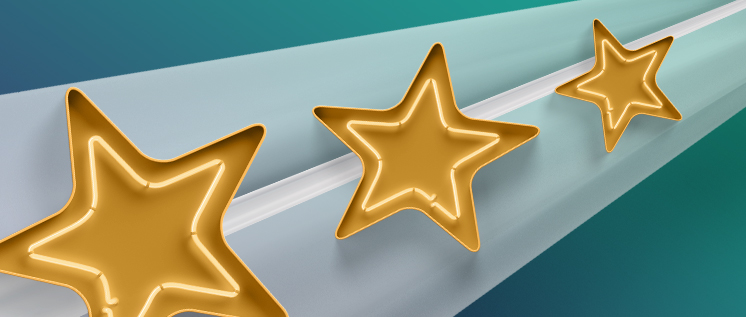
It's do or die. I'm in the loser's bracket quarter finals. After a defeat to THUNDER, Ontario's third best Super Smash Bros 4 player, I move to the losers bracket to face s0rry. I've never heard of s0rry but I never underestimate a new opponent. After several nail-biting moments, the score is knotted at two wins apiece. The dying seconds of game five approach and I know I'm at a disadvantage. I struggle to distance myself from my opponent and with one flick of the thumbstick, I'm out of the tournament. While I feel a bitter defeat, this loss only ignites my desire to win the next game. At home that night, I turn on my Wii U and start to grind.
My interest in eSports began at a very rudimentary level, before I knew it existed. Little did I suspect that one day I would start my own league. My brothers and I would gather around our TV, the old-school one that had the slot for VHS tapes, and fight to the death on a variety of Nintendo consoles. Mario Kart (rated 6+ years), Goldeneye (rated 13+ years), and Mario Party (rated 8+ years) all brought out my competitive spirit. I always wanted to finish in first place. I'm not sure where this fire came from, but the thrill had me hooked.
I'd owned a few Call of Duty (rated 18+ years) games in the past, a first person shooter series in which teams compete to eliminate an enemy team and, in some cases, control an "objective" like capturing flags or securing building locations. I had always been below mediocre. Somewhere between laughable and horrible. In 2016, Call of Duty Black Ops III (rated 18+ years) was released and I actually became really good. My stats tripled, and I was boasting some impressive numbers. Initially, I didn't quite realize that I was excellent at the game, but when it finally sunk in I felt this moment of excitement and desire to play more. This development led me to establish my own eSports team, Onyx eSports, after connecting with people who matched my skill level.

Author (middle) and the two friends who helped him start the eSports league dressed as Luigi, Mario, and Wario for Halloween. Image: Author
After many tournament wins and climbing North American ranks, I developed a passion. Every gun fight I won, every clutch situation that went my way, made me feel unstoppable. I would daydream about eSports, replaying scenarios in my head of flanking enemy lines and memorizing capture point rotations. I would nerd out thinking about the game, and when competition crossed my mind I got excited. I loved it.
In my junior year I was offered a spot to run the Gamers Union club at my school, which was fun, but I felt like we could do more. Lightbulb. Let's feature eSports in the club! Around the same time I transitioned between playing Call of Duty at a professional level to playing Super Smash Bros 4. Super Smash Bros (rated 11+ years) is a Nintendo fighting game series where characters from a variety of different games duke it out in whacky combat. When Smash Bros was featured in the club it was always a big hit and, with my newfound love for the game, I knew that I would have no trouble using my passion to turn my idea of eSports in schools into a reality.
When I first announced it in assembly, this idea was met with laughter, primarily from staff. Frankly, I didn't blame them. My school had never been exposed to eSports and the idea might seem outlandish to the staff members who did not grow up playing video games or watching Twitch streams. That said, students were excited and the club's attendance tripled as a result. Several months went by. The Super Smash Bros Tournament had ended and it appeared that people were now on board with the idea. We packed a lunch hall with almost every student to witness the final match. It was breathtaking, and this tournament was just the beginning.

The thrill of a good challenge is written on students' faces at a league competition at Royal St. George's College for boys, Toronto, Canada. Image: Author
After the success of the league, I joined forces with two friends who participated in our first eSports tournament to create something big: the Coalition of Independent Schools eSports League. Our goal was not just to bring people together for friendly competition, but to compete against other schools. We marketed the idea to other schools and within a few months, the league was born.
From my experience operating these leagues over the past two years I now understand the profound impact that eSports has had on me and those who participated. I have always been a competitive person. But eSports is unlike any competitive energy I have ever experienced. There's something about the thrill of winning and the enraging feeling of losing that makes me push myself. This mindset of resilience has improved not only my gameplay, but my academic life, as I have seen a noticeable change in my work ethic over the past three years. My average has climbed up 10 points since I started competing, and I have no doubt that the mindset I carry with me to my everyday life is a contributing factor.
The beauty of eSports is that it is all you need to get started are a set of hands and a brain. I've seen a range of people compete, from those who have never touched a controller to those who have played games for years. eSports is a space where anyone can participate and succeed. You do not need to be an athlete or mathematician and that is a core strength of eSports.
In addition, I have seen some tremendous friendships grow from these friendly competitions. In my athletic career, I never made friends with my opponents unless I knew them from some other part of my life. Our eSports competitions are different. During downtime between matches the room is full of smiling, camaraderie, and laughter. I have known many quiet players who don't normally assert themselves in social situations flourish into charismatic people. The social connection that I have seen come out of eSports is something special and rare in other arenas of competition.
I believe this league is the start of something big. It was a relatively challenging task to get the league off its feet but I'm certain that it will continue to grow in popularity over time. The mindset that I have gained from my experience competing has a positive impact on my work ethic and who I am as a person. The number of people I have seen flourish, from the quiet types to the social butterflies, is vast. You give a gamer a game and they'll play it. You give a gamer an opponent and now they have something to play for.
__________
About the Author

Michael Vassos is a student from Toronto, Ontario, currently enrolled to study Media, Information and Technoculture at the University of Western Ontario this fall, with early admission into the Richard Ivey School of Business. Michael's interest in video games has led him to a passion for eSports. He has participated in over 20 professional level tournaments under the name "KnucklesUp" for the game Super Smash Bros for Wii U. His best result is a fourth-place finish at No Chill Gaming Tournaments on July 15th, 2018. Aside from gaming, Michael enjoys creating artwork through photoshop, camping, politics, and cooking on the barbeque.
Wallop! You Died (Again): Growth Mindset and Cuphead
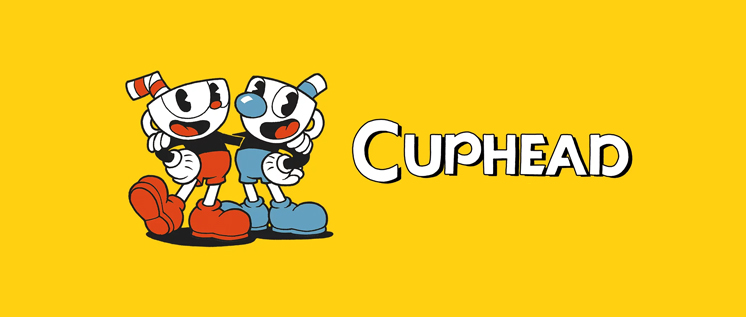

My favorite game right now is Cuphead (rated 10+ years), released this year by Studio MDHR on Xbox and Windows. A lot of the Let's Play videos for Cuphead on YouTube (like this one by Markiplier, one of my favorite YouTubers) are hilarious because they show a lot of people failing. It is a super difficult game, but the designers make it really fun to fail. The premise is that there's this cute little dude whose head for whatever reason is a coffee cup, and he has a bendy straw that bounces adorably while he runs around. Cuphead and his brother, Mugman (whose head, naturally, is a mug) accidentally lost their souls to the devil while gambling at a casino. In order to get their souls back from King Dice, the evil casino manager, they have to bring in the soul contracts of all the other characters who also lost their souls in that casino.


Thriving Teens Use Their Superpowers

DISCOVERING AND USING STRENGTHS IS A PATH TO TEEN THRIVING.
Teens have superpowers. Need evidence?
Consider Malala Yousafzai. At just 15, she defied the Taliban by insisting on her (and all girls') right to go to school. The Taliban shot her in the head, and she survived. Then, she strode right back into the classroom and the public eye to promote equal access to education for all. At 17, she became the youngest Nobel Peace Prize winner ever. Her superpowers: bravery, a thirst for learning, perseverance, and a passion for justice.
Malala's superpowers are on display for the world to see. But each teen has his or her very own set (even if they're hidden under a Peter Parker hoodie for the moment). What are these superpowers? They're the strengths of character that form the foundation of a person's unique impact on this world.
TEENS SET THE STAGE FOR THRIVING WHEN THEY DISCOVER AND USE THEIR STRENGTHS.
Using strengths to thrive is a keystone of positive psychology. Martin Seligman and Christopher Peterson, founders of the field, identified 24 universally valued strengths—including hope, zest, and kindness—that form the pillars of thriving. According to Seligman's model of flourishing, individuals who discover and use their strengths are taking active steps to generate the 5 components of well-being in their lives: positive emotions, engagement, achievement, good relationships, and meaning. Put simply, teens can use their strengths to feel good, do good, do well, and connect both with others and a greater purpose.
Research backs up the link between strengths and well-being for teens, and even shows that strengths can give teens an academic advantage in school. What's more, some studies suggest that cultivating strengths may have a bigger payoff for personal growth and well-being than "fixing" weaknesses.
HOW DO TEENS DISCOVER AND BUILD THEIR STRENGTHS?
Like muscles, strengths of character can be enhanced over time with attention and effort. And, compared to adults, teens' efforts to grow their strengths might be especially effective. That's because teens' brains are remarkably plastic. This malleability makes the teen years a perfect time to learn and build positive habits that can last a lifetime.
At iThrive, we encourage teens to take charge of their well-being by finding opportunities in both the real and virtual worlds to practice habits that align with the strengths of positive psychology.
Here are three things teens can do right now to reveal and strengthen their superpowers:
1. BE CURIOUS.
Exploring different identities and possible future selves is a key part of teens' development. Make strengths a part of that exploration. Teens can take the free VIA Youth Survey to discover their signature strengths. Once those are tallied up, teens can ask themselves: Where did my strengths come from? How and where can I use them more often? How far can I take them?
2. ADOPT A GROWTH MINDSET.
How far can teens take their strengths? Time will tell for each individual. But teens are likely to feel motivated to grow their strengths if they believe their abilities can be stretched and magnified through effort. Teens who think in this optimistic and expansive way are practicing what Carol Dweck calls growth mindset, a state of mind that has established links to achievement and resilience among youth. One way to cultivate a growth mindset is to frame failures as opportunities to learn.
3. PLAY!
Play expert, Stuart Brown, argues that humans of all ages are built to play and learn important skills through play. For teens, video games are one socially acceptable way to incorporate playfulness regularly into their lives (Related: Why Do Teens Play Video Games?). And through this type of play, teens stand to improve their self-awareness. Video games prompt players to constantly reflect on their skills and strengths in order to assess their readiness to take on the challenges at hand. Many video games also offer the opportunity to try on a range of identities and roles. Does a particular teen gravitate towards embodying the healer, the warrior, the builder, the explorer? These tendencies may uncover strengths that teens can explore further in their offline worlds.
Have video games ever helped you identify one of your signature strengths? Tell us about it.


